

Paris France travel requirements 2024: What American travelers need to know
We aim to keep this post updated about Paris France travel in 2024 with official Paris travel restrictions, requirements, and health and safety guidance. Our goal is to help you make informed decisions so you can travel confidently, safely, and responsibly in this new post-pandemic world of ours.
Paris is a destination close to our hearts, as Michelle has relatives in the city and studied in Paris in college.
As restrictions vary based on the traveler’s citizenship, we will focus primarily on those affecting U.S. citizens.
Last update: January 2024. Originally published: May 2021.
Disclosure: This post contains some affiliate links. If you make a purchase through one of our links, we may receive a small commission, at no additional cost to you.
January 2024 – Agnes Groonwald of Travel on the Reg , expats in France: “Tourism in Paris has seemed light since our move just outside of the city, but we also haven’t experienced the peak summer season yet. It’s still expected to book the big attractions (e.g. Louvre Museum) a few weeks ahead of travel, and dinner reservations remain a must at popular eateries.
Some locals and tourists are still voluntarily masking on crowded public transit and popular tourist destinations. Otherwise, it appears to be business as usual. There are no COVID protocols outside of doctors’ offices where masking is compulsory. Paris attractions, restaurants, and public transit are all operating without COVID-era restrictions. You can travel to/from the city without vaccine cards. That said, the city continues to struggle with regular disruptions to transit/worker shortages that require patience from travelers, but this has more to do with local politics vs. COVID. It’ll be interesting to see what happens during the Olympics.
The general tips for Paris travel apply. Leave plenty of time to get to/from attractions around the city and pre-book the big ticket items as soon as you know when you’re visiting.”
*At the end of the post, we share more on-the-ground perspectives from local residents and travelers to the Paris so you can get a true sense of what to expect.
Table of Contents
Can US citizens travel to Paris, France? Can I travel to Paris right now?
Yes, France is open to American travelers, regardless of vaccination status.
As of August 2022 , France removed all COVID entry requirements for any traveler from any country.
Testing, proof of vaccination, proof of recovery, proof of a compelling reason for travel, and sworn declaration about Covid contact and symptoms are no longer required .
Visitors from over 60 visa-exempt countries , including the U.S., will soon be required to have a European Travel Information and Authorisation System (ETIAS) travel authorization to enter Italy and other European countries . The start date has been delayed from 2024 to 2025.
See details about ETIAS here
Paris, France travel restrictions currently allow traveling between regions. However, as of May 2023 , short-haul domestic flights that can be taken by train in less than two-and-a-half hours are not allowed.
Effective March 2022, masks are no longer required in indoor spaces and public transport but still highly recommended in enclosed and small spaces, in hospitals, and other medical centers.
Quarantine rules in Paris, France: What happens if I get Covid?
Travelers are not required to quarantine upon arrival in France unless presenting symptoms of Covid.
Travelers who test positive for COVID-19 while in France are no longer required to self-isolate but are asked to observe the following guidelines:
- Wear mask, observe physical distancing, practice hand hygiene
- Avoid contact with people who are immunocompromised
- Notify others (family, friends, colleagues) you came in contact with within 48 hours before the onset of symptoms, or within 7 days before testing positive, if no symptoms are present
- Contact a doctor and monitor your health
See details here .
Paris Health Pass/Pass Sanitaire Requirements for Dining, Attractions, and Travel
You might be wondering: Do I need a vaccine certificate or Covid test to enter restaurants, public transit, accommodations, and attractions in Paris?
Since March 2022, a vaccine pass is no longer required to enter most establishments.
As of August 2022, Health Pass or passe sanitaire , obtained with a proof of either vaccination or a recent negative Covid test, is no longer required.
Can Americans travel to Paris France in 2024?
Travel to Paris in April is open for US citizens without restrictions. Please read on for details and check back for updates, as protocols may change.
What is it like to fly to Paris, France CDG Paris Charles de Gaulle Airport right now? As of March 2022, wearing a mask is no longer required in French airports. Check with your individual airline about mask requirements on board the flight.
Temperature checks or other screenings may be done at the airport. Hand sanitizers are readily available.
Do Americans have to quarantine when traveling to Paris, France? No. Travelers are not required to quarantine upon arrival in France.
Does France check COVID-19 symptoms of incoming travelers? Health screening procedures, including temperature checks, may be in place at airports and other ports of entry in France.
Does France require a negative Covid 19 test for American travelers? As of August 2022, a negative Covid 19 test is no longer required for entry.
Does France require a proof of Coronavirus vaccine for American travelers? As of August 2022, a proof of Coronavirus vaccine is no longer required for entry.
Do I still need to provide a negative Covid test or quarantine if I have been vaccinated? No. Quarantine or proof of a negative Covid test are no longer required, regardless of vaccination status.
Is a booster shot required for travel to Paris, France? As of August 2022, booster shots are no longer required for purposes of entry to France. There is currently no expiration period set for the validity of vaccinations.
What Covid testing options are available for travelers in Paris, France? U.S. Citizens can obtain a COVID-19 test at laboratories and testing centers in Paris. Covid-19 testing centers are also available for certain situations in Paris-Charles de Gaulle airport and Paris-Orly by appointment .
PCR tests generally cost between 50 and 100 euros, payable in advance. Results for the PCR test are available within 48 hours. Antigen tests cost 29 euros for those not covered by French social security; results are usually available within half an hour.
Testing centers in France can be found on this map.
What healthcare options are available to travelers in Paris, France who get the virus? Paris, France hospitals and clinics are open. Testing in labs and pharmacies is available to foreign visitors at their own expense.
For travel insurance that covers Covid, check out Nomad Insurance by Safety Wing >
What service businesses and restaurants are open in Paris, France? Restaurants, bars, cafes, museums, parks, clubs, attractions (including the Eiffel Tower), and tours have reopened. Stadiums, arenas and other large-capacity venues are allowed to operate at full capacity.
Are face masks required in Paris, France? Masks are no longer required in France but may still be required in medical facilities. Private businesses may make masks a condition of entry at their discretion, but this is rare.
Are buses running in Paris, France? Public transportation is available in Paris. A health pass is not required.
Will France impose new Covid restrictions? What’s next is difficult to predict. Historically, most countries impose COVID-19 restrictions when strains on the health care system might become unsustainable.
How has the Coronavirus impacted Paris, France?
France has been one of the hardest hit countries in Europe and went into a series of national lockdowns. Case numbers spiked in Fall 2020, Spring 2021, and Summer 2021 with the Delta variant.
More than 130,000 people in the tourism sector lost jobs in France.
In June 2021, France reopened its borders to more countries outside of Europe with a color-coded system for entry requirements.
France State of Emergency ended in August 2022; France removed all Covid related restrictions for all travelers from any country.
Over 90% of the population have been fully vaccinated.
For the current situation in Paris France, including: total COVID-19 positive cases; total cases in France; and COVID-19 testing in France, please see the French Department of Health site .
What should you pack for safely traveling in Paris France?
😷 Face Masks – Face coverings are recommended in crowded places. Find N95 masks at Bona Fide > or designer options at Vida >
💊 Medicine – Bring enough prescription and over-the-counter medication for your entire trip to avoid trips to the clinic.
💳 Vaccine Card Holder – Protect that paper CDC card when traveling abroad (if your country doesn’t offer a digital version). Get a simple plastic protector > or Vegan leather clippable > or Leather passport + card combo holder >
👃 Covid self-test – The most studied rapid antigen self-test with FDA emergency authorization. NOT valid to enter countries. Use for your own peace of mind. Order from CVS > or Walmart >
💧 Sealed water bottle – Make sure your reusable water bottle has a lid that’s not exposed to the air. We use one of each of the following: Shop insulated water bottles with protective lid > Shop water bottles with purification filter and protective lid >
✈️ Travel insurance that covers Covid – We’ve started using Nomad Insurance by Safety Wing for affordable evacuation, international medical, and trip coverage.
What do Paris, France locals and recent travelers say about visiting Paris, France now?
What is it like to visit Paris, France right now? It’s our goal to provide regular updates here from real people on the ground, to help potential visitors know what to expect.
The following are subjective opinions only. Official travel guidance can be found above.
January 2024 – Agnes Groonwald of Travel on the Reg, resident of France: “Tourism in Paris has seemed light since our move just outside of the city, but we also haven’t experienced the peak summer season yet. It’s still expected to book the big attractions (e.g. Louvre Museum) a few weeks ahead of travel, and dinner reservations remain a must at popular eateries.
September 2023 – Lauren of Pack and Paint, UK traveler: “I caught the Eurostar from London to Paris for five days of sightseeing. Tourism in Paris is in full-swing post covid with adventurers from across the globe hitting up the French capital in their millions. Top tourist attractions such as the Eiffel Tower and the Louvre were busy which indicated a large tourism boom.
In Paris, it felt like everyone had gone back to pre-covid times. Hardly anyone wore masks or followed social distancing. With large crowds at most tourist attractions, it would have been tough to follow covid related advice.”
June 2023 – Jori of The Tejana Abroad , expat: “Summer in Europe is back and with it, all the usual summer crowds! Most attractions in Paris have opened up and are welcoming international visitors. If you’re still a bit wary of crowds after Covid though, maybe try to visit France during the lower seasons, such as fall and spring.
The majority of French citizens are vaccinated with booster shots, but the government is no longer testing international visitors. Healthcare in France is easy to access and if you fear you are infected, you are able to get tested at any nearby pharmacy. Local tourist attractions and restaurants are very crowded in the high season, but a nice alternative is ordering food to go and enjoying it in a picnic in the park.”
February 2023 – Laura Bronner of Eternal Expat , American traveler: “I visited Paris for 4 days as part of a 10-day trip around France in February 2023. Paris feels completely back to normal. All museums and tourist attractions are back open with normal opening hours. The metro is clean and operating at normal and frequent times.
It was very busy when I visited in Feb 2023, especially at the biggest tourist sites like the Louvre, Eiffel Tower, and view points for these places. If you plan to visit in 2023, I highly recommend pre-booking tickets for the museums you want to go to with time slots and make sure to make reservations for restaurants you don’t want to miss, especially if you are traveling as a group of more than 2 people. If you don’t make a reservation, arrive at the time the restaurant opens for the best chance of getting a table for lunch or dinner service.
There is still easy access to testing at most pharmacies around Paris. You can definitely get the at-home tests at every pharmacy and many have testing centers outside the pharmacies which are conducted by pharmacists. There are no other restrictions on public transportation (no masks required, but they are “recommended” for public transport). There are lots of lines at museums and restaurants near the main attractions were incredibly busy.”
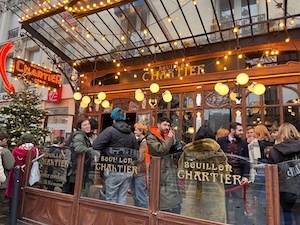
January 2023 – Amber Everywhere , American traveler: “Tourism seems to be back to normal in Paris, with large crowds in many of the most popular parts of the city. You’ll see masks and social distancing in some spaces, but most places are crowded and maskless.
Testing appears to be widely available in Paris, with some visible testing tents throughout the city. There does not appear to be contact tracing in place, at least for crowded public spaces; locals did not mention any trouble accessing healthcare. Most local attractions appeared to be open, same with restaurants and other amenities. I didn’t notice any COVID-related restrictions, though many people chose to wear masks when in public areas (like the metro).”
September 2022 – Alyssa, American traveler: “We arrived in Paris with our two little kids, getting ready to caravan with some friends here in France. So far, I would say Paris is medium to low in terms of crowdedness. Public transit hasn’t been too packed. Everything is open and mask free for the most part.”
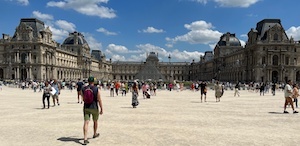
June 28, 2022 – Gretchen of Chasing Advntr , U.S. traveler : “We flew to Paris for several days as part of a month long European trip and to celebrate my twins birthday. We walked to all the major sites and while it was crowded, we had no trouble enjoying the attractions. We were glad we booked a river cruise and tickets to Musee D’Orsay in advance as tickets sold out for the river cruise and the museum line was at least an hour wait.
There were very few people wearing masks and maintaining social distance. Lines were long at the major attractions, but we never waited long for a table to eat. We also experienced a partial train strike which added to the difficulty of getting to the airport on already busy trains. Give yourself plenty of extra time to get to the airport.”
May 2022 – Mike C., American traveler: “Travel in Paris was pretty relaxed. There’s no more green pass or need to show vaccine card. Technically there were some rules on public transit to wear a mask. But it felt more like a choice as it was 50/50 on who did and didn’t. Transit was literally the only place with masking in Paris. Crowds felt like Paris is back to normal.”

March 9, 2022 – Erica of Nice French Things, French resident: “It’s the perfect time to visit Paris. Lines are short (or nonexistent) and monuments and tourist attractions are under capacity. Asian tourists have not returned yet and other Europeans are visiting their own countries they haven’t seen in the past 2 years.
Testing and tracing has been perfected here. Our vaccine pass will stop being required on Monday so we will be free to go to museums, theaters, restaurants without showing pass and we will not be required to wear masks. Pharmacies are the go-to for everything. Easy, fast, cheap tests done there. Paris area just reduced price permanently on regional rail tickets. Very advantageous for visitors.”
February 15, 2022 – Ingrid of Second Half Travels , U.S. traveler: “I’m spending 5 weeks in Paris and Montpellier currently studying French. COVID case numbers are dropping steeply in France. However, tourism numbers in February are still very low, so it’s a great time to visit to enjoy uncrowded museums and other sights.
My flight from Dallas to Paris in February was almost empty. I had a whole row of 9 seats to myself. Rapid and PCR tests are readily available at French pharmacies. It was easy and quick to get my Pass Vaccinal at an airport pharmacy when I arrived for 36 euros; I just showed my CDC vaccination proof of my vaccines and booster.
The Pass Vaccinal is supposed to be checked at all restaurants, museums, and long-distance trains. In practice, restaurants and trains sometimes fail to check. The Louvre and Musée d’Orsay in Paris were uncrowded: no large tour groups, only individual tourists from neighboring European countries like Spain. A Parisian friend told me, ‘You will never see Paris uncrowded like this again.’ I have actually extended my trip to add on more days in Paris to take advantage of this unique opportunity.”
October 23, 2021 – Jennifer A., American tourist: “ We had a fantastic time. We were very careful the entire week we were in Paris. Wore our masks everywhere and washed our hands a lot. Instead of doing two or three things in a day, we just did one major tourist thing each day. To be honest, that made the trip more enjoyable. We used the Paris Museum Pass and that was great. I ordered the five day passes and they mailed them to me last month. A couple of the museums required us to book a time slot to get in. I was of course concerned about passing a COVID test 72 hours prior to returning to the U.S. My sister and I walked about 500 feet from our hotel to a pharmacy to take the COVID test. The cost was 25 Euros for each one of us. The gentleman in the pharmacy was so professional. We also received our results via email in about 30 minutes. Unbelievable. We were able to upload the COVID results to a VERIFLY app that American Airlines wanted us to use. It made things a lot easier to go home. The French residents were all so nice to us. I am so glad we went.”
October 6, 2021 – Nick Winder, Illness To Ultra , American digital nomad: “I flew to Paris in order to transit to the south of France to visit family. Although there are still people visiting Paris, it’s obvious the tourist rates are reduced. Locals are more than welcoming, but the requirement of a health pass, even for foreign visitors proves challenge for both tourists, and local business owners. Nearly every local was compliant with city regulations, which is a must, especially considering public transport can still be busy. Access to testing and healthcare is abundant among pharmacies, although Sundays many pharmacies are closed. Most local attractions still remain open, although at a reduced capacity, but the reduced tourist level lines are not much of a problem. Just be aware that many attractions are ticketed.”
September 13, 2021 – Susan, US traveler: “ We’ve been in Paris almost 2 weeks finding it somewhat changed in several ways. We read that you can get the Passe Sanitiaire at pharmacies, yet, we’ve gone to more than I can count always being told that pharmacies are not providing them. At one yesterday, the owner said he believes that people were getting antigen tests at the pharmacy which gives a 72-hour Passe Sanitiaire. Tourists are few especially Americans. Some stores are permanently closed in touristy areas while nothing has changed in our neighborhood that is more residents of Paris.”
November 2021 – Roobens, French citizen in Paris, Been Around the Globe : “Everything reopened in May (bars, restaurants, gyms, clubs, etc.) in France. Meaning life is more or less back to normal. You just need to have a health pass to prove you’re fully vaccinated. And you have to wear a mask indoors (at the supermarket, when taking the metro, etc.). People are more than ready to travel in Europe only right now. Outside Europe it’s a different story since many borders are still closed. It’s very easy to get tested and to get vaccinated. There’s also an app for contact tracing, most people use it (it’s called “AntiCovid”). Everything is open (museums, restaurants, tourist attractions, etc.).”
September 2021 – Susan, traveling to Paris from US: “My husband and I flew to Paris in August-September 2021 for a 3 week visit with my daughter who lives there as a digital nomad. Tourists are very welcome if fully vaccinated. Major tourist attractions were uncrowded, though online ticket purchases are still recommended. Restaurants were full, especially the venues with large outdoor seating areas. (Travelers should be aware that diners frequently smoke in the outdoor areas.) Nevertheless, this may have been the best time in recent years to be in Paris, due to small crowd size. Paris was very ready to serve customers in the time of Covid. The French population is >70% vaccinated and the digital vaccine passport works well for French residents (but not visitors). Visitors should bring their original vaccine card to get on the airplane, but a laminated photocopy worked well at every location.
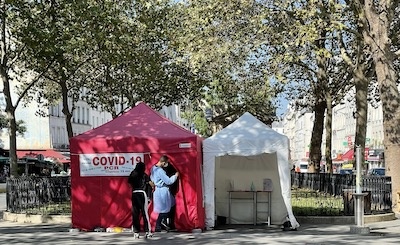
A vaccine card (or proof of a negative Covid test within 72 hours) was required at every.single.sit-down eating establishment, hotel, museum, or major tourist destination. Proof was not required to ride public transportation.
Surgical (not cloth) masks are required in every indoor space. Indoor mask-wearing was being strictly followed, with an occasional scofflaw in the subways. Compliance was certainly better than most places in the US. Almost all restaurants had outdoor patio seating available, though the desirability of this may change as the weather cools. Take-out businesses and park-bench dining were thriving. I did not see evidence that contact tracing (in restaurants) was happening. There are Covid testing tents in most busy squares, but many are not accessible to non-residents because they don’t have the ability to charge the required fee there. Covid testing (required for return to the US, and elsewhere) can be done in pharmacies and labs. Your hotel desk may help you find a location. Caution – our results did not arrive via text, as promised, probably because we didn’t have a French phone number. We ended up waiting in a very slow line at the lab to get the results.”

August 30, 2021 – Melissa Suzuno , U.S. visitor: “I’m spending a week in Paris in late August/early September 2021 and my trip is just for fun but as a freelance writer, I’m also doing some work here. I’m not sure if I’d really describe Parisians as “welcoming,” (haha) but tourism is alive and well in Paris. I did an Airbnb Experience and about half of the participants were French and half were American. The guide said that the number of Americans had decreased for a while but seems to be bouncing back. There are restrictions in place and they seem to be followed quite consistently. For example, you need to show your health pass (or recent negative COVID test) to eat in a restaurant (even outside) or enter a museum. Everywhere I’ve gone has enforced this. Local attractions like museums are open, but they recommend (and sometimes require) you to reserve your time in advance. I’ve gotten a few tests since I’ve been here (to get the temporary health pass). Tests are available in nearly any pharmacy and cost around 30 euros.”
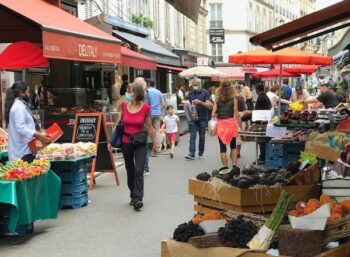
June 2021 – Leyla, Offbeat France , French resident: “I took a walking tour in the Marais a few days ago and we had one American tourist – the guide said it was her first of the season. Most tourists are French or European in Paris, but with the lockdown now lifted, a few Americans are beginning to arrive. In Paris, I’d say about 90% of people are following the rules. There is the occasional person who doesn’t cover their face in the subway or bus but they do get sideways looks from others. Everyone is masked in shops, because the owners will get fined otherwise. There’s usually plenty of gel at the door or at the cash register. In the streets, quite a few people still wear masks, considering that they are no longer mandatory. As the hot weather moves in, there will probably be fewer masks in the streets. The attached photo shows people do occasionally wear masks outdoors.”

June 2021 – Lena, Salut from Paris , French resident: “ Paris experienced a collective sigh in relief during the past weeks and enjoys the pure presence of normality – and travelers clearly belong to this normality. Just a couple of weeks ago, the obligation to wear masks outdoors got lifted. Indoors, it is still mandatory and the vast majority is complying. Food services and attractions are open again. However, while the online booking service of attractions assures that the number of visitors is not exceeded, I observe often that bars and restaurants are way fuller than they should be. It is recommended in France that everyone, locals and travelers, are downloading the app #tousanticovid for tracing and alerts. If a visitor requires a covid test, they can easily get tested in pharmacies.”
May 2021 – Audrey, French Resident in Lyon: “Since May 19, the curfew is now starting at 9:00 pm. Restaurants (only outdoor dining), boutiques, movie theatres, museums… have re-opened, only accepting half of the possible guests (which means you need to book everything or wait long lines on the sidewalk). Travel between regions is fully allowed before curfew and after if you’re filing an exemption form (if your train or flight arrives at 9:30 pm for example). All French people over 50 are being vaccinated. Our next milestones are the following: – May 31: opening of vaccination to everyone – June 9: opening of indoor dining and more people allowed in boutiques and such. Of course, wearing a mask is still mandatory everywhere public, inside and out.”
Planning a trip to Paris France?
Check out our other Paris, France travel resources: – Preparing for a Budget Trip to France – Where to Stay in Paris France: Best Neighborhoods Hotels Airbnbs – Travel Seasons: The Best Time to Visit Europe
If you have questions or updates about travel to Paris, France during the Coronavirus crisis or post-pandemic, please let us know in the comments below.
~ Pin this post for later or share with friends ~
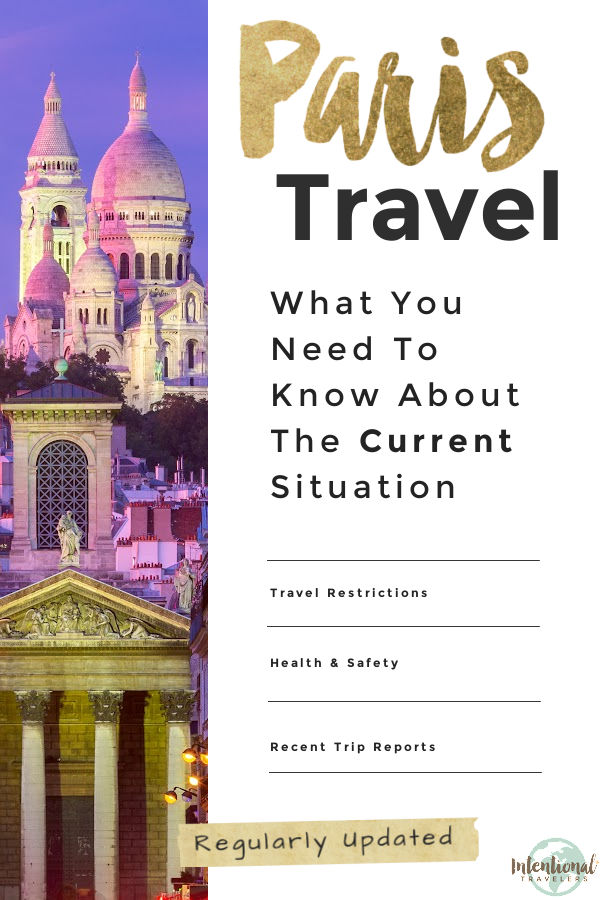
Disclaimer: Please note, travel restrictions change frequently. Readers must take responsibility for verifying information through official sources like the State Department and CDC, in respect to their specific situations. No responsibility can be accepted by Intentional Travelers for action or inaction as a result of information provided through IntentionalTravelers.com. Any information provided here is issued as general information only.
Similar Posts
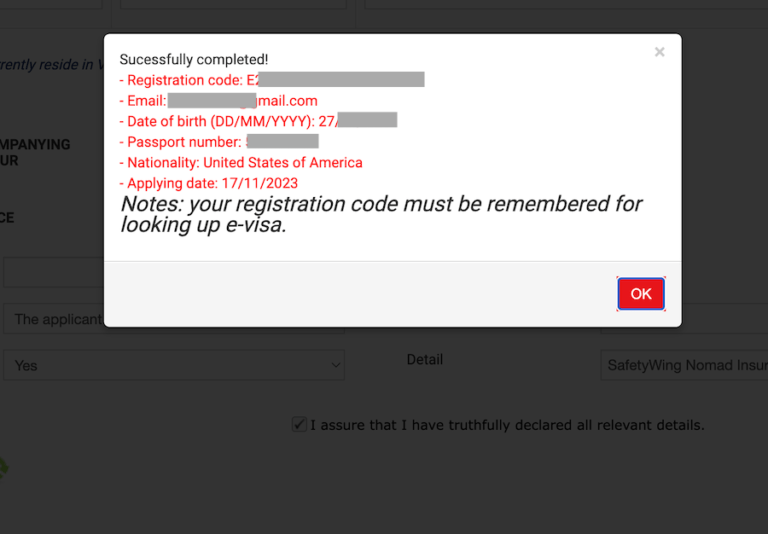
Our Vietnam E-Visa Application Tips for 2024 Travel
In this post, I’ll share our experience applying for a Vietnam e-visa as US citizens for a 2024 Vietnam trip, including how long it took, troubleshooting, and tips. Unfortunately, applying for a Vietnam visa is not always straight-forward. Some travelers have reported issues with the process. Or even denied entry, as one of our Intentional Travelers members…
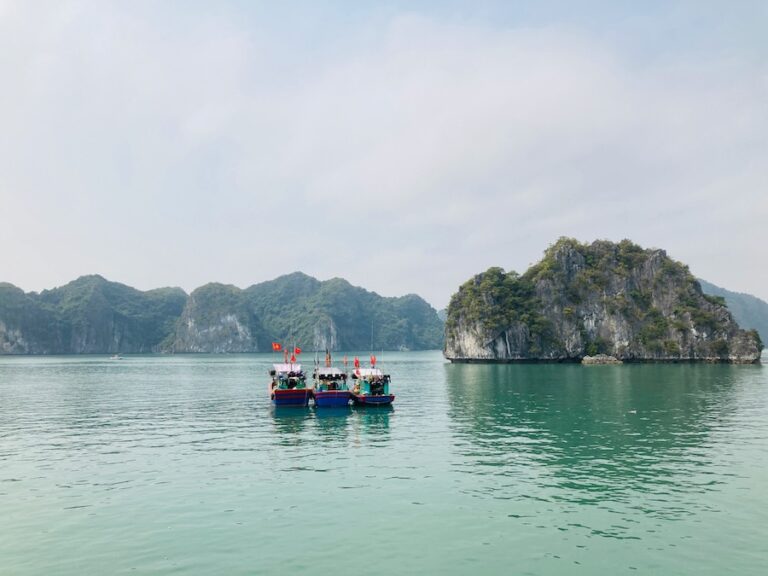
Cat Ba Island – Lan Ha – HaLong Bay Cruise Review + Tips
What is the best value for your money and time on a HaLong Bay cruise? These are our tips and full HaLong Bay cruise review to help you make the best choice. In this post, we share what we learned from our experience on Venezia Cruises 3-day 2-night Lan Ha Bay itinerary and from extensive research…
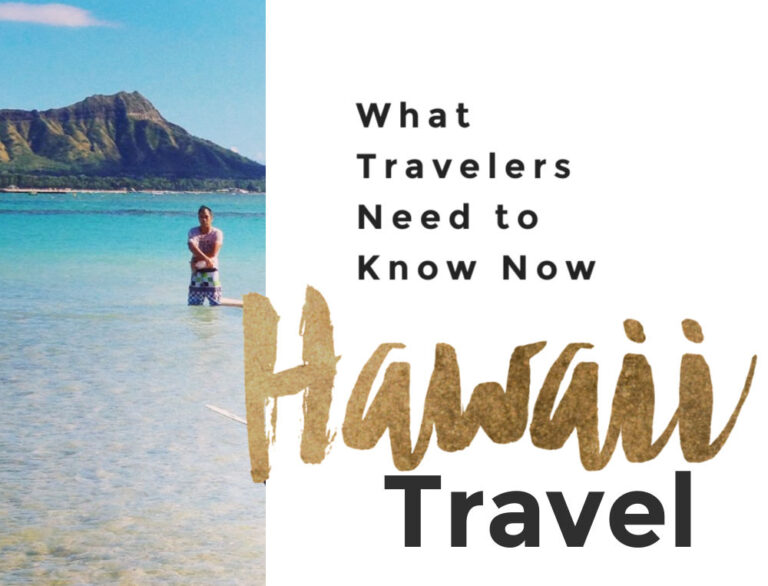
Hawaii travel requirements 2024: What travelers need to know
We aim to keep this post updated about Hawaii travel in 2024 with official Hawaii travel restrictions, requirements, and health and safety guidance. Our goal is to help you make informed decisions so you can travel confidently, safely, and responsibly in this new post-pandemic world of ours. At the end of the post, we share…

Ecuador travel requirements 2024: What travelers need to know
We aim to keep this post updated about Ecuador travel in 2024 with official Ecuador travel restrictions, requirements, and health and safety guidance. Our goal is to help you make informed decisions so you can travel confidently, safely, and responsibly in this new post-pandemic world of ours. We stayed in Cuenca, Ecuador in 2022 and…
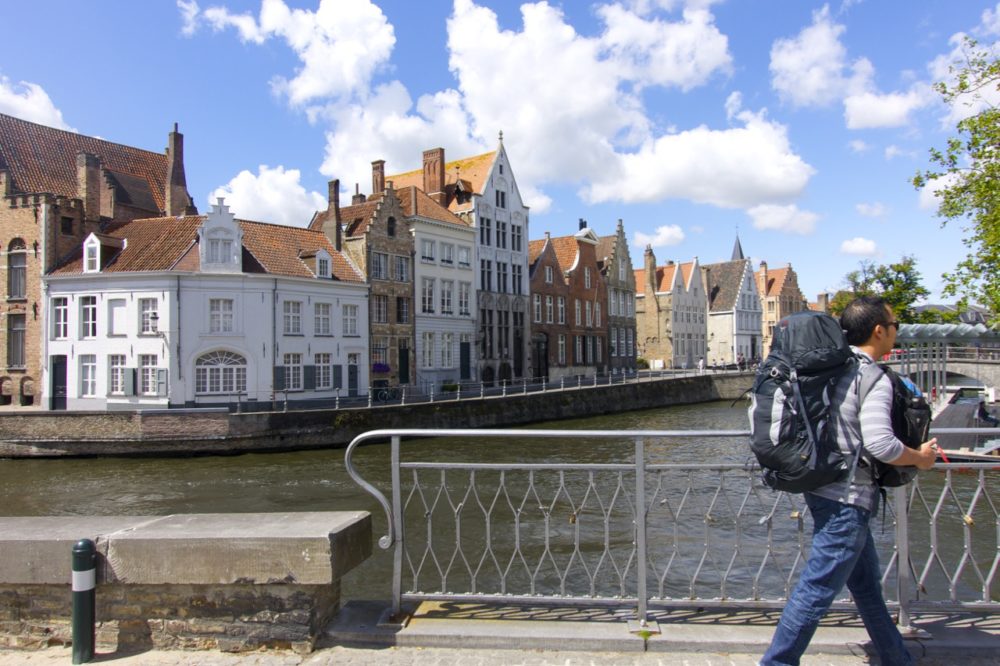
10+ Items We Take With Us on Every Trip
We pack and re-pack our bags a lot as Digital Nomads. Typically, we travel with a backpack and laptop bag each; or a rolling carry-on suitcase and a laptop bag. Our trips can be a house-sitting gig just a few miles away, to visiting our Peace Corps community in Jamaica, or country hopping around Europe…

Lisbon Portugal travel requirements 2024: What travelers need to know
We aim to keep this post updated about Lisbon travel in 2024 with official Portugal travel restrictions, requirements, and health and safety guidance. Our goal is to help you make informed decisions so you can travel confidently, safely, and responsibly in this new post-pandemic world of ours. As restrictions vary based on the traveler’s citizenship,…
38 Comments
https://www.euronews.com/2022/03/03/covid-in-europe-france-to-scrap-face-masks-and-vaccine-passes-on-14-march
Looks like things may be loosening up by March 14th hopefully
Michelle, I have seen articles with Forbes, euro news & Reuters on the vaccine pass getting scrapped by March 14th in Paris except for in hospitals and on public transportation. Do you have any knowledge of this? Thanks Wendy
Hi Wendy! Thank you for visiting our blog. That information is correct. The French Government has recently announced that effective March 14, the vaccine pass will not be required to enter most businesses such as restaurants, bars, cafes, ski lifts, museums, cinemas and other cultural venues and theme parks. However, proof of vaccination will still be required in hospitals, retirement homes, and health centers.
I am a fully vaccinated/boosted American who will be arriving in Brest, France for one day, May 10, on a cruise ship followed with a one day stop in LeHavre, France on May 12. I’m aware of the French Vaccine Pass but can’t find anything about what is needed for a cruise ship arrival. Any help you can provide will be greatly appreciated.
Hi Susan. The French government does not specify restrictions for cruise ship passengers, therefore, the current entry rules for air travelers may also apply to travelers who want to go ashore in French ports. I understand that you are fully vaccinated/boosted, which is already compliant to France’s entry rules (you can find the details in our blog). Your cruise ship operator may also have information regarding entry rules to France. We will update our blog if the French government releases information regarding cruise ship arrivals. I hope this helps.
I just received this from Eurostar “You are considered fully vaccinated for travel purposes if you are aged 18 and over and: *you received a COVID-19 vaccine booster*
*you received the second dose of a two-dose vaccine at least a week ago, but no more than nine months ago*
So the important word here is “OR”. Sounds like it’s just what you said Michelle…thank you so much!!!
Thanks for following up, Debbi!
The new booster requirement is very confusing to me. I’ve read other articles where it says, if you don’t get a booster “within 9 months of original vaccine” then you’re considered unvaccinated.
I’m hoping you or someone you know can confirm this. My vaccination dates are as follows: Moderna – 4/5/2021 Moderna – 5/3/2021 Moderna Booster – 2/12/2022
Traveling at the end of March 2022 – As of now, will I be considered fully vaccinated and allowed to enter France? Or did I get the booster too late?
Thank you. Your article is very helpful!
Hi Katherine. We acknowledge that this requirement has been confusing. The way the official rule was translated in English makes it sound like the booster must be done *within* a certain timeframe. However, an expiration like this would be highly impractical and, in fact, most reporting on the requirement say more clearly: “Travelers aged 18 and over who had their full vaccine course over 9 months ago and have not since received a COVID-19 vaccine booster must follow the rules for unvaccinated passengers to enter France.” We have been researching this closely and have not seen any evidence of travelers being denied for a “late” booster, nor does France ever mention needing a second booster. We are keeping a close eye on this and will share any updates as they become available.
Thank you so much for your reply! I will keep a close eye on your page for any other updates.
Hello Michelle,
I am confused about the new protocol in France re: vaccinations and boosters. If I had my 2 vaccinations last Feb and March 2021 and then my booster 6 months later, am I considered “fully vaccinated”? Also, my adult son had his 2 vaccinations, the second being May 6th. He has not yet had his booster. I am reading that there is a 9 month expiration of his initial vaccinations so as of Feb 6 (3 days ago) he can no longer be considered “fully vaccinated” even if he gets his booster immediately?
Debbi, I hear you. This particular requirement can certainly be confusing, not to mention constantly changing. The way France has written the booster rule (“no later than nine months following the injection of the last required dose”) makes it sound like the booster must be done *within* 9 months of the second dose to enter France (or soon to be 4 months for the vaccine pass to enter restaurants). However, an expiration like this seems highly impractical and, in fact, most reporting on the requirement say more clearly: “Travelers aged 18 and over who had their full vaccine course over 9 months ago and have not since received a COVID-19 vaccine booster must follow the rules for unvaccinated passengers to enter France.” This would indicate that your son can be considered fully vaccinated once he gets a booster, even if the booster is done after 9 months. I’m assuming it’s just a translation/wording problem because I have not seen anywhere that travelers with “late” booster doses would lose any chance of being considered fully vaccinated. We are keeping a close eye on this and will share any updates as they become available.
Boosters every 4 months??! Wow
Yes, it seems to be the case. Like so many protocols, though, it could very well change.
I have a trip planned to Paris March 18,2022. I am reading that everyone needs to have the booster shot after being vaccinated for 4 months or you will not get the Vaccine Pass. Do you know if this rule is also mandatory for people going to France from the US? Some articles I have read say it is mandatory and others say it is not. Do you happen to know?
Thanks for your question Susie. I think part of the confusion is that the rules have changed recently. The following update is directly from the French government website in regards to foreigners vaccinated outside of France: “Since the 15th of January 2022, people aged 18 years and 1 month or more and who completed their initial vaccination scheme more than 7 months ago will need to present a proof of a booster dose to be eligible to receive a vaccine equivalency health pass.” I’m not sure why this site does not list the change to a 4 month rule that reportedly goes into effect in February. Perhaps confirmation is still forthcoming.
I am fully vaccinated. I had my booster in Dec. of 2021. I am going to France in June 2022, 6 months after my booster. Do I need a second booster in order to get in the country, or the receive the Health Certificate to allow me into restaurants and museums?
Hi Rebecca. We acknowledge that this requirement has been confusing. The way the official rule was translated in English makes it sound like the booster must be done *within* a certain timeframe. However, an expiration like this would be highly impractical and, in fact, most reporting on the requirement say more clearly: “Travelers aged 18 and over who had their full vaccine course over 9 months ago and have not since received a COVID-19 vaccine booster must follow the rules for unvaccinated passengers to enter France.” We have been researching this closely and have not seen any evidence of travelers being denied for a “late” booster, nor does France ever mention needing a second booster at this time. If you are boosted, you meet the current requirements to enter France and to receive the vaccine certificate. We are keeping a close eye on this and will share any updates as they become available.
I am wanting to plan a trip to take my 14 yr old daughter to Paris the last week of March 2022 on her spring break. I am fully vaccinated, but she is not. She has lab proof of antibodies – also sadly I’m being treated for a blood clot from my Covid vaccine which leads to my hesitation to vaccinate her. All of that aside- I see the paragraph that says travelers ages 11-17 are considered vaccinated if traveling with a fully vaccinated parent (I understand we would both need negative Covid test as well) I have read multiple other sites and I’ve seen this same info but have also seen on other sites everyone 12 & older must be vaccinated unless they’re going to quarantine for 10 days. Do you know what the policy is on this as we do not have 10 days to quarantine. IF she is able to come & not quarantine what would we do to get her a health pass or QR code to enter tourist sites? These are questions I cannot seem to clear up & I want to be sure before I would plan this. I am willing to email or call to France if I had the appropriate number and email contact. I’ve already sent an email a week ago through a government site and still do not have a response. Thank you in advance for any help/info you may have.
Thank you for visiting our blog. Current France travel rules states that “The measures applicable to fully vaccinated adults will be extended under the same conditions to minors accompanying them, regardless of vaccination status.” Since you are vaccinated, your 14-year-old daughter will be treated as vaccinated as well and will not need to quarantine. A negative test is however required for all travelers aged 12 and over. You can check the U.S. Embassy in France or the France Diplomacy websites for more information.
Regarding the health pass, persons age 12-15 require a health pass everywhere a vaccine pass is required. You can obtain a vaccine pass (or a health pass for your daughter) from designated pharmacies in France for a fee of up to 36 Euros (approximately 41.18 USD). You can check here for the map of designated pharmacies in France. You can check our blog for more information about the health pass and regular updates about France’s travel requirements. Hope this helps.
Thank you for your reply. As far as the health pass goes for my 14 yr old daughter, since she is not vaccinated am I understanding that in order for her to obtain one from the French pharmacies she will have to pass a Covid test every 24 hrs. for a fee of 36 euros each time to keep it active in order to be admitted into restaurants, museums, etc.? I have clicked on the map of pharmacies to actually check with one but everything on that page is in French. I am just making sure I understand this. Thank you
Wendy, an unvaccinated 14 year old would need a test within 24 hours in order to enter restaurants, attractions, and long-distance travel. She would not need to test daily unless you are visiting places where the pass is required each day. Antigen tests are 25 euros (36 was for the vaccine equivalent, sorry for the confusion). Here is a more direct link to pharmacy testing location map, you just have to keep clicking to zoom in on Paris: https://www.sante.fr/cf/carte-depistage-covid.html
Excellent information! Merci! It is January in the US right now and we are planning our trip to Paris for mid April 20 22 very excited but also so concerned because of the omicron variant now. I will follow your blog and see if any new postings are out as January comes to an end I am getting ready to book our trip now. Thanks again so much.
Great blog! Thanks for sharing paris travel restrictions, really helpful content.
I am planning a trip to Paris September 22 through 29th with a one day bus trip to Normandy. I understand that since I have a CDC proof of vaccination I do not need a test to enter France. However I do need a Travel Pass which would be obtained at a Pharmacy. I had read that the French government was paying for tests in order for tourists to return to their country of origin but not sure that is correct. My main question, does this process of receiving the Travel Pass work “smooth” or could there be snags. Same question for the required Covid-19 test upon returning, are there ample Pharmacy and testing sites for tourists? Has anyone taken a survey of recent travelers? Thank you
Thanks for visiting our blog. The French health pass for non-EU citizens is still relatively new and the protocols for visitors in September don’t seem to be fully established yet. Official guidance can be found here . At the moment, visitors coming before August 18 are able to submit their proof of vaccination by email before arrival to get the pass (a QR code). In case it’s not processed in time, getting tested in France is a temporary “back-up” method, valid for 72 hours. I’ve also seen that some travelers have been able to show their CDC vaccine card at a pharmacy in Paris to receive a QR code within 15 minutes, but I’m not sure how common that is yet. We will continue to seek out on-the-ground reports from recent travelers to find out how it’s going, and we’ll regularly update this post as we learn more.
We are scheduled to arrive Paris September 7, cruise to Normandy from the 9th through 16th, spend two more days in Paris, returning to U.S. on the 18th. The CDC and State Department alerts say “do not travel” and also warn about demonstrations and violence in tourist areas of major cities. We are in our 70s, fully vaccinated, but also cancer survivors. Should we cancel our trip?
I understand your concern. It’s a question I’ve been getting a lot lately with all the uncertainty around Europe travel so I wrote an article about it here: https://intentionaltravelers.com/should-i-reschedule-my-trip/ There is no right answer, as it depends on your values and risk tolerance, so I can’t really make that call for you. Demonstrations in Paris are certainly an additional factor to consider. But just to give some perspective… I’ve never been to Paris when there *wasn’t* a demonstration going by on my Uncle’s street, although they can vary in intensity. Usually protest locations are known so they can be avoided. However, if potentially dealing with that sounds too stressful, it may be a reason to cancel. Being fully vaccinated makes a huge difference but even so, cruising and travel in France during the pandemic is not without risk. Does the benefit of this trip outweigh that risk? Will worry get in the way of your enjoyment? That’s up to you.
Is there an app to use to show proof of vaccine status for visitors from outside the EU?
Thanks for your question. The E.U. vaccine app is only available to citizens and residents of the EU so far. Whether this will eventually be made available for non-EU tourists to facilitate travel in Europe is not yet clear, but we’ll be sure to update our blog posts here if that changes.
I am a US citizen planning a trip from USA to London and then to Paris. Is there any rules for US citizen traveling to Paris, via London by train?
Good question. Traveling through some countries to France can complicate the requirements. Whereas the U.S. is on the “green list”, the U.K. is on the “amber list” for France and the rules for the UK would apply since that’s where you’ll be departing from to enter France. Fully vaccinated travelers can enter France without an essential reason and would need to present a recent negative Covid test and proof of vaccination status. More details can be found here: https://www.diplomatie.gouv.fr/en/coming-to-france/coronavirus-advice-for-foreign-nationals-in-france/#sommaire_1
Hi Michelle,
It looks like France is no longer requiring a negative PCR test for vaccinated travelers from “Green” countries (the US included).
Or is it? Later on that page it states “(if you are aged 11 years or older) you agree to submit to a virological RT-PCR test for SARS-CoV-2 upon arrival in France.”
What are your thoughts?
Hi Ben. Thank you for visiting our blog. It is correct that France is no longer requiring a negative PCR test for fully vaccinated travelers from the United States and other Green countries. If a traveler (aged 11 years or older) from Green countries is not fully vaccinated, then a negative PCR or antigen test is required. A negative PCR or antigen test is also required for allowed travelers coming from “Orange” and “Red” countries.
A quick update from France: Since May 19, the curfew is now starting at 9:00 pm. Restaurants (only outdoor dining), boutiques, movie theatres, museums… have re-opened, only accepting half of the possible guests (which means you need to book everything or wait long lines on the sidewalk). Travel between regions is fully allowed before curfew and after if you’re filing an exemption form (if your train or flight arrives at 9:30 pm for example). All French people over 50 are being vaccinated. Our next milestones are the following: – May 31: opening of vaccination to everyone – June 9: opening of indoor dining and more people allowed in boutiques and such. Of course, wearing a mask is still mandatory everywhere public, inside and out.
Hi! Thanks so much for sharing these updates from France!
I have friends in Paris and I’m thinking about going next month…. Will the restrictions ease by then?
Hello and thank you for visiting our blog. I understand your concern about your trip next month, though we don’t have any special insight as to when protocols might change, beyond what we’ve already shared in the article. We will do our best to keep updating this post as the situation progresses.
Leave a Reply Cancel reply
Your email address will not be published. Required fields are marked *
This site uses Akismet to reduce spam. Learn how your comment data is processed .
- Go to the main menu
- Go to the mobile menu
- Go to main content
- Press Room Press Room

- Increase text size
- Decrease text size
- Add our RSS feed
Coming to France? Your Covid-19 questions answered
- Share on Twitter
- Share on Facebook
- Partager sur Linkedin
French people who are living abroad, travelling or returning from abroad, as well as visitors from abroad, will find answers below to frequently asked questions on COVID-19 measures.
This FAQ supplements the information on the Conseils aux voyageurs (Travel advice, in French only) section.
— Last updated on 26 August 2022 —
What are the rules relating to the vaccine pass?
Since 14 March 2022, the “vaccine pass” has been lifted in France in all areas where it was previously required (cultural and leisure venues, commercial catering, professional trade shows, etc.). Similarly, the COVID certificate is no longer required as of 1 August 2022.
What are the current rules applied at national borders?
Since the outset of the crisis, the health check system at borders has protected our healthcare system and delayed the arrival into France of worrying variants. This system was removed on 1 August 2022.
Therefore, the rules previously in place for travellers to France no longer apply :
- Travellers no longer have any formalities to complete before arriving into mainland or overseas France, and the COVID certificate can no longer be required, irrespective of the country or area of origin;
- Proof of a compelling reason for travel can no longer be required ;
- Travellers no longer need to present a sworn declaration that they are not infected with COVID-19 and pledge to take an antigen test or biological exam upon arrival in France. This also applies to travel between mainland France and each of the overseas territories.
However, in the event of a dangerous variant, a system requiring a negative virological test upon entering France may be reinstated for travellers arriving from countries believed to be at risk.
The government will thus maintain the option to use “emergency brake” measures for a maximum period of two months, following a recommendation from the Haute autorité de santé (French National Authority for Health) in the event of the emergence and circulation of a new COVID-19 variant which can be a serious health risk, or in overseas territories, if the health system is at risk of saturation.
Furthermore, for foreign travel, a vaccination certificate, a negative test certificate or proof of recovery in EU format may be required by the destination country. It is also recommended to store all relevant documents on the TousAntiCovid application or print them out.
For the health rules in force for entering other countries, travellers should visit the “ Conseils aux voyageurs ” section on the Ministry for Europe and Foreign Affairs website (in French only).
What are the rules concerning mask-wearing in France?
- Mask-wearing is no longer mandatory in establishments open to the public, nor on board maritime, river, land and air transport;
- Mask-wearing continues to be recommended in enclosed and small spaces, and at large gatherings for vulnerable persons due to their age;
- It is also highly recommended in hospitals and retirement homes.
- Details on travelling to and from France
Traveling to France? There are new rules. Here's what you need to know

Editor's Note
France is nothing if inconsistent in maintaining its COVID-19 entry protocols, having changed the process for obtaining the requisite digital health pass four times, now requiring a COVID-19 booster shot for visitors, reinstituting mask mandates and, just yesterday, instituting quarantine for unvaccinated visitors from certain countries, including the United States.
For American travelers heading to France soon or planning a trip in the future, here's what to expect as of Jan. 3.
For more TPG news delivered each morning to your inbox, sign up for our daily newsletter .
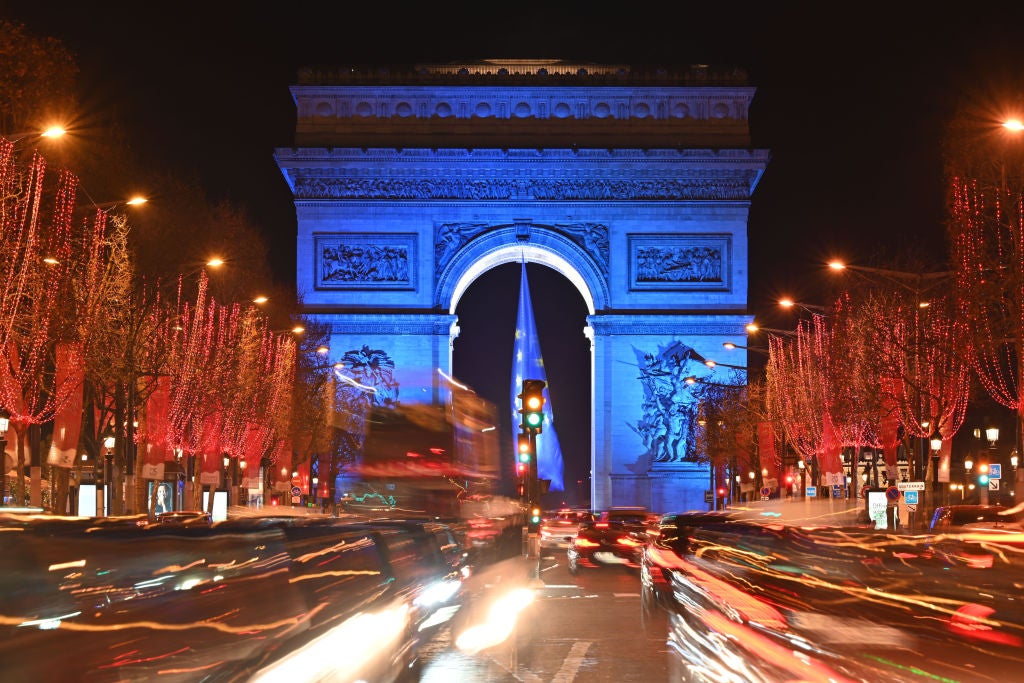
Entry requirements for fully vaccinated travelers
Entry rules to France depend on the country from which you are coming, designated by color, available here . The U.S. is currently a "red list country," and entry requirements are as follows.
Fully vaccinated travelers from the U.S. who are age 18 and older may enter the country by showing proof of vaccination, results of a negative COVID-19 test (PCR or antigen) taken within 48 hours prior to departure for France and a sworn statement attesting they do not have symptoms of COVID-19 nor have had contact with any confirmed cases of COVID-19.
Acceptable vaccination proof
Currently, France recognizes vaccines approved by the World Health Organization and European Medicines Agency, specifically Pfizer, Moderna, AstraZeneca and Johnson & Johnson. Those who have received a full dose of a WHO-licensed vaccine not approved by the EMA require an additional single dose of an EMA-approved mRNA vaccine, either Pfizer or Moderna.
Travelers are considered fully vaccinated 28 days after receiving one dose of a single-dose vaccine, seven days after receiving a two-dose vaccine or seven days after receiving an additional dose of an EMA-approved mRNA vaccine for those who received a WHO-licensed vaccine not approved by the EMA.
Per the U.S. Embassy in France, the card issued by the U.S. Centers for Disease Control and Prevention is considered "sufficient proof of vaccination for entry."
Entry requirements for unvaccinated travelers
Currently, unvaccinated and partially vaccinated travelers are only able to enter France if they possess a "compelling reason for travel," including students and those transiting France for less than 24 hours. A full list of pressing grounds for travel to/from "red" countries is available from the French Ministry of Foreign Affairs, but note the majority of exceptions are not applicable to Americans.
Unvaccinated Americans approved for entry must show a negative COVID-19 test (PCR or antigen) performed within 48 hours before departure and are also subject to a second test upon arrival. They must quarantine for 10 days, followed by an additional test.
Ahead of travel, unvaccinated travelers must complete a screening form .
Related: Applications for France's digital health pass are temporarily closed
Rules for children
Testing, vaccination and booster requirements apply to travelers who are 12 and older, and American visitors must show results of a negative PCR or antigen test taken within 48 hours to enter the country.
"Travelers under age 11 are treated as vaccinated regardless of their vaccination status and do not need to have a COVID test. Travelers ages 11 through 17 are treated as vaccinated if they are accompanied by a fully vaccinated parent or guardian," says the embassy. "Travelers in this age group traveling independently must meet the rules applicable to adult travelers."
French health pass
A health pass is required to access most indoor public spaces, including restaurants/bars, museums, entertainment venues and sporting facilities. It's also necessary for long-distance travel throughout the country on public transit. A health pass can be obtained for $40 by showing proof of vaccination at a local French pharmacy on a walk-in basis. Unvaccinated or partially vaccinated travelers can obtain a temporary 24-hour pass by taking a rapid antigen test at a pharmacy. Temporary pass holders will need to procure a new pass after the 24-hour period.
The French government previously announced they expect use of the "pass sanitaire" to continue through at least July.
As of Jan. 15, all travelers to France age 18 and older must show proof of a COVID-19 booster shot taken within five to seven months after their final dose of a COVID-19 vaccine in order to retain an active health pass. Prior to this date, the booster is only required for those 65 and older.
Mask mandate
Face masks remain mandatory for all those in indoor public spaces throughout the country and are required outdoors in Paris as of Dec. 31, 2021, including in markets. Outdoor mask requirements vary throughout France, so consult local authorities before visiting your destination.
Bottom line
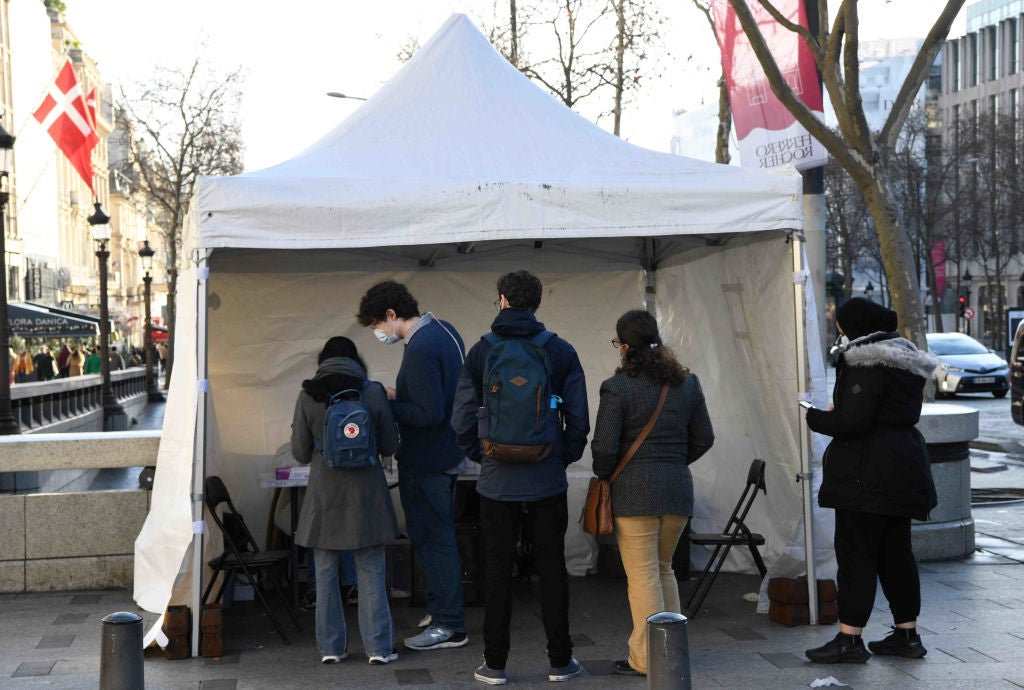
French officials have modified their entry rules based on COVID-19 developments. Consult the U.S. Embassy and French Ministry for the most up-to-date information.
Both the U.S. Department of State and the Centers for Disease Control and Prevention have issued Level 4 travel warnings for France, advising Americans to avoid travel to the country.
Other countries, including the United Arab Emirates and Israel , have banned travel for unvaccinated persons, in addition to requiring a COVID-19 booster for vaccinated tourists.
Related: My experience entering Israel as a vaccinated tourist
A travel writer's ultimate travel guide to Paris, France
- Paris is the City of Light, a destination steeped in style, culture, history, and romance.
- Insider created a comprehensive travel guide for the best places to go, stay, and eat in Paris.
- Visit Insider's hub for travel guides, tips, and recommendations .

Paris is one of the world's most fascinating cities with iconic monuments, picturesque views, charming neighborhoods, and gastronomic spoils. Paris is so jam-packed with culture that visitors often recount the city as a living museum.
While touristy experiences in Paris are pleasing in their own right (see: a stroll along the Seine or a trip via riverboat), I've been visiting Paris for the past 18 years since marrying a Frenchman and through my work as a travel writer, and prefer to float around the city's delightful neighborhoods methodically. Because when you get to know Paris' arrondissements, which you can think of as individual neighborhoods with distinctive vibes, you'll understand Paris for its more distinguished ethos.
But traversing through the City of Light can be overwhelming, even for experienced travelers. With Insider's guide, you'll leave Paris with a well-developed sense of what the city and its people have to offer beyond the average first-time experience.
→ 6 of the best ways to get to and around Paris, according to experts
→ i've traveled to paris regularly for the last 18 years. i think these 14 hotels are as magical as the city itself., → i'm a new yorker who visits paris every year. here are 11 restaurants where i've had some of the best meals of my life., → 5 secret things to do in paris, plus 8 of the most scenic neighborhoods with the best places to shop , → here are the latest rules for us visitors to paris, france, plus tips on the best time of year to visit.
- Main content
13 things you should know before traveling to Paris

Mar 31, 2024 • 7 min read
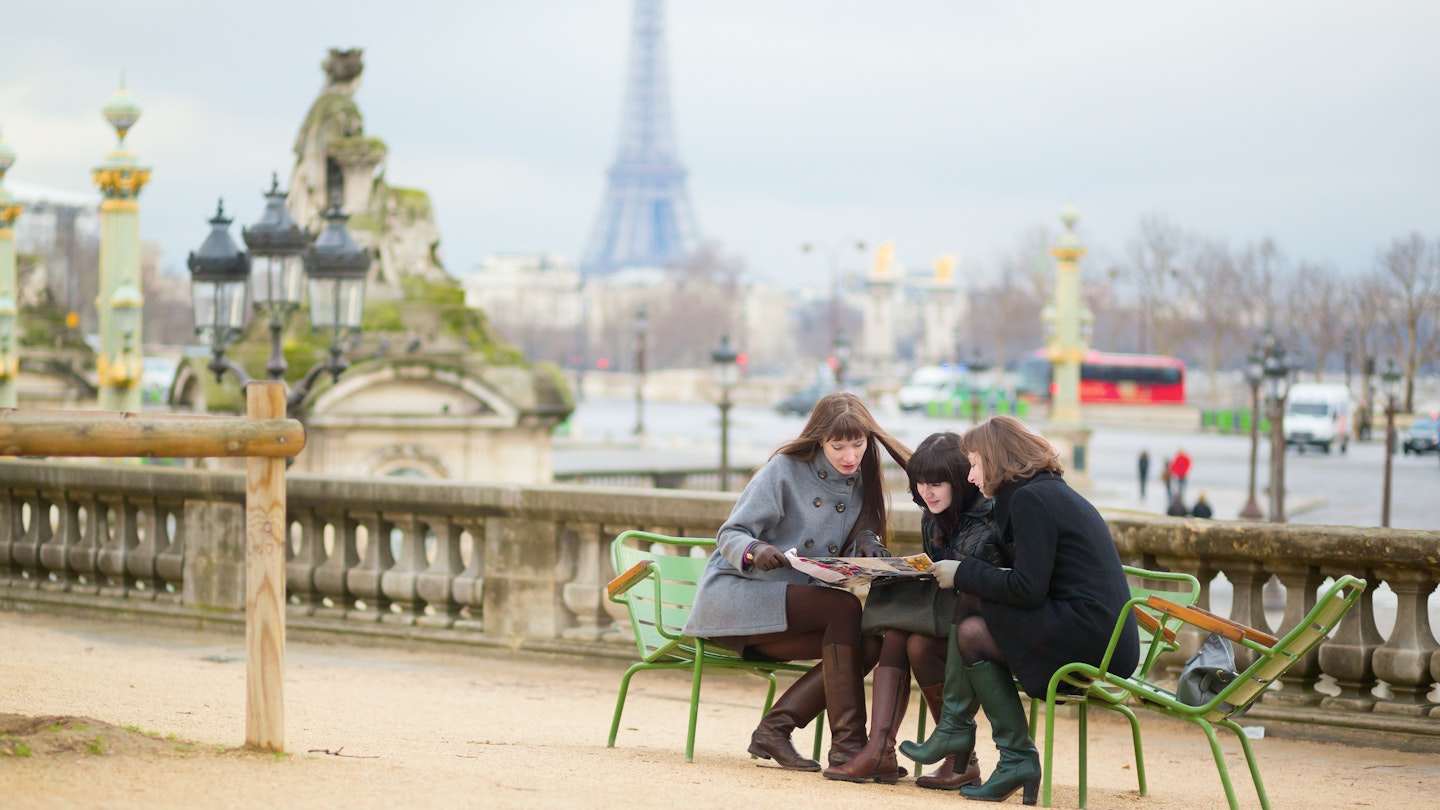
These top tips can help a first-time visitor get the most out of their time in Paris © Encrier / Getty Images
Fabienne is one of the author's of our latest Paris guidebook . Here she shares what you need to know before visiting Paris for the first time.
Bustling, diverse and surprising: such is Paris !
Due to its variety and density, navigating the city for the first time may seem challenging. Even after nearly 20 years of living in Paris, I still encounter nuances in the local lifestyle and learn about Parisian peculiarities, such as being fined for taking a Metro corridor the wrong way.
Here are some practical tips and cultural insights to help you plan for your trip and better understand France's capital.
1. You will want more time in Paris than you think
As the busiest city in France, Paris isn’t short of events, attractions or activities. A glimpse of it can be caught in just a couple of days, but to truly experience the city's diverse sights and experiences, five days to a week is considered ideal. Paris can be enchanting year-round , yet it's worth noting that August is the traditional holiday period in France, which might mean encountering closures and a slowdown in local activities.
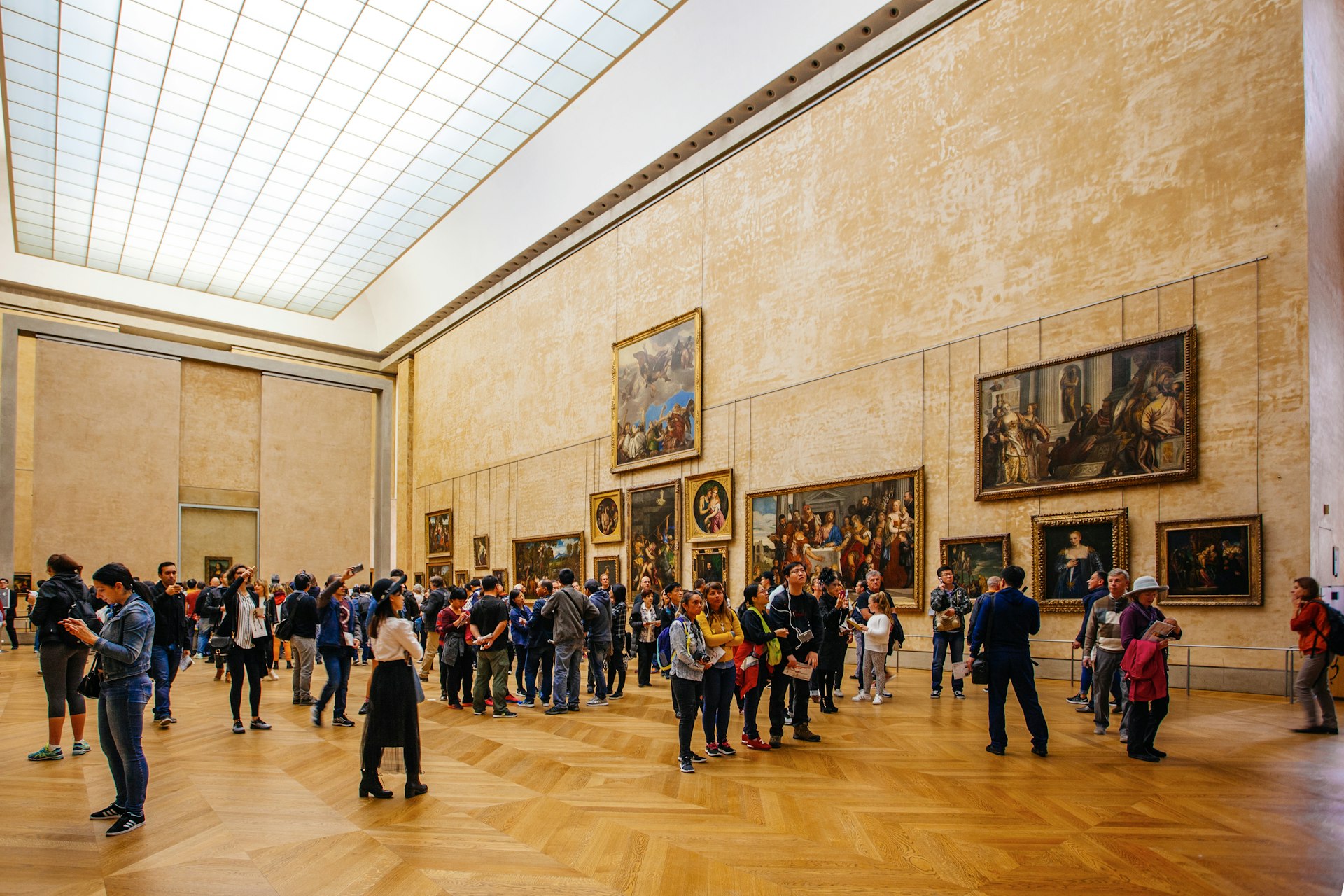
2. Book some main attractions in advance
With limited time, pinpoint in advance the main attractions you want to visit. Booking online for museums, exhibitions or theater performances will save you a lot of time waiting in lines. Remember, Parisians enjoy their museums as much as tourists do, so visiting on weekdays and starting early can significantly change your experience of busy landmarks.
3. Leave some time to wander
If you’re more the type who goes with the flow, you might want to stroll until you find yourself surprisingly lost, discovering the unique identity of each arrondissement (district) . They are all shaped by various layers of history. With most landmarks concentrated in the city center, it is easy to wander around and never get bored. In fact, there's even a French word for this way to visit a place: flâner .
You might traverse from the upscale Champs-Élysées to the tourist-packed Saint-Michel, then to the trendy Le Marais and the more bohemian Belleville, all within the city's boundaries, without even realizing it. For deeper insights, consider themed tours (food, culture, history, street art, architecture, etc). Many Parisians are eager to share their city with visitors, and it’s a great way to get first-hand insider tips.
4. Dress like a Parisian
Wear something comfortable, because Paris is best explored on foot. Dark clothes will generally help you blend in with the Parisians and help deter pickpockets. That said, if you are into dressing up, don’t feel shy! This is the home of couture after all.
5. Personal space is important
More important – if you wish to blend in – is being mindful of personal space, especially on public transportation. The golden rule when navigating Paris, particularly on the Metro and RER (suburban train network) is to be unobtrusive.
During busy times, especially at rush hour (from 7am to 9am and 5pm to 7pm), put your backpack or luggage down and avoid using fold-down seats. When the carriage is full, it's often better to wait for the next train, which usually arrives within minutes. Always keep to the right on corridors and escalators, and have your ticket or Navigo travel pass handy at all times for frequent ticket barriers and control.
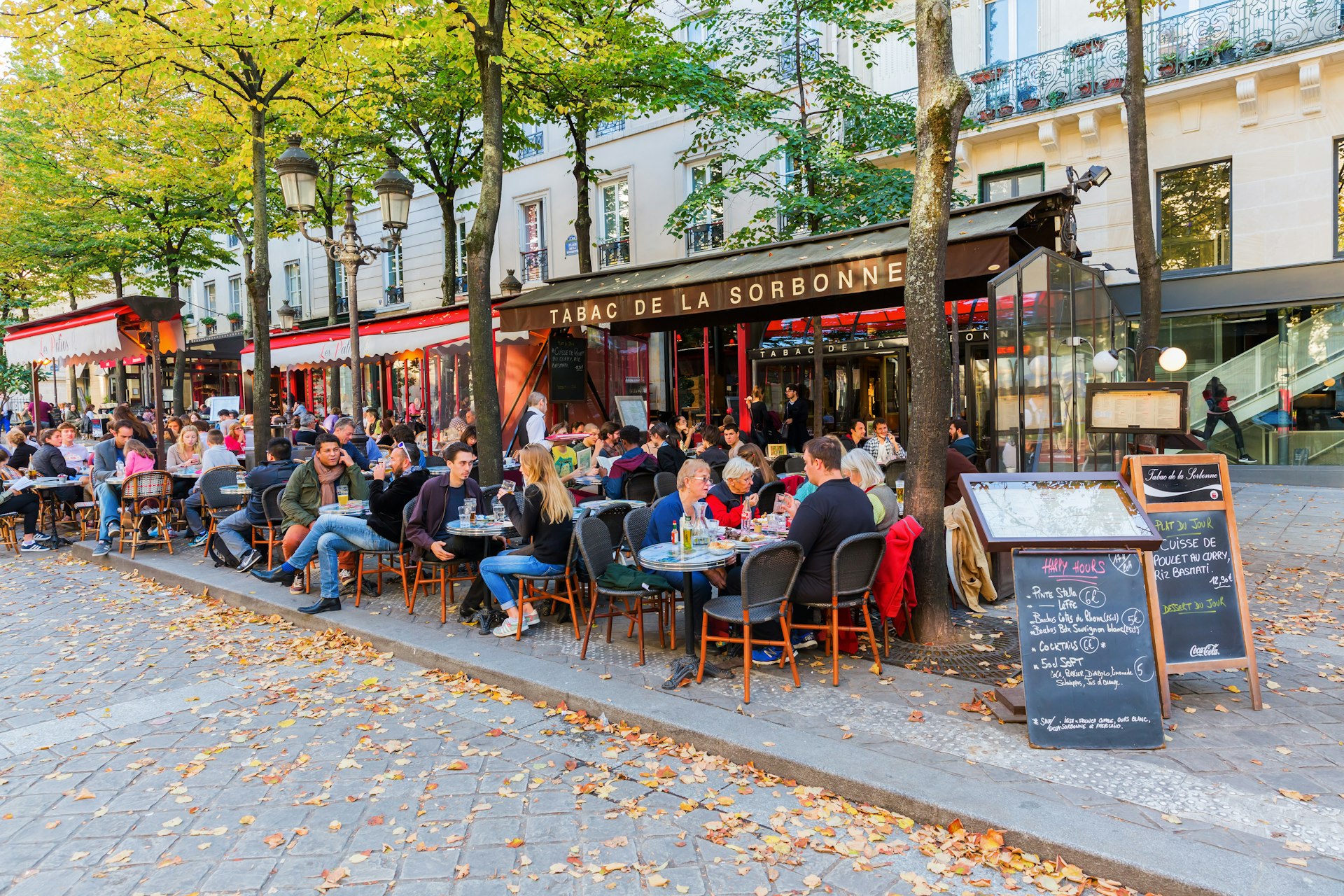
6. Get familiar with cafe culture etiquette
The best places to experience Paris and its people are at the cafes. Take a moment to rest on a terrasse – cafe tables on the street – to people-watch while planning the next part of your day. Upon arrival, simply choose a table and sit; servers will come and attend to you. Bills are often left with the order on the table, but payment isn't expected immediately unless explicitly stated. Tipping is not required but always appreciated.
It's not uncommon to exchange a few words with people at neighboring tables, but it's equally normal and acceptable to keep to oneself, despite the close proximity of seating (as most establishments maximize their use of pavement space). Smoking tobacco is widespread in France, particularly at outdoor cafes. Indoor smoking is prohibited by law; so if you're wondering whether smoking is allowed, look for ashtrays on the tables. Additionally, Parisians generally value discretion, so loud voices might attract disapproving looks.
7. Try and speak French, even a little
Despite the hustle, Parisians will generally stop to help if asked. Most people are able to give basic directions in English. The phrase "excusez-moi, parlez-vous anglais?" ("excuse me, do you speak English?") is the best way to get someone's attention. It's also polite to greet and say farewell to anyone you interact with, such as shopkeepers, with bonjour (or bonsoir at night) and au revoir .
Should you befriend locals, don’t be surprised to see them make a move towards your cheeks. La bise – giving kisses on the cheeks (two in Paris) – is the most common greeting among friends, including between men. However, as a foreigner, you won’t be expected to do it spontaneously.
8. Bus and tram services are more accessible than the Metro
The few Metro stations that have elevators are indicated on Metro maps. Wheelchair users or those traveling with a stroller may find it easier to travel by bus or tram, as they are more spacious, at street level and usually equipped with ramps.
9. Always keep an eye on your belongings
Wherever you go, watch out for your personal belongings, as pickpocketing is a risk on the Metro and near popular tourist sites. Scammers may approach you with a petition to sign or items for sale, distracting you from a potential pickpocket accomplice. A "lost" jewel or banknote on the street is another distraction scam.
In some tourist areas, you might encounter people trying to place a bracelet on your wrist and then demand payment. In all cases, politely decline any unsolicited interaction and walk away. Be aware that souvenirs sold by street vendors, including plastic souvenirs at the bottom of the Eiffel Tower , are often significantly overpriced compared to those in shops.
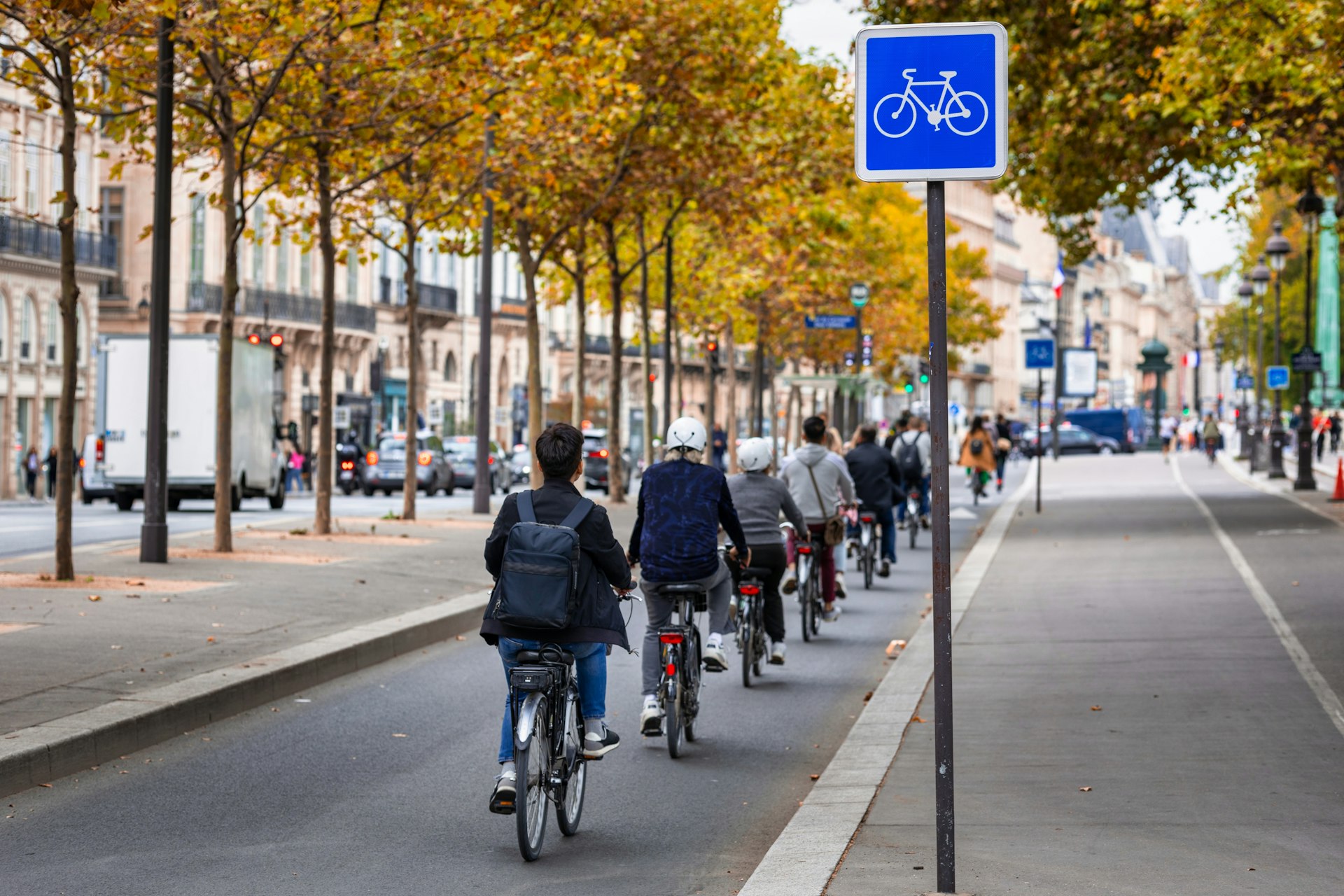
10. Crossing roads can be complicated
Be cautious on the streets as some roads are shared, and cars, taxis, delivery trucks, bikes, scooters, motorbikes, skaters and pedestrians are expected to coexist in these busy spaces. Although the French drive on the right, be aware that bicycles and scooters may use dedicated lanes that sometimes run counter to the traffic direction or merge with pedestrian walkways. They are not always visible so watch out in all directions before stepping out into the road.
11. Paris is generally a safe city
Fortunately, Paris is a safe city overall. In localized areas in the north-east of Paris there can be occasional criminal activity, typically at night time. As a tourist, you are unlikely to be targeted for violent crimes based on race or origin, especially when sticking to central attractions. If you need transportation late at night when the Metro isn't running (it stops between midnight and 5am on weekdays, from 1:30am on weekends), it's safest to call a taxi or use a ride-hailing app.
Generally, Paris is welcoming and LGBTIQ+ friendly (Le Marais is one of the historic “gayborhoods” in Paris). Unfortunately, catcalling towards women can happen on the streets or on public transportation, despite efforts in raising awareness. Take reasonable precautions as you would in any big city: watch out for potentially aggressive behavior – particularly from individuals who may be intoxicated or disoriented – on the Metro or on the streets.
12. Every district has its own central police station
Unfortunately things do sometimes go wrong, so if you run into a situation where the help of the police is required, look for the closest police station. Every arrondissement has its own central office open at all times. Alternatively, dial the European emergency number (112). For the fire department, dial 18.
13. The standard of medical care is high
Should you be in need of medical assistance, Paris has the largest operating public hospital system in Europe with emergency rooms equipped to receive travelers. In case of emergency, dial 15 for the ambulance service. Over-the-counter medicines can be found at pharmacies, which are on almost every street in Paris, with English-speaking staff around tourist areas. A mapping app will direct you to the nearest 24-hour pharmacy, should you need it.
Keep planning your trip to Paris:
Bring home the perfect souvenir with Paris in 5 Shops
Learn how to navigate the City of Lights with The best ways to get around Paris
Plan an affordable trip with Paris on a budget
Stay on the cutting edge with these 5 new (and unexpected) cultural attractions in Paris
This article was first published August 2021 and updated March 2024
Explore related stories
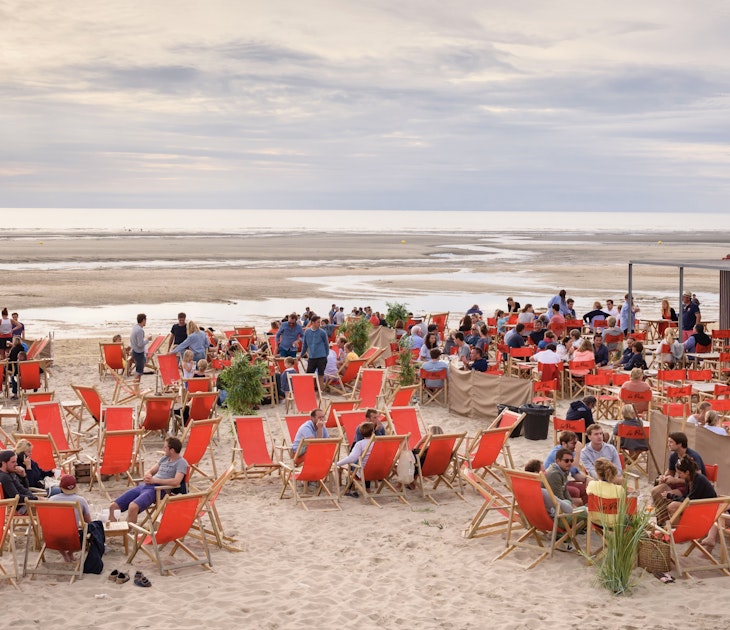
Apr 19, 2024 • 8 min read
In France’s far northwest, the Côte d’Opale offers glitz and glamor, spectacular natural beauty and gloriously golden sand beaches in spades.
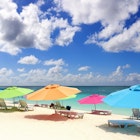
Apr 17, 2024 • 8 min read
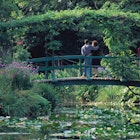
Apr 1, 2024 • 8 min read

Mar 29, 2024 • 6 min read

Jan 10, 2024 • 5 min read

Dec 25, 2023 • 11 min read

Dec 19, 2023 • 6 min read

Nov 25, 2023 • 7 min read

Nov 17, 2023 • 10 min read
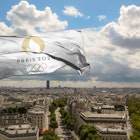
Oct 3, 2023 • 4 min read
Ministère de l'Intérieur et des outre-mer
- Paramètres d'affichage
COVID-19 : International travel

Mobilising on a weekly basis up to 6,000 members of the civil security service to carry out tests, border guards to check travellers’ health documents and internal security forces to oversee the isolation or quarantine measures decreed by the prefects, this mechanism was duly adjusted in response to the changing health conditions and Community regulations.
In light of the latest developments in the pandemic, the port health control system has been discontinued, pursuant to the law terminating the emergency measures instituted to combat the COVID-19 outbreak.
Accordingly, the rules previously applied to travellers to France no longer apply effective from 1 August 2022:
- Travellers are now exempt from any formalities prior to entry into France, be it in mainland France or overseas, and no longer required to present a health pass, regardless of the country or place of departure;
- Justification of travel (the “compelling reason”) is no longer required;
- Travellers are no longer required to present a sworn statement of non-contamination and an undertaking to undergo an antigen test or screening upon arrival in the country.
The same applies to travel between mainland France and each of the overseas territories. Similarly, the French authorities no longer require any justification for outgoing travel from France, be it from mainland France or overseas, or any exit clearance to travel to another country.
However, foreign countries may continue to apply specific entry measures and formalities.
As of February 16th 2023, all passengers traveling from China are no longer required to present a negative antigen or PCR test result dated less than 48 hours, or a sworn statement. Random screening on arrival is also discontinued.
It is still recommended to wear a single-use surgical mask on board the aircraft.
Passengers from China making a stopover in a different country to reach France are invited to check the conditions applicable to transits.
Click here to find out more about Overseas Territories Travel.
Suivez-nous sur nos réseaux sociaux
Paramètres d’affichage
France Travel Restrictions
Traveler's COVID-19 vaccination status
Traveling from the United States to France
Open for vaccinated visitors
COVID-19 testing
Not required
Not required for vaccinated visitors
Restaurants
Not required in enclosed environments and public transportation.
France entry details and exceptions
Ready to travel, find flights to france, find stays in france, explore more countries on travel restrictions map, destinations you can travel to now, dominican republic, netherlands, philippines, puerto rico, switzerland, united arab emirates, united kingdom, know when to go.
Sign up for email alerts as countries begin to open - choose the destinations you're interested in so you're in the know.
Can I travel to France from the United States?
Most visitors from the United States, regardless of vaccination status, can enter France.
Can I travel to France if I am vaccinated?
Fully vaccinated visitors from the United States can enter France without restrictions.
Can I travel to France without being vaccinated?
Unvaccinated visitors from the United States can enter France without restrictions.
Do I need a COVID test to enter France?
Visitors from the United States are not required to present a negative COVID-19 PCR test or antigen result upon entering France.
Can I travel to France without quarantine?
Travelers from the United States are not required to quarantine.
Do I need to wear a mask in France?
Mask usage in France is not required in enclosed environments and public transportation.
Are the restaurants and bars open in France?
Restaurants in France are open. Bars in France are .
Update April 12, 2024
Information for u.s. citizens in the middle east.
- Travel Advisories |
- Contact Us |
- MyTravelGov |
Find U.S. Embassies & Consulates
Travel.state.gov, congressional liaison, special issuance agency, u.s. passports, international travel, intercountry adoption, international parental child abduction, records and authentications, popular links, travel advisories, mytravelgov, stay connected, legal resources, legal information, info for u.s. law enforcement, replace or certify documents.
Share this page:
France Travel Advisory
Travel advisory july 26, 2023, france - level 2: exercise increased caution.
Reissued with obsolete COVID-19 page links removed.
Exercise increased caution in France due to terrorism and civil unrest .
Country Summary: Terrorist groups continue plotting possible attacks in France. Terrorists may attack with little or no warning, targeting tourist locations, transportation hubs, markets/shopping malls, local government facilities, hotels, clubs, restaurants, places of worship, parks, major sporting and cultural events, educational institutions, airports, and other public areas.
Incidents such as pickpocketing and phone snatchings occur frequently and can happen anywhere, especially in crowded areas such as airports, train stations, subway and train cars, and near tourist attractions.
Peaceful demonstrations and strikes in Paris and other cities throughout France occur regularly and can disrupt transportation. On rare occasions, demonstrations have included violence and property damage and police have responded with water cannons and tear gas.
Read the country information page for additional information on travel to France.
If you decide to travel to France:
- Be aware of your surroundings when traveling to tourist locations and large crowded public venues.
- Avoid demonstrations and areas with significant police activity.
- Follow the instructions of local authorities including movement restrictions related to any ongoing police action.
- Find a safe location and shelter in place if unable to leave the vicinity of a demonstration.
- Monitor local media for breaking events and adjust your plans based on new information.
- Enroll in the Smart Traveler Enrollment Program ( STEP ) to receive Alerts and make it easier to locate you in an emergency.
- Follow the Department of State on Facebook and Twitter .
- Review the Country Security Report for France.
- Visit the CDC page for the latest Travel Health Information related to your travel.
- Prepare a contingency plan for emergency situations. Review the Traveler’s Checklist .
Travel Advisory Levels
Assistance for u.s. citizens, search for travel advisories, external link.
You are about to leave travel.state.gov for an external website that is not maintained by the U.S. Department of State.
Links to external websites are provided as a convenience and should not be construed as an endorsement by the U.S. Department of State of the views or products contained therein. If you wish to remain on travel.state.gov, click the "cancel" message.
You are about to visit:
Cookies on GOV.UK
We use some essential cookies to make this website work.
We’d like to set additional cookies to understand how you use GOV.UK, remember your settings and improve government services.
We also use cookies set by other sites to help us deliver content from their services.
You have accepted additional cookies. You can change your cookie settings at any time.
You have rejected additional cookies. You can change your cookie settings at any time.
- Passports, travel and living abroad
- Travel abroad
- Foreign travel advice
Warnings and insurance
The Foreign, Commonwealth & Development Office (FCDO) provides advice about risks of travel to help British nationals make informed decisions. Find out more about FCDO travel advice .
Flight disruption Thursday 25 April 2024
It is being reported that on Thursday 25 April 2024, flights across France will be disrupted, with many cancelled, following a call for strike action by air traffic control unions.
Check your operator’s advice before travelling, including where you are taking connecting flights.
Before you travel
No travel can be guaranteed safe. Read all the advice in this guide as well as support for British nationals abroad which includes:
- advice on preparing for travel abroad and reducing risks
- information for women, LGBT and disabled travellers
Follow and contact FCDO travel on Twitter , Facebook and Instagram . You can also sign up to get email notifications when this advice is updated.
Travel insurance
If you choose to travel, research your destinations and get appropriate travel insurance . Insurance should cover your itinerary, planned activities and expenses in an emergency.
Related content
Is this page useful.
- Yes this page is useful
- No this page is not useful
Help us improve GOV.UK
Don’t include personal or financial information like your National Insurance number or credit card details.
To help us improve GOV.UK, we’d like to know more about your visit today. We’ll send you a link to a feedback form. It will take only 2 minutes to fill in. Don’t worry we won’t send you spam or share your email address with anyone.
Travel and Covid-19: Answers to your questions
The entry, exit, and transit requirements for each country may differ greatly. We invite you to check all travel requirements (Covid-19 test, vaccines,...) for the countries through which you are due to transit directly on TravelDoc .

Check the type of test to be performed and its validity period

Check the approved vaccines and their validity requirements
What are the travel requirements for domestic flights within France and for flights to/from Corsica?
For all other destinations, please review the travel requirements for your flight on TravelDoc .
I have a connection in Metropolitan France. Do I need to be tested or vaccinated?
If you are traveling to or from an international destination and have a connection in Metropolitan France, you must meet the conditions imposed by your destination country.
Please check TravelDoc for the latest information regarding your travel requirements.
Where can I find real-time information on the latest travel requirements?
The TravelDoc website provides the latest information on travel requirements around the world. Visit TravelDoc
I am not vaccinated. Can I still travel?
If you are not vaccinated, please make sure to check the travel documents required for your trip on TravelDoc , as rules of entry and exit vary from country to country. For flight to/from France, no test or vaccine is required.
What is "Ready to Fly"?
The free and time-saving "Ready to Fly" service allows you to upload all the required health documents for your travel before you arrive at the airport. If your booking is eligible for this service, you will receive an e-mail prompting you to upload your documents to our online platform a few days before your scheduled flight. You can download or print your boarding pass with “Ready to Fly” printed on it after your documents have been checked and approved. You will receive a notification with instructions if you are missing a document or if a document is incomplete. Learn more .
Can I reschedule my flight if I test positive for Covid-19?
You can reschedule your flight if you test positive for Covid-19 in the days leading up to your trip if you get in touch with our customer service team before your scheduled departure date.
Covid-19 tests
When do i need to be tested to travel.
The validity period for Covid-19 tests is short: usually a few days before departure or arrival depending on the country. Visit TravelDoc to find out when to get tested before you travel. For more information on all domestic flights within France and flights to/from Corsica, please visit our FAQ on the health pass in France. Visit TravelDoc
How long is my test valid?
In most cases, the validity of a Covid-19 test is calculated based on:
- The time and date of collection
- The time and date of departure of the first flight of your trip.
However, exceptions are possible. Some countries calculate validity in days, not hours, or flight arrival rather than departure. Please visit TravelDoc to view the latest validity requirements for your trip.
Traveling on a connecting flight?
Please refer to the above information to calculate your test’s validity period. If different validity periods are required for each flight in your booking, the shortest validity period applies from the start of your trip. Visit TravelDoc
What type of Covid-19 test do I need for travel?
The type of Covid-19 test required varies by country. Visit TravelDoc to find out which test you will need to take before you travel. For more information on all domestic flights within France and flights to/from Corsica, please visit our FAQ on the health pass in France. Visit TravelDoc
Does my child need a Covid-19 test in order to travel? What are the age requirements?
Testing requirements for children depend on the destination country. Please consult TravelDoc to find out if your child needs to be tested for your trip. Visit TravelDoc
I've received my test result. What document do I need to show at the airport?
Some countries require a test certificate in digital or printed format, which may include a QR code. This certificate may be different from the result sent by your lab. Visit TravelDoc to verify which document to show at the airport. Visit TravelDoc
Does my test certificate need to be in a specific language?
Some countries accept a test certificate in English, others require it to be translated into the official language. See TravelDoc for more information. Visit TravelDoc
Vaccines against Covid-19
I have been vaccinated against covid-19. do i still need to get tested before i leave.
Some countries exempt vaccinated travelers from having to show a negative Covid-19 test. Check with TravelDoc to see if this applies to you. Remember to check the validity requirements, the type of vaccine allowed and the minimum time required between the last injection and entry into the country. Visit TravelDoc
I have been vaccinated against Covid-19. Do I still need to observe a quarantine upon arrival?
Some countries exempt vaccinated travelers from quarantine upon arrival. Check with TravelDoc to see if this applies to you. Be sure to check the validity requirements, the type of vaccine allowed and the minimum time required between the last injection and entry. Visit TravelDoc
What vaccines are authorized for travel?
Authorized vaccines vary from country to country, as do their validity conditions and the minimum time required between the last injection and entry into the country. In addition, some countries require all travelers, even those who have been vaccinated, to take a Covid-19 test or to observe a quarantine upon arrival. See TravelDoc for more information. Visit TravelDoc
New requirements for Americans traveling to Europe postponed until 2025
Visitors who now travel visa-free will need to get approval prior to departure.
Americans eyed upcoming travel to European destinations slightly differently due to news of a requirement that was set to start in 2024 for U.S. passport holders. But now, EU officials have postponed the European Travel Information and Authorisation System ( ETIAS ) launch until spring of 2025.
SchengenVisaInfo.com, a website dedicated to the world's largest visa-free zone where 27 European countries abolished their internal borders known as the Schengen Area, first reported that an EU official confirmed ETIAS won't go live until May 2025, "due to continued delays with the introduction of the related Entry-Exit System (EES), which needs to be operational before ETIAS can be implemented."
An official for the European Union did not immediately respond to ABC News' request for comment.
What to know about ETIAS for US travelers
If you previously traveled to Europe without a visa, you will now need to apply for authorization through the ETIAS , before visiting.

Today, American travelers have visa-free access to 184 global destinations, according to the Henley Passport Index . And while the U.S. passport is currently ranked eighth-most powerful passport to own, that could be set to shift when the European Union adds its new documentation requirements for U.S. visitors.
The application form, which will be available on the official ETIAS website as well as a mobile application, has a fee of 7 euros or $7.79 U.S. dollars. All communication is done by email.
Once you are approved for travel, the authorization entitles visitors to stay in European countries that require ETIAS for up to 90 days within any 180-day period and travelers must be in possession of a valid ETIAS during their entire stay.
MORE: New warning issued for rebooking air travel after delays, cancellations
According to ETIAS, most applications should be processed within minutes, but in case an application takes longer, decisions will be sent within four days or up to 14 days if the applicant is asked to provide additional documentation.
The European Union encourages travelers to apply for an ETIAS authorization "well in advance of your planned journey."
Related Stories

TikTok bows to European pressure and halts reward feature on new app in France and Spain
- Apr 24, 12:18 PM

Poland lays claim to a leadership role in Europe as Russia's war threatens stability
- Apr 25, 1:39 AM

Hungary's Orbán urges European conservatives, and Trump, toward election victories at CPAC event
- Apr 25, 7:47 AM
Confirmation of application submission will be sent on email with a unique number that is needed for future reference.

Upon receiving ETIAS travel authorization, travelers are to ensure that their name, passport number and other information is correct because any mistake will prevent them from crossing the border.
If an application is refused, the email will include the reasons for the decision along with information about how to appeal.
ETIAS travel authorization is valid for three years, according to the EU, or until the travel document you used in your application expires, whichever comes first.
MORE: European heat wave breaking records with little relief in sight
The ETIAS authorization is linked to a person's travel document -- such as a U.S. passport -- and both documents will be needed to board a flight, bus or ship to enter any of the European countries that require ETIAS.
Similar to international border requirements with a passport, the ETIAS authorization doesn't guarantee automatic right of entry. "Border guards will verify that you meet the entry conditions" and anyone who does not meet the conditions "will be refused entry," according to the EU.
Click here to learn more about the process from the European Union.
An earlier version of this story was originally published on July 21, 2023.
Related Topics

Macron outlines his vision for Europe to become an assertive global power as war in Ukraine rages on
- Apr 25, 4:50 AM
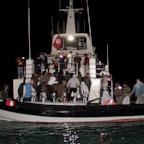
European leaders laud tougher migration policies but more people die on treacherous sea crossings
- Apr 24, 6:06 AM
ABC News Live
24/7 coverage of breaking news and live events
You are using an outdated browser. Upgrade your browser today or install Google Chrome Frame to better experience this site.
France Traveler View
Travel health notices, vaccines and medicines, non-vaccine-preventable diseases, stay healthy and safe.
- Packing List
After Your Trip
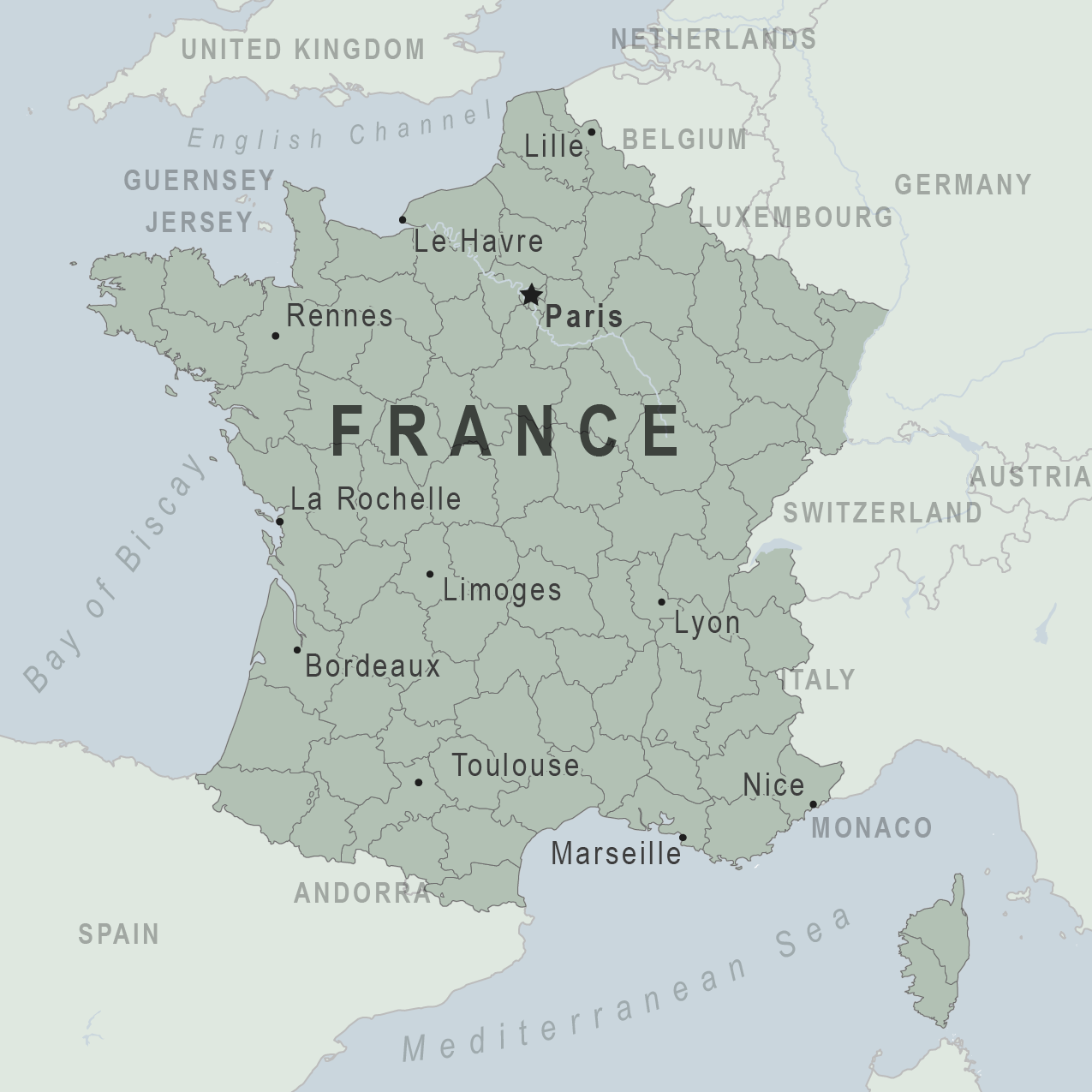
There are no notices currently in effect for France.
⇧ Top
Check the vaccines and medicines list and visit your doctor at least a month before your trip to get vaccines or medicines you may need. If you or your doctor need help finding a location that provides certain vaccines or medicines, visit the Find a Clinic page.
Routine vaccines
Recommendations.
Make sure you are up-to-date on all routine vaccines before every trip. Some of these vaccines include
- Chickenpox (Varicella)
- Diphtheria-Tetanus-Pertussis
- Flu (influenza)
- Measles-Mumps-Rubella (MMR)
Immunization schedules
All eligible travelers should be up to date with their COVID-19 vaccines. Please see Your COVID-19 Vaccination for more information.
COVID-19 vaccine
Hepatitis A
Consider hepatitis A vaccination for most travelers. It is recommended for travelers who will be doing higher risk activities, such as visiting smaller cities, villages, or rural areas where a traveler might get infected through food or water. It is recommended for travelers who plan on eating street food.
Hepatitis A - CDC Yellow Book
Dosing info - Hep A
Hepatitis B
Recommended for unvaccinated travelers younger than 60 years old traveling to France. Unvaccinated travelers 60 years and older may get vaccinated before traveling to France.
Hepatitis B - CDC Yellow Book
Dosing info - Hep B
Cases of measles are on the rise worldwide. Travelers are at risk of measles if they have not been fully vaccinated at least two weeks prior to departure, or have not had measles in the past, and travel internationally to areas where measles is spreading.
All international travelers should be fully vaccinated against measles with the measles-mumps-rubella (MMR) vaccine, including an early dose for infants 6–11 months, according to CDC’s measles vaccination recommendations for international travel .
Measles (Rubeola) - CDC Yellow Book
France is free of dog rabies. However, rabies may still be present in wildlife species, particularly bats. CDC recommends rabies vaccination before travel only for people working directly with wildlife. These people may include veterinarians, animal handlers, field biologists, or laboratory workers working with specimens from mammalian species.
Rabies - CDC Yellow Book
Tick-borne Encephalitis
Avoid bug bites.
Learn more about tick-borne encephalitis at your destination .
Tick-borne Encephalitis - CDC Yellow Book
Avoid contaminated water
Leptospirosis
How most people get sick (most common modes of transmission)
- Touching urine or other body fluids from an animal infected with leptospirosis
- Swimming or wading in urine-contaminated fresh water, or contact with urine-contaminated mud
- Drinking water or eating food contaminated with animal urine
- Avoid contaminated water and soil
Clinical Guidance
Leishmaniasis
- Sand fly bite
- Avoid Bug Bites
- Mosquito bite
- An infected pregnant woman can spread it to her unborn baby
Airborne & droplet
- Breathing in air or accidentally eating food contaminated with the urine, droppings, or saliva of infected rodents
- Bite from an infected rodent
- Less commonly, being around someone sick with hantavirus (only occurs with Andes virus)
- Avoid rodents and areas where they live
- Avoid sick people
Tuberculosis (TB)
- Breathe in TB bacteria that is in the air from an infected and contagious person coughing, speaking, or singing.
Learn actions you can take to stay healthy and safe on your trip. Vaccines cannot protect you from many diseases in France, so your behaviors are important.
Eat and drink safely
Food and water standards around the world vary based on the destination. Standards may also differ within a country and risk may change depending on activity type (e.g., hiking versus business trip). You can learn more about safe food and drink choices when traveling by accessing the resources below.
- Choose Safe Food and Drinks When Traveling
- Water Treatment Options When Hiking, Camping or Traveling
- Global Water, Sanitation and Hygiene | Healthy Water
- Avoid Contaminated Water During Travel
You can also visit the Department of State Country Information Pages for additional information about food and water safety.
Prevent bug bites
Although France is an industrialized country, bug bites here can still spread diseases. Just as you would in the United States, try to avoid bug bites while spending time outside or in wooded areas.
What can I do to prevent bug bites?
- Cover exposed skin by wearing long-sleeved shirts, long pants, and hats.
- Use an appropriate insect repellent (see below).
- Consider using permethrin-treated clothing and gear if spending a lot of time outside. Do not use permethrin directly on skin.
What type of insect repellent should I use?
- FOR PROTECTION AGAINST TICKS AND MOSQUITOES: Use a repellent that contains 20% or more DEET for protection that lasts up to several hours.
- Picaridin (also known as KBR 3023, Bayrepel, and icaridin)
- Oil of lemon eucalyptus (OLE) or para-menthane-diol (PMD)
- 2-undecanone
- Always use insect repellent as directed.
What should I do if I am bitten by bugs?
- Avoid scratching bug bites, and apply hydrocortisone cream or calamine lotion to reduce the itching.
- Check your entire body for ticks after outdoor activity. Be sure to remove ticks properly.
What can I do to avoid bed bugs?
Although bed bugs do not carry disease, they are an annoyance. See our information page about avoiding bug bites for some easy tips to avoid them. For more information on bed bugs, see Bed Bugs .
For more detailed information on avoiding bug bites, see Avoid Bug Bites .
Stay safe outdoors
If your travel plans in France include outdoor activities, take these steps to stay safe and healthy during your trip:
- Stay alert to changing weather conditions and adjust your plans if conditions become unsafe.
- Prepare for activities by wearing the right clothes and packing protective items, such as bug spray, sunscreen, and a basic first aid kit.
- Consider learning basic first aid and CPR before travel. Bring a travel health kit with items appropriate for your activities.
- If you are outside for many hours in the heat, eat salty snacks and drink water to stay hydrated and replace salt lost through sweating.
- Protect yourself from UV radiation : use sunscreen with an SPF of at least 15, wear protective clothing, and seek shade during the hottest time of day (10 a.m.–4 p.m.).
- Be especially careful during summer months and at high elevation. Because sunlight reflects off snow, sand, and water, sun exposure may be increased during activities like skiing, swimming, and sailing.
- Very cold temperatures can be dangerous. Dress in layers and cover heads, hands, and feet properly if you are visiting a cold location.
Stay safe around water
- Swim only in designated swimming areas. Obey lifeguards and warning flags on beaches.
- Do not dive into shallow water.
- Avoid swallowing water when swimming. Untreated water can carry germs that make you sick.
- Practice safe boating—follow all boating safety laws, do not drink alcohol if you are driving a boat, and always wear a life jacket.
Keep away from animals
Most animals avoid people, but they may attack if they feel threatened, are protecting their young or territory, or if they are injured or ill. Animal bites and scratches can lead to serious diseases such as rabies.
Follow these tips to protect yourself:
- Do not touch or feed any animals you do not know.
- Do not allow animals to lick open wounds, and do not get animal saliva in your eyes or mouth.
- Avoid rodents and their urine and feces.
- Traveling pets should be supervised closely and not allowed to come in contact with local animals.
- If you wake in a room with a bat, seek medical care immediately. Bat bites may be hard to see.
All animals can pose a threat, but be extra careful around dogs, bats, monkeys, sea animals such as jellyfish, and snakes. If you are bitten or scratched by an animal, immediately:
- Wash the wound with soap and clean water.
- Go to a doctor right away.
- Tell your doctor about your injury when you get back to the United States.
Reduce your exposure to germs
Follow these tips to avoid getting sick or spreading illness to others while traveling:
- Wash your hands often, especially before eating.
- If soap and water aren’t available, clean hands with hand sanitizer (containing at least 60% alcohol).
- Don’t touch your eyes, nose, or mouth. If you need to touch your face, make sure your hands are clean.
- Cover your mouth and nose with a tissue or your sleeve (not your hands) when coughing or sneezing.
- Try to avoid contact with people who are sick.
- If you are sick, stay home or in your hotel room, unless you need medical care.
Avoid sharing body fluids
Diseases can be spread through body fluids, such as saliva, blood, vomit, and semen.
Protect yourself:
- Use latex condoms correctly.
- Do not inject drugs.
- Limit alcohol consumption. People take more risks when intoxicated.
- Do not share needles or any devices that can break the skin. That includes needles for tattoos, piercings, and acupuncture.
- If you receive medical or dental care, make sure the equipment is disinfected or sanitized.
Know how to get medical care while traveling
Plan for how you will get health care during your trip, should the need arise:
- Carry a list of local doctors and hospitals at your destination.
- Review your health insurance plan to determine what medical services it would cover during your trip. Consider purchasing travel health and medical evacuation insurance for things your regular insurance will not cover.
- Carry a card that identifies, in the local language, your blood type, chronic conditions or serious allergies, and the generic names of any medicines you take.
- Bring copies of your prescriptions for medicine and for eye glasses and contact lenses.
- Some prescription drugs may be illegal in other countries. Call France’s embassy to verify that all of your prescription(s) are legal to bring with you.
- Bring all the medicines (including over-the-counter medicines) you think you might need during your trip, including extra in case of travel delays. Ask your doctor to help you get prescriptions filled early if you need to.
Many foreign hospitals and clinics are accredited by the Joint Commission International. A list of accredited facilities is available at their website ( www.jointcommissioninternational.org ).
Select safe transportation
Motor vehicle crashes are the #1 killer of healthy US citizens in foreign countries.
Be smart when you are traveling on foot.
- Use sidewalks and marked crosswalks.
- Pay attention to the traffic around you, especially in crowded areas.
- Remember, people on foot do not always have the right of way in other countries.
Riding/Driving
Choose a safe vehicle.
- Choose official taxis or public transportation, such as trains and buses.
- Make sure there are seatbelts.
- Avoid overcrowded, overloaded, top-heavy buses and minivans.
- Avoid riding on motorcycles or motorbikes, especially motorbike taxis. (Many crashes are caused by inexperienced motorbike drivers.)
- Choose newer vehicles—they may have more safety features, such as airbags, and be more reliable.
- Choose larger vehicles, which may provide more protection in crashes.
Think about the driver.
- Do not drive after drinking alcohol or ride with someone who has been drinking.
- Consider hiring a licensed, trained driver familiar with the area.
- Arrange payment before departing.
Follow basic safety tips.
- Wear a seatbelt at all times.
- Sit in the back seat of cars and taxis.
- When on motorbikes or bicycles, always wear a helmet. (Bring a helmet from home, if needed.)
- Do not use a cell phone or text while driving (illegal in many countries).
- Travel during daylight hours only, especially in rural areas.
- If you choose to drive a vehicle in France, learn the local traffic laws and have the proper paperwork.
- Get any driving permits and insurance you may need. Get an International Driving Permit (IDP). Carry the IDP and a US-issued driver's license at all times.
- Check with your auto insurance policy's international coverage, and get more coverage if needed. Make sure you have liability insurance.
- Avoid using local, unscheduled aircraft.
- If possible, fly on larger planes (more than 30 seats); larger airplanes are more likely to have regular safety inspections.
- Try to schedule flights during daylight hours and in good weather.
Helpful Resources
Road Safety Overseas (Information from the US Department of State): Includes tips on driving in other countries, International Driving Permits, auto insurance, and other resources.
The Association for International Road Travel has country-specific Road Travel Reports available for most countries for a minimal fee.
Maintain personal security
Use the same common sense traveling overseas that you would at home, and always stay alert and aware of your surroundings.
Before you leave
- Research your destination(s), including local laws, customs, and culture.
- Monitor travel advisories and alerts and read travel tips from the US Department of State.
- Enroll in the Smart Traveler Enrollment Program (STEP) .
- Leave a copy of your itinerary, contact information, credit cards, and passport with someone at home.
- Pack as light as possible, and leave at home any item you could not replace.
While at your destination(s)
- Carry contact information for the nearest US embassy or consulate .
- Carry a photocopy of your passport and entry stamp; leave the actual passport securely in your hotel.
- Follow all local laws and social customs.
- Do not wear expensive clothing or jewelry.
- Always keep hotel doors locked, and store valuables in secure areas.
- If possible, choose hotel rooms between the 2nd and 6th floors.
Healthy Travel Packing List
Use the Healthy Travel Packing List for France for a list of health-related items to consider packing for your trip. Talk to your doctor about which items are most important for you.
Why does CDC recommend packing these health-related items?
It’s best to be prepared to prevent and treat common illnesses and injuries. Some supplies and medicines may be difficult to find at your destination, may have different names, or may have different ingredients than what you normally use.
If you are not feeling well after your trip, you may need to see a doctor. If you need help finding a travel medicine specialist, see Find a Clinic . Be sure to tell your doctor about your travel, including where you went and what you did on your trip. Also tell your doctor if you were bitten or scratched by an animal while traveling.
For more information on what to do if you are sick after your trip, see Getting Sick after Travel .
Map Disclaimer - The boundaries and names shown and the designations used on maps do not imply the expression of any opinion whatsoever on the part of the Centers for Disease Control and Prevention concerning the legal status of any country, territory, city or area or of its authorities, or concerning the delimitation of its frontiers or boundaries. Approximate border lines for which there may not yet be full agreement are generally marked.
Other Destinations
If you need help finding travel information:
Message & data rates may apply. CDC Privacy Policy
File Formats Help:
- Adobe PDF file
- Microsoft PowerPoint file
- Microsoft Word file
- Microsoft Excel file
- Audio/Video file
- Apple Quicktime file
- RealPlayer file
- Zip Archive file
Exit Notification / Disclaimer Policy
- The Centers for Disease Control and Prevention (CDC) cannot attest to the accuracy of a non-federal website.
- Linking to a non-federal website does not constitute an endorsement by CDC or any of its employees of the sponsors or the information and products presented on the website.
- You will be subject to the destination website's privacy policy when you follow the link.
- CDC is not responsible for Section 508 compliance (accessibility) on other federal or private website.

Paris Travel Tips: 50 Important Things To Know Before Going To Paris
Are you planning a trip to the French capital? This post will give you all the useful Paris travel tips to make your trip fun and much easier.
Oh, Paris! The thought of walking through its beautiful streets , visiting its famous landmarks one after the other, tasting all its delicious foods , and finally climbing the Eiffel Tower , a trip to Paris is a dream come true!
If you’re planning a trip to Paris, it must be extremely exciting knowing that you’ll be in one of the most beautiful cities in the world.

Disclaimer: This post might contain affiliate links. This means we may earn a small commission (at no extra cost to you) should you choose to sign up for a program or make a purchase using one of our links. It’s okay – We love all of the products we recommend anyway, and you will too! Also, that commission helps us keep this awesome free blog up to date! You can read our full disclosure here for more details!
However, as you prepare for your visit, whether you’re going to Paris for the first time or have been there countless times, there are a number of Paris travel tips that will help you have a fun, safe, and seamless trip.
As someone who lives in the city, I’ve experienced Paris countless times and have found myself in various circumstances that have given me the immense experience to share practical tips for visiting Paris.
So, before you go, make sure that you read these Paris travel tips.
Before You Go, Here’s How to Plan Your Visit To Paris: Practical Quick Tips
WHERE TO STAY Best Eiffel Tower Views: Hôtel Le Walt (9.0) Luxury stay: Pullman Paris Tour Eiffel (8.2) Mid-range stay: Hôtel Eiffel (8.7) Budget Stay: People – Paris Bercy (8.9) Apartment Rental: Résidence Charles Floquet (9.1)
BEST GUIDED TOURS Louvre Museum guided tour : (4.5/5) Seine River Dinner Cruise : (4.7/5) Montmartre Walking Tour : (4.8/5) Le Marais Walking Food Tour : (4.5/5) Versailles Guided Tour : (4.8/5) Eiffel Tower Guided Tour : (4.4/5)
- Considering travel insurance for your trip? World Nomads offers coverage for more than 150 adventure activities as well as emergency medical, lost luggage, trip cancellation, and more.
- Prepare your trip extensively with this Paris Travel guidebook .
- Don’t forget a universal travel adapter , a travel neck pouch , and comfortable walking shoes .
- Consider getting either the museum pass or the Paris city pass if you plan to visit many attractions. The city pass comes with free transportation and access to the hop-on-hop-off bus. You can read my Paris museum pass review to see if it’s right for you.
- Book this private transfer from CDG airport to Paris to avoid the hustle of figuring out how to get to Paris.
Paris Travel Tips: Things To Know Before Visiting Paris
Whether it’s choosing the right time to visit, tips on navigating public transportation, how to dress in Paris, tips to fully get the most when visiting attractions, or mistakes to avoid, here are the best Paris tips for travelers.
For easy navigation, I’ll be categorizing this article into; general travel tips for Paris, money tips for visiting Paris, transportation travel tips for Paris, safety tips for traveling to Paris, and food & restaurant tips for Paris travelers. Now, let’s dive in.
General travel tips for Paris
1. choose the time to visit paris that is best for you.

The first thing to consider when planning a trip to Paris is to choose the best time to visit that works for you. There is no one answer that fits all as we all have different things going on in our lives.
But if you keep other factors constant and base your decision on what’s happening in Paris, or the weather, here is a brief to help you decide.
Paris in Spring is one of the best times to visit Paris. The temperatures are warm, the flowers are blooming and there are not huge crowds yet.
On the other hand, Paris in summer has the most pleasant weather (if there is no heat wave), and the days are long to enjoy the city to the max, however, it sees the biggest crowds of tourists and airplane fares, attractions, and hotels are at their highest.

For an in-between, opt to visit Paris in the fall . The weather is chilly, the streets are covered in fall colors, the crowds are reduced, especially towards the beginning of winter, and the general cost of travel starts to fall.
If you don’t want to deal with huge crowds, you can opt to visit Paris in winter . During this time, the crowds disappear, (though they creep back in during the Christmas season ), and the cost of flights and accommodation is lower, but you’ll have to brave the cold temperatures and short days.
I hope the breakdown of the season helps you choose but if personally I had to choose, I would say towards the end of spring and the beginning of fall are the best times to visit Paris.
The temperatures are still pretty warm, the crowds are not that much and the cost is not that high too.
2. Don’t Skimp on Travel Insurance
One of the best tips for traveling to Paris is not to forego travel Insurance. In fact, before traveling anywhere, whether it’s Paris or not, make sure that you have travel insurance.
So many things can happen on the road! You could lose your valuable travel accessories, you may need expensive urgent care, and if you don’t have travel insurance, it will get expensive pretty quickly yet insurance could have covered everything if you had spent just a few bucks on it.
Though there are countless travel insurance companies out there, the one I trust and recommend is World Nomads Travel insurance . They operate in over 130 countries, so it’s easy to request a quote and the claim process is not a rat race.
However, if you’re a digital nomad or a long-term traveler, you can also check out Safety Wings Travel insurance as they offer great deals for long-term travelers.
3. Don’t visit only the famous landmarks

It’s obvious the first places you’ll have on your Paris travel bucket list are the famous attractions like the Louvre Museum, the Eiffel Tower, the Sacre Coeur, the Arc de Triomphe, the Orsay Museum, and others.
Instead of just visiting only those ones, venture into other non-touristy things to do in Paris and go off the beaten path. This way, you’ll be able to explore Paris beyond what is in the guidebooks .
Some of the hidden gems of Paris worth checking out include parks like Parc Manceau, the covered passages of Paris , Les Arènes de Lutèce, the windmills in Montmartre , Paris Sewer Museum, Paris pet cemetery, and many others.
4. Buy skip-the-line tickets in advance to avoid wasting time in queues

One of the most useful tips when visiting Paris is to buy skip-the-line entry tickets to attractions in advance.
Paris is one of the most visited cities in Europe , so you can expect long queues at its popular attractions. At places like the Louvre, Eiffel Tower, or even Arc de Triomphe, you can easily spend 2-3 hours just in lines to access them.
While this may not be a big issue if you have a long time in the city, but if you’re visiting Paris for a weekend or even 1 day , you’ll lose so much time in queues instead of visiting other attractions.
The best way to avoid this is by purchasing skip-the-line tickets online. Some of the skip-the-line tickets you can buy in advance for popular attractions include;
- This Eiffel Tower skip-the-line ticket to the summit
- The Louvre museum skip-the-line ticket with an audio guide
- The Orsay museum skip-the-line ticket
- This Arc de Triomphe skip-the-line ticket
- Versailles Palace skip-the-line entry ticket to the palace and gardens
- And many others.
You can also check out my complete list of skip-the-line entry tickets to popular landmarks all in one place.
Pro tip* Instead of buying each individual ticket, you can choose to buy this Paris pass that will give you access to over 80 attractions for free while also skipping the long lines. Alternatively, if you intend to visit a number of museums, you’re better off buying this Paris museum pass . You can get more details about the museum pass by reading my detailed Paris museum pass review here .

5. Choose your accommodation in the central districts of Paris
If you have a few days in Paris, the last thing you want to do is waste time on long commutes by staying outside Paris or even in arrondissements that are a bit far from everything.
Instead of staying in the 20th district which is a bit far from the major attractions, choose to stay in either the 7th, 8th, or even the 1st. The bigger the number, the further away it is from central Paris.
You can read my post about where to stay in Paris according to arrondissements to get a general idea of the best area to stay in while in Paris.
6. Book your Hotel/Apartment rental way in advance
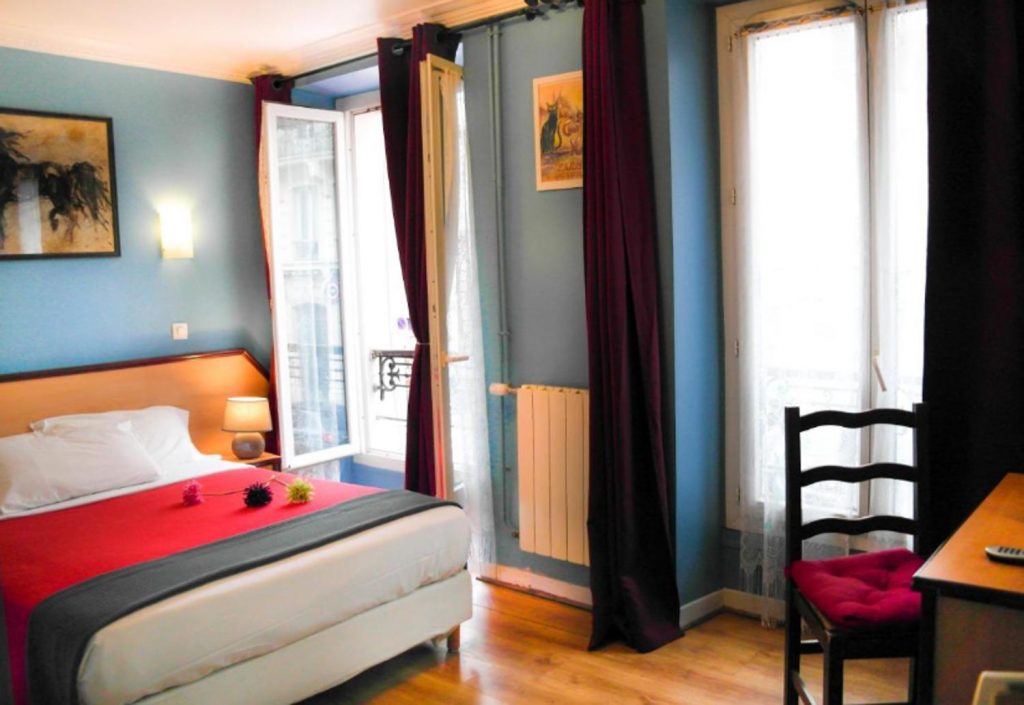
Courtesy of Hotel Audran / Booking.com
While still on the topic of booking in advance, another useful Paris travel tip is to book your accommodation in advance, especially in the summer since they book out fast.
This may not happen at all hotels/apartments but the one that suits your particular needs may be booked out if you don’t book in advance.
To help you choose the perfect hotel, I’ve written numerous articles about accommodation. You can click on the links below to go to a particular accommodation post that suits your need.
- Best Hotels with Eiffel Tower views
- Coolest Airbnbs and Apartment rentals with Eiffel Tower views
- Best Paris Hotels with Swimming Pools
- Top Hotels in Montmartre
- Budget-friendly Apartment rentals in Paris
- Best Hotels Near the Louvre museum
- Luxury Apartment vacation rentals in Paris
Alternatively, you can book my expert-selected hotels below if going through the above articles seems like a lot of work.
This is the best hotel with a view of the Eiffel Tower, this is the hotel I recommend for a luxury stay, this one for mid-range travelers, and this one for budget travelers. If you prefer an apartment rental, you’ll love everything about this aparthotel .
7. Take advantage of free museums
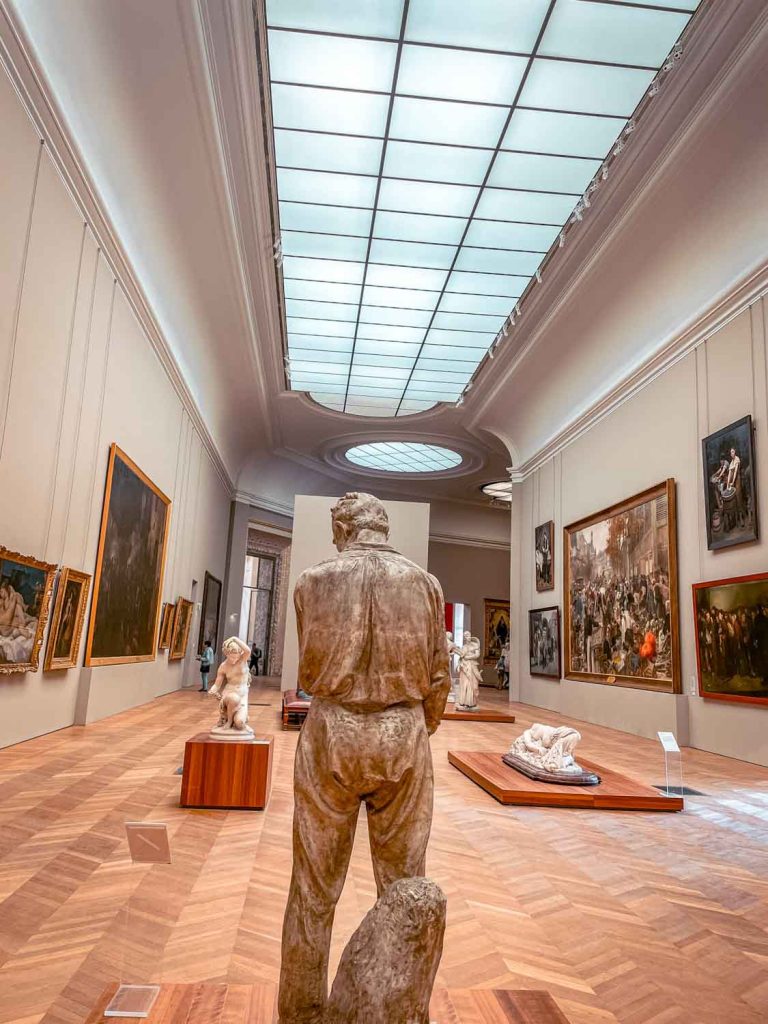
If you’re traveling on a budget or just want to save money for something else, one of the best tips for traveling in Paris is to take advantage of free museums.
There are so many free museums in Paris that are worth visiting including; Petit Palais, Musée Carnavalet, Maison De Victor Hugo, Musée De La Vie Romantique, and many others.
The best part is that since most people flock to the famous Paris museums , these ones are usually less crowded, yet interesting to visit and above all free.
8. Don’t just stick to Paris! explore the nearby cities Too

Paris is incredibly beautiful — there is no denying that! However, instead of just visiting the city and leaving the country, you should also explore nearby cities and towns.
You can plan a weekend getaway from Paris or even a day trip to places like Strasbourg, Monet’s garden, Provins, Mont Saint Michel , Chantilly, or any of these cute cities near Paris .
This will help you escape the non-stop life of Paris for a while as you enjoy the beauty of other parts of France.
9. Don’t try to see everything in a short amount of time
It’s not uncommon to want to fit in as many activities as you can in a short amount of time.
But the truth is, it’s quite impossible to see everything in one visit and quite frankly, I’ve not seen everything in Paris myself. Sometimes I find myself discovering new gems while randomly walking.
Trying to see everything will just create travel burnout since you’ll be running from one attraction to another instead of trying to immerse yourself and fully enjoy the experience.

10. Try to dress like Parisians
When it comes to what to wear in Paris, strive to dress like the locals! And how do locals dress, you may ask?
Parisians like to keep things chic and they always look like they put thought into what they’re wearing without going overboard. Not the runway kind of thing, but they always look well put together.
It’s hard to find Parisians wearing sports clothes to walk on the streets (except if they’re actively working out), or even sweatpants.
You can check out my article on what not to wear in Paris to know exactly what to leave home if you want to look like a Parisian.
11. Pack the right clothes for Each season
Before leaving the subject of clothes, another Paris travel tip to note is to pack clothes for the right season.
I have a couple of articles to help you with this depending on the season you’re visiting.
For the months of March to May, here is what to wear in Paris in springtime , what to wear in Paris in the summer if you’re traveling between June to August, what to wear in Paris in the fall if you’re visiting between August to November, and finally what to wear in Paris in the winter if your trip falls between December to February.
With those articles, you’ll know exactly the right clothes to pack for each season!
12. Go to vantage points to take in the views of the city

Paris is beautiful when seen from below but it gets even more magical from above. As you explore the city, get some time to take in the stunning views of Paris from various vantage points.
Some of the places to get stunning views of Paris include the top of the Eiffel Tower, Sacre Coeur, Ard de Triomphe, Butte Chaumont, Montparnasse Tower, Galeries Lafayette, and more. You can also enjoy the views of the Iron lady from these Eiffel Tower view spots .
13. Learning a little French goes a long way

You may hear some people say that English is widely spoken in Paris but I am here to tell you that that’s not true.
In fact, it’s more surprising to find a person who speaks English than one who doesn’t. Of course, people in the tourism industry will speak English but don’t be surprised to go to a store and no one speaks English.
This goes to say that, as you plan to visit Paris, you can learn a few basic French words to help you get around. It doesn’t have to be much but it’s always nice to try.
Some of the French words you can learn include;
- Bonjour = Hello
- Au revoir = Goodbye
- s’il vous plaît = Please
- Merci = Thank you
- De rien = you’re welcome
- Pardon = Pardon me
- Monsieur = Sir
- Madame = miss
- Une carafe d’eau, s’il Vous plaît = tap water, please
- l’addition s’il Vous plaît = The check/bill, please
- A emporter s’il vous plaît = Take away, please
- Je ne parle pas Français, désolé = sorry, I don’t speak English
- Parlez-vous anglais? = Do you speak English?
- Ou est…., s’il vous plaît? = Where is…., please?
14. Paris is not just romance and glamour

Paris is no doubt one of the most romantic places in the world. In fact, one of its nicknames is the city of love .
Yes, there are so many romantic things to do in Paris and it’s probably the number one proposal destination for couples.
But as romantic and charming as it is, it’s not just romance! It has an ugly side to it. Yes, pickpockets will try to take your stuff, scammers will try to scam you, you’ll see a few homeless people and beggars on the stress, and you be welcomed by the smell of Piss in some metro stations.
I am telling you this so that when you come, you don’t get struck by the Paris Syndrome many tourists face, especially those from Japan.
15. Check the opening hours for attractions before you visit
Another one of my favorite Paris travel tips is to check the opening hours of attractions before you visit.
Don’t just assume that all places are open at the same time or stay closed on the same days! Also, opening hours can change due to the season, so be sure to confirm before you go.
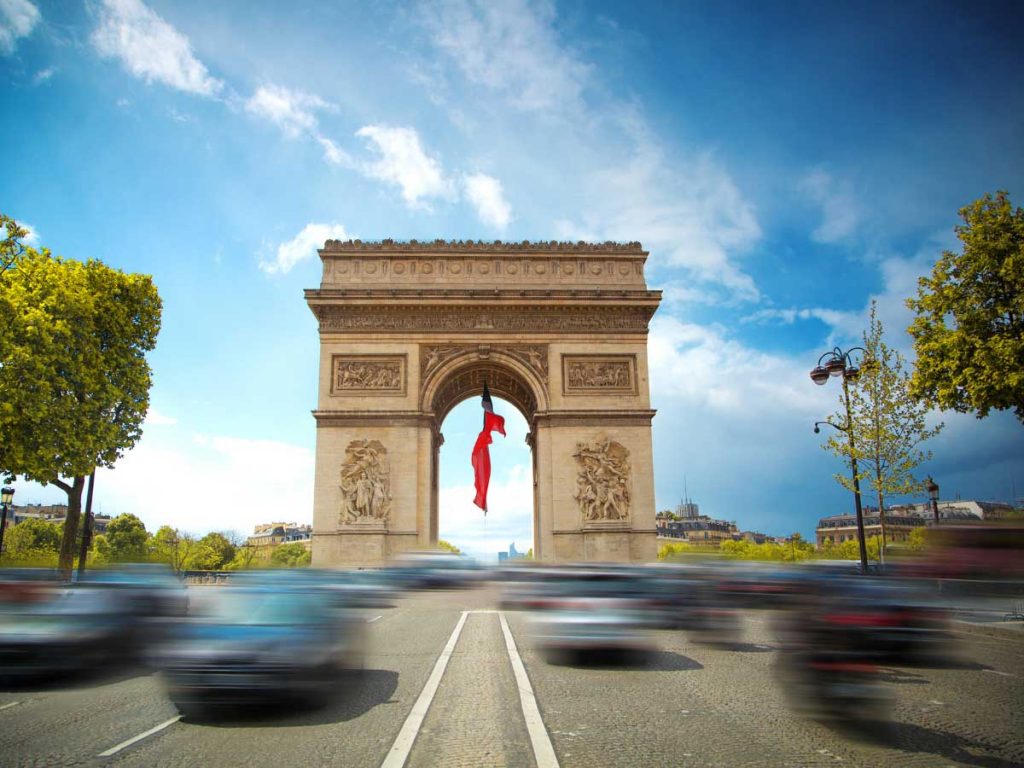

16. Create an itinerary but be open to adjusting it
Since Paris has a lot of things to see and do, the best way to see a number of them is by creating a realistic itinerary.
However, try not to follow it religiously. Leave some time in between to do spontaneous activities.
If a visit to one place leads you to another that was not on your itinerary but you’re interested in seeing it, you can just adjust your itinerary because the best experiences come unplanned — at least in some cases.
17. Most Museums in Paris close on Monday, not Sunday
It’s easy to assume that museums would be closed on Sundays but not in Paris. Most big (actually even the small ones) close on Mondays.
In fact, some restaurants too and shops close on Monday instead of Sunday. This is to make sure that people who work Monday – Friday can access certain services on Sunday.
This in turn means that people who worked on Sunday close on Monday. So, don’t just assume, check if the museum is open before your visit.

18. Explore Paris on Foot
Paris is a city best explored on foot. Most of the city’s major landmarks are not far from each other and you discover much more when you walk instead of taking the metro all the time.
For example, you could easily walk from the Opera area to Montmartre without even realizing it. While you can take the metro to reach there, you can easily walk as there are so many hidden gems to uncover along the way.
In fact, you’ll find most travelers say they walked much more in Paris than in other major European cities. This is usually common for some tourists from the US where walking is not as much as in Europe.
19. Carry Comfortable Walking shoes to Paris
If you’re a regular reader of this blog, you know that this is one thing I say all the time. Paris’s streets are covered in cobblestones and it will be hard to walk in high heels.
And if you’re going to explore the city on foot as mentioned above, you’ll want to leave your stilettoes and wedges at home and opt for comfortable walking shoes like sneakers or boots.

20. Try exploring Paris on a bike
Another way to explore Paris is to try biking. Since the world p*ndemic, Paris has put more bike lanes in place to ensure that it becomes more bike-friendly.
It’s easy to rent a bike in Paris as there are many stations all over the city where you can rent a Velib bike from without even talking to anyone.
When you’re done biking, you don’t have to take it back to where you picked it from, but rather at any other bike station you find along the way.
You can go biking along the Seine (nothing more romantic than that), along Canal Saint-Martin, and more.
21. Never forget to say bonjour when you enter a shop
While this may not be the norm back in your country, in Paris, it’s considered rude to not say Bonjour when you enter a shop.
In fact, even when you’re leaving the shop, saying goodbye is considered good manners. You can say au revoir which means “goodbye” or bonne journée for “have a good day”.
22. Carry your student id
In Paris, students are usually offered a discounted rate at major attractions, so if you’re a student, carry your valid student ID to take advantage of the reduced rates.

23. Refrain from shopping at every shop you see
Paris is a shoppers’ haven and if you’re a shopaholic, you may want to pop into every store you see to buy something.
The truth is that most shops in Paris are appealing and it’s like every single one is calling your name.
If you can resist the temptations, window shopping can do the trick, otherwise, you might just spend all your money buying luxury French brands in Paris.
24. Do not speak too loud
Another way to avoid looking like a tourist (and avoid making yourself a target by scammers and pickpockets) is by not speaking too loud.
French people in general don’t speak loud in public and always give an eye to tourists who speak like they’re addressing the entire room. Just keep the voice lower, at least until you leave Paris.

25. Explore Some of the beautiful parks in Paris
Beyond the famous landmarks, Paris is endowed with beautiful parks and gardens worth exploring. These green patches offer an escape into nature to a rather bustling city.
Whether it’s taking a leisurely walk to enjoy the cherry blossoms (if you visit in spring) or wanting to experience a Parisian picnic , there are a number of parks to choose from.
Some of the best Parisian parks not to miss include; Jardin des Plantes, Luxembourg gardens, Butte Chaumont, Parc Monceau, Tuileries gardens, Trocadero gardens, and more.
26. Plan alternative activities to do in case it rains
Regardless of the time of the year you visit whether it’s summer or winter, it’s likely to rain in Paris. But a rainy day doesn’t mean that you should just stay in your hotel room doing nothing.
There is plenty of things to do in Paris on a rainy day that you can choose from so that you don’t waste a day of sightseeing.
Plan to do activities like visiting museums or exploring the covered passages of Paris on the day it rains.

27. Be prepared for the rain
In the same way, don’t just plan out activities for a rainy day but also plan outfits and accessories for such days.
Make sure that you carry a windproof travel umbrella like this and/or this lightweight waterproof rain jacket .
28. Wake up early at least once to catch a sunrise
Imagine the sun rising above the Eiffel tower! Magical, right? If you’re in Paris for a few days, one thing you shouldn’t miss out on is taking in the beauty of the city with the first lights of the day.
You can go to any of these Paris sunrise spots and I guarantee you that compromising your sleep early in the morning will be so worth it.

29. Or stay for the sunset
If you’re not a morning person or you just prefer sunsets, ending your day with a beautiful sunset in Paris will be a memorable one.
You can go to places like Montparnasse Tower, Sacre Coeur, or the Seine cruise to watch a magical sunset.
30. Beware That Most Things close on Sunday
Like most cities, you’ll find Paris calm and quiet on Sundays. Most shops, bakeries, and even some restaurants stay closed on Sunday.
Though you’ll be able to visit some museums since they close on Monday as mentioned above, you may need to plan how to spend your Sunday well in Paris.
Tips for Paris Travel: Food & Restaurants
31. take a food tour while in paris.

Another way to fully immerse yourself in French culture is by taking a food tour. You’ll be able to not only learn more about French food but also taste it. Below are the 3 food tours I recommend in Paris.
- Le Marais Walking Food Tour: This food-guided tour will take you through the vibrant neighborhood of Le Marais. You’ll taste some wine and cheese, some pastries, and any other French delicacies that may be in during that season.
- Montmartre Cheese, Wine, and Pastry Tour: If you’d rather discover the neighborhood of Montmartre, then this is the best food tour for you. Just like the above, you’ll taste some cheese, wine, pastries, and Charcuterie. The tour is fun and informative and the guides are very friendly.
- Saint-Germain-des-Prés Pastry and Chocolate Walking Tour: If you have a sweet tooth, then this guided pastry tour is what I recommend. You’ll taste different types of chocolates, bread, and other French pastries during your tour while admiring all the beautiful bakeries in the Saint-Germain-des-Prés neighborhood.
32. Try as much French food as you can

One of the best ways to immerse yourself in the culture of the place you’re visiting is to try their local food and Paris is no different.
French cuisine is one of the best cuisines in the world and it would be a huge mistake not to try as much as you can.
Some of the French foods you can try include; Raclette (if you visit in the colder months), Crêpes, Croque Monsieur & Croque Madame, or Jambon-Beurre but don’t be afraid to try traditional French foods too like Escagorts, Frog Legs, or Couilles De Mouton (Mutton Testicles).
33. Don’t eat near famous attractions unless you have the budget for it
Unless you have the budget for it, I would refrain from eating at restaurants near popular places.
They’re usually expensive yet just a few minutes away you could get the same exact things (or even better) for less.

34. Make reservations at restaurants ahead of time
Just like at attractions, you’ll need to make reservations at restaurants, especially fancy ones like these restaurants with a view of the Eiffel Tower .
While you can just arrive at smaller cafes and bistros, some restaurants require making a reservation. You can’t just walk in and expect to be seated.
For some, you can make a reservation that very day while others require making a reservation up to 3 months in advance as they book out fast.
One example is Jules Verne , a restaurant at the Eiffel Tower. It’s almost impossible to find availability if you book 1 week or 2 in advance, even a month would be late. Try 2 or 3 months in advance to reserve a table.
So, before you go to Paris, make sure you make reservations if you plan to eat at such restaurants.
35. There is no need to tip At Parisian Restaurants (though appreciated)
While tipping is a big deal in most countries, it’s not the case in Paris. In Paris, the service fee is usually included in the overall price of the meal at restaurants, so don’t feel compelled to tip.
On the other hand, if the service you received was phenomenal and you want to tip your server, you can ask them to include an amount you want to tip to your bill but the best option is to leave a cash tip.

36. Drink tap water instead of buying bottled one
Water in Paris is safe to drink! Locals drink it and you too can. So, instead of wasting money on bottled water, you can just drink tap water from your hotel room.
In fact, even if you’re out exploring, you can still access tap water from the many water fountains (known as Wallace fountains) dotted around the city. Some even have sparkling water if that’s what you prefer.
These fountains are hard to miss as some are historically built but for ease of access, you can check this page for the exact locations in each arrondissement.
Just make sure to carry a reusable travel water bottle like this so that you refill it every time it runs dry.
This won’t only save you money but it’s also great for the environment as it reduces plastic usage.
37. Request for Tap Water at Restaurants too
While still on the topic of water, ask for tap water at restaurants. Most Parisian cafes and restaurants have made it a habit to always put a bottle of tap water on every table.
However, if the restaurant you go to doesn’t do it automatically, feel free to ask for tap water and it will be offered to you for free.
Travel tips for Paris Transporation
38. the metro is the best way to get around.

Paris’s metro system is very well connected and it’s easy to get around no matter where you are. It’s easy to use, you won’t be stuck in traffic, and it’s also the cheapest form of transportation in Paris.
The other options are buses, trams, taxis, or Uber. The downside with buses is getting stuck in traffic and the same applies to taxis/Uber except that the latter is a bit more expensive compared to buses or the metro and the train.
39. Renting A Car In Paris Is A Bad Idea
One of the things to know before traveling to Paris is that renting a car is a very bad idea.
As I mentioned above, public transportation in the city is very effective and cheap compared to hiring a car.
Renting a car will mean being stuck in traffic most time and you’ll have to deal with the crazy Parisian drivers, plus, it’s very expensive. So, save yourself from that pain but choosing not to hire a car. It’s really not needed!
40. Buy A Carnet Of Metro Tickets Instead Of One Every Time
If you plan to ride the metro a number of times (this is inevitable if you’re spending more than 3 days in the city), you’ll be better off buying a carnet of metro tickets.
A carnet is a bundle of 10 tickets and it’s cheaper than buying 10 individual tickets. It will also save you time instead of going to a ticket machine every time you need a new ticket.

41. Don’t Throw Away Your Metro/Train Ticket Just Yet
While still on the topic of tickets, one of the important Paris tips and tricks is to not trash your metro ticket before you fully exit the station at the end of your trip.
If the ticket control team finds you without a ticket, chances are high that you’ll be fined — which is 10 times more than the ticket price.
Plus, the ticket will help you exit the metro/train station. Without it, you may need to buy another one just to exit.
42. Beware of the metro working hours before going out to party late at night
Paris nightlife is fun and vibrant and you should enjoy it at least once. But as you plan to go out, be mindful of the metro working hours.
Is there a metro running on the line you take to go to your hotel (check if there are ongoing strikes)?
What time do they stop working on the day you want to go out? Check all this ahead and plan when to go back if you want to use the metro. Check the Ratp website to stay updated on the metro working hours.

43. You can also download the Bonjour RATP app
Besides just checking the website, you can download the Ratp app to stay updated on all the public transportation in Paris.
With the Bonjour RATP app , you’ll know when a metro line is closed, where to take the metro from, find the closest bus line, Velib stations, RER, the night bus, and more.
Think of it as a one-stop shop for all public transportation around Paris.
44. Avoid taking the metro during rush hours (if possible)
The metro can be something during rush hour, usually between 8 AM to 9 AM and then from 6 PM to 7:30 PM. They’re heavily packed and everyone seems to be in a rush for some reason.
As a tourist, it may not be the best moment to take the metro, especially if you can avoid it.
To give you a rough picture, you may not get where to seat, people will be pushing you (it will be person to person), and on some lines, you may not even be able to get onto the metro because it’s just too packed.
So, if you can avoid taking the metro during rush hours, do it.

45. Make city mapper your friend
One of the best apps to use in Paris is city mapper. I use it all the time for literally anything.
Besides the usual direction which I find more accurate than google maps sometimes, they give metro and train live updates.
You just type in where you want to go and it will show you the best metro/train to take, where to stop, which exist to take, and the best car on the metro/train to sit in.
Though google maps can do some of this, I find Citymapper much more accurate every time!
Money Tips for Traveling in Paris
46. you don’t have to spend a lot in paris.
Paris is ranked as one of the most expensive cities to visit! And while that is true, it doesn’t mean that people traveling on a budget can’t make it work at all.
There are so many free things to do in Paris that will save a couple of bucks, like visiting free museums as we talked about earlier.
You can also sign up for free walking tours and instead of eating out every day, make your own meals if you booked an apartment rental with a kitchen.

47. Cards a widely accepted but some places have a minimum amount they accept
One of the other Paris tourist tips you should know is that cards are widely accepted in most places. However, some places, usually small bars, bakeries, and some shops require a minimum amount to be able to pay by card.
It can be anywhere from a minimum spend of 3€ to 6€. For anything below that, you’d be required to pay by cash.
Actually, at times you’ll come across places that don’t accept cards at all. So, as you visit Paris, try to always carry some cash with you however little it may be.
48. Always carry a few coins for public toilets
Paris is one of those cities where you have to pay to access public toilets, so carry a few coins, (usually 1 Euro) for La Dame Pipi or the lady seated near the toilet collecting money.
However, in some public toilets, credit/debit cards work, so you can use the no-contact payment with ease.
Safety Travel Tips in Paris
49. look out for paris travel scams.

Unfortunately, scams are very rampant in Paris, especially in the areas near the Eiffel Tower and other crowded places.
As you explore, be vigilant and aware of your surroundings. Some of the scams to look out for include;
Someone coming to you with some written documents and asking you to sign and support their cause.
Don’t fall for this because as soon as you sign, they’ll demand money aggressively and since you may want to get out of that uncomfortable situation pretty soon, you will be tempted to just give them money and leave.
If anyone (usually women) comes to you with stuff like this, just say No, thanks, and move on.
Another scam is the friendship bracelet scam . This one usually happens around Sacre Coeur with someone coming towards you in a friendly way with a bracelet. They’ll try to put it on your wrist and then force you to pay for you. Just move away from anyone trying to be friendly with a bracelet.
50. Be Aware Of Pickpockets
Unfortunately, this is one of the vices that seem to never go away in Paris. Pickpockets are usually in crowded places, in the metro and also the subway.
The only way to avoid them is to carry your bag in the front and be mindful of your surroundings all the time.
Pickpockets also usually target tourists as tourists are less opposed to following up on the crime, so try not to look like a tourist, especially in sketchy places.
Final Thoughts on the Best Paris Travel Tips
It’s easy to miss or overlook some things when going to the French capital, but with these tips for traveling to Paris, I hope you’ll have a great time and know exactly what and what not to do in Paris .
Whether it’s avoiding scams, deciding when to go, or even how to navigate the city, these travel tips for Paris will come in handy.
NEVER TRAVEL TO PARIS WITHOUT TRAVEL INSURANCE One of the biggest mistakes you’ll ever make when planning a trip to Paris is to forego Travel Insurance ! You might think that it’s expensive, but when you think of how much it will save you when you lose your valuables or even get sick, then you’ll know that it’s NOT that expensive! Unfortunately, things can and do go wrong when you travel. World Nomads offers coverage for more than 150 activities as well as emergency medical, lost luggage, trip cancellation, and more. If you’re considering travel insurance for your trip, check out World Nomads .
Check out these posts to help you plan your trip to Paris
- Fun things to do in Paris on a Rainy day
- Famous Paintings in Paris
- Where to Find the Best Macarons in Paris
- Famous Paintings at the Louvre Museum
- Best Covered Passages of Paris
- Most beautiful neighborhoods of Paris
- Fun free things to do in Paris
- Famous Churches to Visit in Paris
- Best Museums in Paris
- Tips for Visiting the Eiffel Tower
- How to spend One day In Paris
Was this post on how to travel in Paris helpful? Then please consider sharing it with others.
Sharing is caring!
Esther is the face and voice behind Dreams in Paris! She has always been obsessed with Paris even before she moved there. She has lived in Paris for a couple of years, and that obsession has not changed! That love for Paris, plus her passion for writing led to the birth of Dreams in Paris! She now shares all the practical tips and guides she’s picked along the way to help you plan a memorable trip to the city of love! You can learn more about her here !
Similar Posts

What Not To Do in Paris: 26 Rookie Mistakes To Avoid
Traveling to the French capital for the first time or even the second time and wondering what not to do in Paris? This post will show you some rookie mistakes to avoid for a fun trip. There is nothing more…

How to Visit Sacre Coeur in Paris (The Ultimate Guide)
Want to visit Sacre Coeur in Paris but are not sure how to plan your visit, then this article is for you! Visiting Sacre Coeur is one of the highlights of a trip to Paris whether it’s for religious reasons…

A Complete Guide to Galeries Lafayette At Christmas
Want to visit Galeries Lafayette at Christmas, this guide will show you everything you need to know before your visit! If there is one place you can’t miss while in Paris at Christmas, it’s Galeries Lafayette! Famed for its gigantic…

A Complete Guide To The 20 Arrondissements Of Paris (+ What to Do in Each District)
Here is a complete guide to the arrondissements of Paris to help you get a deeper understanding of what they are and what each entails! Organized in a snail shell spiral, the iconic city of Paris is divided into several…

Where to Buy Halloween Costumes in Paris Plus Decorations
If you’re looking for last-minute Halloween costumes in Paris and decorations, then you’re in the right place! I went Halloween costume shopping in Paris a few days ago and I am here to share with you my findings. While Halloween…

7 Practical Tips For Visiting The Eiffel Tower In Paris
Planning to see the iconic tower of Paris? Here are the practical tips for visiting the Eiffel tower with all the information you need to plan your visit. Visiting Paris without experiencing the Eiffel tower is out of the question!!…
Leave a Reply Cancel reply
Your email address will not be published. Required fields are marked *
Save my name, email, and website in this browser for the next time I comment.
This site uses Akismet to reduce spam. Learn how your comment data is processed .
- Skip to main content
- Skip to "About this site"
Language selection
Search travel.gc.ca.
Help us to improve our website. Take our survey !
COVID-19: travel health notice for all travellers
France travel advice
Latest updates: The Need help? section was updated.
Last updated: April 19, 2024 08:45 ET
On this page
Safety and security, entry and exit requirements, laws and culture, natural disasters and climate, france - exercise a high degree of caution.
Exercise a high degree of caution in France due to the elevated threat of terrorism.
Back to top
"Attack emergency" alert
On March 24, 2024, the Prime Minister of France raised the security threat level within the “Vigipirate” plan to “urgence attentat” (“attack emergency”). This is the highest level in the Vigipirate plan, a set of measures to prepare and protect the population and public places. The decision was made following a terrorist attack in Moscow claimed by the Islamic State.
Always be aware of your surroundings when in public places. Be particularly alert during public gatherings and demonstrations.
If you are in France:
- expect enhanced security measures and an increased police presence at the border and in public places
- monitor local media for the most recent information
- follow the instructions of local authorities
Vigipirate plan – Government of France (in French)
Olympic and Paralympic Games
The Olympic Games will take place in Paris from July 26 to August 11, followed by the Paralympic Games from August 28 to September 8, 2024.
Public events will take place across France starting on May 8 and will continue until the opening ceremony.
If you plan to travel to France during this time, plan your travel accordingly.
During the Olympic Games, especially in Paris, you should expect:
- an increased presence of security forces
- major disruptions to traffic and movement
- large crowds and public gatherings
Useful links
- Games-related information and advice for Canadians
- Olympic and Paralympic Games Paris 2024 – official site
There is a threat of terrorism in Europe. Terrorists have carried out attacks in several European cities.
Over the past few years in France, several opportunistic and premeditated attacks have occurred. These have resulted in many deaths and injuries. Further attacks are likely.
Vigipirate plan
The Vigipirate plan is a set of measures established by the French government to prepare and protect the French population, infrastructure and institutions in the event of an attack. The aim is also to allow rapid deployment of intervention measures if necessary.
As part of this plan, the government maintains a 3-level public alert system for terrorism. Changes in the threat level are communicated online and through local and national media.
Operation sentinelle
Operation Sentinelle allows the deployment of military brigades in public places to patrol and deter terrorist acts. Enhanced security measures have been deployed in various strategic locations, including:
- transport hubs
- public places
- tourist locations, especially in Paris
Expect an increased police or military presence in public places, including some tourist locations, particularly in Paris.
Attacks can occur anywhere. Terrorists may target:
- government buildings and those of local authorities
- schools/universities
- places of worship
- places dedicated to culture, such as exhibition galleries, museums, concert halls and theatres
- airports, railway stations and other transportation hubs and networks
- public areas such as tourist attractions, monuments, restaurants, bars, coffee shops, shopping centres, markets, hotels and other sites frequented by foreigners
While in France:
- always be aware of your surroundings when in public places
- be particularly vigilant if attending large gatherings such as sporting events and religious celebrations or other public celebrations
- Information on the terrorist threat in France - Ministry of the Interior (in French)
- How to react in case of a terrorist attack - Government of France (in French)
- Social media accounts of the Ministry of the Interior - Ministry of the Interior (in French)
- Vigipirate – General secretary of defense and national security (in French)
Petty crime
Petty crimes, such as pickpocketing, and purse and mobile phone snatching are common.
Thieves are very skilled. They often act in groups and are often minors. They may use various techniques to divert your attention and steal your belongings.
Thieves are mainly active in large cities and busy places, such as:
- the main tourist sites
- department stores
- restaurants and patios
- hotel lobbies
- public transport, in particular the Paris metro and the Île-de-France regional express network (RER) lines linking the capital to its surroundings
Violent crimes
Violent crimes are rarer, but still occur.
Tourists are sometimes victims of violent attacks by groups of young people who want to rob them. These attacks usually occur :
- around major tourist attractions
- near railway stations
- on trains of the Île-de-France regional express network (RER) connecting the capital to its surroundings
Assaults can also occur outside night-time establishments and in more isolated areas at night.
Residential break-ins
Residential break-ins occur, especially in large cities and coastal areas. Burglars sometimes target houses or holiday rental apartments.
- be vigilant, particularly when approached by strangers
- ensure that your belongings, including passports and other travel documents, are secure at all times
- avoid showing signs of affluence and carrying large sums of cash
- limit the use of mobile phones on public transportation and in crowded areas to ensure you remain aware of your surroundings and to avoid attracting attention
- don’t keep your credit, debit cards and cash in the same place
- never leave your bags unsupervised
- choose well-secured accommodation and make sure you lock doors and windows at night and when you’re away
Parked vehicles and vehicles on the road
Vehicle break-ins are frequent. Theft of parked cars or their contents is particularly common on beach roads in the south of France and at highway rest stops throughout the country, especially during the summer, when there is a high number of travellers.
- Leave nothing in view in the vehicle
- Use secure parking facilities
- Be particularly vigilant when renting automobiles, as rented vehicles are a target of choice
Drivers are often tricked into stopping their cars by thieves who either obstruct the road or distract the driver by flashing their headlights. They may also pretend that you have a flat tire or even puncture a tire themselves. Once the vehicle is stopped, the thieves seize the opportunity to steal a bag or other valuable objects.
- Beware of any person who waves at you to stop on the highway
- Be especially vigilant when stopped at traffic lights, as bags are often snatched from the front passenger seat by thieves travelling on scooters
- Keep windows closed and doors locked at all times
Victims of crime
If you’re a victim of theft, go to the nearest police station to report the crime. Keep a copy of your theft report, as you will need it if you wish to make a claim to your insurer. If the incident takes place in the metro, a metro officer can direct you to the nearest police station.
You can complete an online pre-complaint for certain types of minor crime, such as property theft, before going to the police station. This may speed up the process once you get there.
- Prevention advice for tourists - Préfecture de police de Paris
- Online pre-complaint - Ministry of the Interior (in French)
Bomb threats
Since October 2023, there have been a number of bomb threats sent to public places across France.
Bomb threats and hoaxes can target any location, including:
- tourist areas
- shopping centres
- transportation hubs
- government facilities
- religious institutions
If you are in an area targeted by a bomb threat, follow the instructions of local authorities including evacuation orders.
Credit card and ATM fraud
Credit card and ATM fraud occurs.
When using debit or credit cards:
- pay careful attention if other people are handling your cards
- use ATMs located in public areas or inside a bank or business
- avoid using card readers with an irregular or unusual feature
- cover the keypad with one hand when entering your PIN
- check for any unauthorized transaction on your account statements
Cybercrime occurs. Perpetrators may compromise public Wi-Fi networks to steal credit card or personal information.
- Avoid using unsecured public Wi-Fi networks
- Avoid making purchases on unencrypted websites
- Be cautious when posting information on social media
- Be particularly vigilant when contacting or meeting individuals known over the internet
Overseas fraud
Demonstrations
Demonstrations occur frequently. They are usually planned as permission from the local authorities is required. However, unauthorized and spontaneous demonstrations also take place.
Even peaceful demonstrations can turn violent at any time. They can also lead to disruptions to traffic and public transportation.
Radical activists and vandals have a history of using aggressive and violent tactics during demonstrations in order to cause damage and provoke a strong response from the police. They sometimes throw stones, smoke grenades, bottles and other debris at rallies. The police normally respond with tear gas to disperse the crowds.
- Avoid areas where demonstrations and large gatherings are taking place
- Follow the instructions of local authorities
- Monitor local media for information on ongoing demonstrations
Mass gatherings (large-scale events)
Strikes and pressure tactics occur regularly, particularly in key sectors such as transport. These strikes can sometimes complicate travel and disrupt public services.
- Consult local media to be aware of strikes that may affect your stay or travel plans
- In the event of a transport strike, plan extra time to get to your destination
Swimming, boating and water safety
Coastal waters can be dangerous. Always obey warning flags at beaches.
The main warning flags used in France are:
- Green: calm waters, swimming is allowed
- Yellow: agitated waters, swim with precautions
- Red: dangerous waters, swimming is prohibited
- Purple: contaminated waters or presence of dangerous aquatic species, swimming is prohibited
In autumn and winter, be cautious when walking on the shore, as waves can be unpredictable, breaking further than expected and causing strong undertows.
- Avoid visiting beaches or coastal areas during periods of severe weather warnings
- Look out for signs warning of cliff erosion and falling rocks
- Don’t dive into unknown waters, as hidden rocks or shallow depths can cause serious injury or death
- Exercise caution and follow the advice of the local authorities
Recreational boating
If you are planning to go boating:
- know the capacity of your boat (people and weight) and don’t exceed it
- know the navigation rules
- follow safe practices for all activities on the water: personal watercraft, water-skiing and towed devices, diving or swimming, fishing, etc.
- equip your boat with a VHF marine radio that will generate your position in case of emergency
- be prepared for emergencies
Search and rescue missions in France are carried out by the Regional Operational Surveillance and Rescue Centres (CROSS). In case of emergency, contact the centre on VHF radio channel 16 or by dialling 196.
- Surveillance and rescue at sea - Ministry of the Sea (in French)
- Water safety abroad
Mountain activities
Mountain activities, such as hiking, can be dangerous, especially if they are not well prepared. Trails are not always marked and weather conditions can change rapidly, even in summer.
In winter, heavy snowfall can make it difficult to reach some villages and ski centres. Roads may become impassable. There is also a risk of avalanches, some of which can be fatal.
If you intend to go hiking, mountaineering or skiing:
- never do so alone and do not part with your hiking companions
- buy travel insurance that includes helicopter rescue and medical evacuation
- ensure that your physical condition is good enough to meet the challenges of your activity
- do not venture off marked trails or slopes
- ensure that you’re adequately equipped
- stay informed about weather and other conditions that may pose a hazard
- inform a family member or friend of your itinerary
- know the symptoms of acute altitude sickness, which can be fatal
- obtain detailed information on your activity and on the environment in which you will be doing it before setting out
- Information on mountain conditions - Association nationale pour l'étude de la neige et des avalanches (ANENA) (in French)
- Specialised mountain units - Gendarmerie nationale (in French)
- Avalanche forecasts and warnings - European Avalanche Warning Service (EAWS)
Road safety
French roads are well maintained.
Drive carefully and respect the Highway Code.
Public transportation
Urban and intercity public transportation is reliable. When using these types of transport, make sure you validate your ticket and keep it until the end of your journey. The authorities carry out regular random checks and you may be fined if you do not have a validated ticket.
There is a problem of illegal taxis in Paris airports and train stations. These scammers charge much higher rates than the official ones.
- Ignore direct solicitations when leaving the airport or train station
- Use only official taxis or a trusted ride-sharing app
- Don’t share a taxi with strangers
We do not make assessments on the compliance of foreign domestic airlines with international safety standards.
Information about foreign domestic airlines
Every country or territory decides who can enter or exit through its borders. The Government of Canada cannot intervene on your behalf if you do not meet your destination’s entry or exit requirements.
We have obtained the information on this page from the French authorities. It can, however, change at any time.
Verify this information with the Foreign Representatives in Canada .
- Schengen area
France is a Schengen area country. Canadian citizens do not need a visa for travel to countries within the Schengen area. However, visa-free travel only applies to stays of up to 90 days in any 180-day period. Stays are cumulative and include visits to any Schengen area country.
If you plan to stay in the Schengen area for a longer period of time, you will need a visa. You must contact the high commission or embassy of the country or countries you are travelling to and obtain the appropriate visa(s) prior to travel.
- Foreign Representatives in Canada
Temporary border controls
The French government has reintroduced internal border controls at certain ports of entry. You may be required to pass through immigration controls when entering France, even if arriving from another Schengen area country.
Entry requirements vary depending on the type of passport you use for travel.
Before you travel, check with your transportation company about passport requirements. Its rules on passport validity may be more stringent than the country’s entry rules.
Regular Canadian passport
Your passport must be valid for at least 3 months beyond the date you expect to leave the Schengen area.
Passport for official travel
Different entry rules may apply.
Official travel
Passport with “X” gender identifier
While the Government of Canada issues passports with an “X” gender identifier, it cannot guarantee your entry or transit through other countries. You might face entry restrictions in countries that do not recognize the “X” gender identifier. Before you leave, check with the closest foreign representative for your destination.
Other travel documents
Different entry rules may apply when travelling with a temporary passport or an emergency travel document. Before you leave, check with the closest foreign representative for your destination.
- Foreign Representatives in Canada
- Canadian passports
Tourist visa: not required for stays up to 90 days in any 180-day period Long-stay or residency visa: required for stays longer than 90 days Work permit: required Student visa: required for stays longer than 90 days
More information on Visas - Government of France
Other entry requirements
Customs officials may ask you to show them a return or onward ticket and proof of sufficient funds to cover your stay.
Children and travel
To leave France, any child under the age of 18 who normally resides in France must be accompanied by at least one parent. Children travelling without at least one parent must be in possession of:
- an authorization to leave the country signed by one of the parents
- a photocopy of the signing parent’s identification
- More information on the authorization to leave the country - French administration services
- More about travelling with children
Yellow fever
Learn about potential entry requirements related to yellow fever (vaccines section).
Relevant Travel Health Notices
- Global Measles Notice - 13 March, 2024
- Zika virus: Advice for travellers - 31 August, 2023
- COVID-19 and International Travel - 13 March, 2024
This section contains information on possible health risks and restrictions regularly found or ongoing in the destination. Follow this advice to lower your risk of becoming ill while travelling. Not all risks are listed below.
Consult a health care professional or visit a travel health clinic preferably 6 weeks before you travel to get personalized health advice and recommendations.
Routine vaccines
Be sure that your routine vaccinations , as per your province or territory , are up-to-date before travelling, regardless of your destination.
Some of these vaccinations include measles-mumps-rubella (MMR), diphtheria, tetanus, pertussis, polio, varicella (chickenpox), influenza and others.
Pre-travel vaccines and medications
You may be at risk for preventable diseases while travelling in this destination. Talk to a travel health professional about which medications or vaccines may be right for you, based on your destination and itinerary.
Yellow fever is a disease caused by a flavivirus from the bite of an infected mosquito.
Travellers get vaccinated either because it is required to enter a country or because it is recommended for their protection.
- There is no risk of yellow fever in this country.
Country Entry Requirement*
- Proof of vaccination is not required to enter this country.
Recommendation
- Vaccination is not recommended.
* It is important to note that country entry requirements may not reflect your risk of yellow fever at your destination. It is recommended that you contact the nearest diplomatic or consular office of the destination(s) you will be visiting to verify any additional entry requirements.
About Yellow Fever
Yellow Fever Vaccination Centres in Canada
Tick-borne encephalitis (TBE) is a risk in some areas of this destination. It is a viral disease that affects the central nervous system (brain and spinal cord). It is spread to humans by the bite of infected ticks or occasionally when unpasteurized milk products are consumed.
Travellers to areas where TBE is found may be at higher risk during April to November, and the risk is highest for people who hike or camp in forested areas.
Protect yourself from tick bites . The vaccine is not available in Canada. It may be available in the destination you are travelling to.
Measles is a highly contagious viral disease. It can spread quickly from person to person by direct contact and through droplets in the air.
Anyone who is not protected against measles is at risk of being infected with it when travelling internationally.
Regardless of where you are going, talk to a health care professional before travelling to make sure you are fully protected against measles.
Hepatitis B is a risk in every destination. It is a viral liver disease that is easily transmitted from one person to another through exposure to blood and body fluids containing the hepatitis B virus. Travellers who may be exposed to blood or other bodily fluids (e.g., through sexual contact, medical treatment, sharing needles, tattooing, acupuncture or occupational exposure) are at higher risk of getting hepatitis B.
Hepatitis B vaccination is recommended for all travellers. Prevent hepatitis B infection by practicing safe sex, only using new and sterile drug equipment, and only getting tattoos and piercings in settings that follow public health regulations and standards.
Coronavirus disease (COVID-19) is an infectious viral disease. It can spread from person to person by direct contact and through droplets in the air.
It is recommended that all eligible travellers complete a COVID-19 vaccine series along with any additional recommended doses in Canada before travelling. Evidence shows that vaccines are very effective at preventing severe illness, hospitalization and death from COVID-19. While vaccination provides better protection against serious illness, you may still be at risk of infection from the virus that causes COVID-19. Anyone who has not completed a vaccine series is at increased risk of being infected with the virus that causes COVID-19 and is at greater risk for severe disease when travelling internationally.
Before travelling, verify your destination’s COVID-19 vaccination entry/exit requirements. Regardless of where you are going, talk to a health care professional before travelling to make sure you are adequately protected against COVID-19.
The best way to protect yourself from seasonal influenza (flu) is to get vaccinated every year. Get the flu shot at least 2 weeks before travelling.
The flu occurs worldwide.
- In the Northern Hemisphere, the flu season usually runs from November to April.
- In the Southern Hemisphere, the flu season usually runs between April and October.
- In the tropics, there is flu activity year round.
The flu vaccine available in one hemisphere may only offer partial protection against the flu in the other hemisphere.
The flu virus spreads from person to person when they cough or sneeze or by touching objects and surfaces that have been contaminated with the virus. Clean your hands often and wear a mask if you have a fever or respiratory symptoms.
In this destination, rabies may be present in some wildlife species, including bats. Rabies is a deadly disease that spreads to humans primarily through bites or scratches from an infected animal.
If you are bitten or scratched by an animal while travelling, immediately wash the wound with soap and clean water and see a health care professional.
Before travel, discuss rabies vaccination with a health care professional. It may be recommended for travellers who will be working directly with wildlife.
Safe food and water precautions
Many illnesses can be caused by eating food or drinking beverages contaminated by bacteria, parasites, toxins, or viruses, or by swimming or bathing in contaminated water.
- Learn more about food and water precautions to take to avoid getting sick by visiting our eat and drink safely abroad page. Remember: Boil it, cook it, peel it, or leave it!
- Avoid getting water into your eyes, mouth or nose when swimming or participating in activities in freshwater (streams, canals, lakes), particularly after flooding or heavy rain. Water may look clean but could still be polluted or contaminated.
- Avoid inhaling or swallowing water while bathing, showering, or swimming in pools or hot tubs.
Insect bite prevention
Many diseases are spread by the bites of infected insects such as mosquitoes, ticks, fleas or flies. When travelling to areas where infected insects may be present:
- Use insect repellent (bug spray) on exposed skin
- Cover up with light-coloured, loose clothes made of tightly woven materials such as nylon or polyester
- Minimize exposure to insects
- Use mosquito netting when sleeping outdoors or in buildings that are not fully enclosed
To learn more about how you can reduce your risk of infection and disease caused by bites, both at home and abroad, visit our insect bite prevention page.
Find out what types of insects are present where you’re travelling, when they’re most active, and the symptoms of the diseases they spread.
- In this country, risk of dengue is sporadic. It is a viral disease spread to humans by mosquito bites.
- Dengue can cause flu-like symptoms. In some cases, it can lead to severe dengue, which can be fatal.
- The level of risk of dengue changes seasonally, and varies from year to year. The level of risk also varies between regions in a country and can depend on the elevation in the region.
- Mosquitoes carrying dengue typically bite during the daytime, particularly around sunrise and sunset.
- Protect yourself from mosquito bites . There is no vaccine or medication that protects against dengue fever.
Zika virus is a risk in this country.
Zika virus is primarily spread through the bite of an infected mosquito. It can also be sexually transmitted. Zika virus can cause serious birth defects.
During your trip:
- Prevent mosquito bites at all times.
- Use condoms correctly or avoid sexual contact, particularly if you are pregnant.
If you are pregnant or planning a pregnancy, you should discuss the potential risks of travelling to this destination with your health care provider. You may choose to avoid or postpone travel.
For more information, see Zika virus: Pregnant or planning a pregnancy.
Animal precautions
Some infections, such as rabies and influenza, can be shared between humans and animals. Certain types of activities may increase your chance of contact with animals, such as travelling in rural or forested areas, camping, hiking, and visiting wet markets (places where live animals are slaughtered and sold) or caves.
Travellers are cautioned to avoid contact with animals, including dogs, livestock (pigs, cows), monkeys, snakes, rodents, birds, and bats, and to avoid eating undercooked wild game.
Closely supervise children, as they are more likely to come in contact with animals.
Person-to-person infections
Stay home if you’re sick and practise proper cough and sneeze etiquette , which includes coughing or sneezing into a tissue or the bend of your arm, not your hand. Reduce your risk of colds, the flu and other illnesses by:
- washing your hands often
- avoiding or limiting the amount of time spent in closed spaces, crowded places, or at large-scale events (concerts, sporting events, rallies)
- avoiding close physical contact with people who may be showing symptoms of illness
Sexually transmitted infections (STIs) , HIV , and mpox are spread through blood and bodily fluids; use condoms, practise safe sex, and limit your number of sexual partners. Check with your local public health authority pre-travel to determine your eligibility for mpox vaccine.
Medical services and facilities
Health care is excellent and available throughout the country. Up-front payment may be required.
Make sure you get travel insurance that includes coverage for medical evacuation and hospital stays.
Travel health and safety
Keep in Mind...
The decision to travel is the sole responsibility of the traveller. The traveller is also responsible for his or her own personal safety.
Be prepared. Do not expect medical services to be the same as in Canada. Pack a travel health kit , especially if you will be travelling away from major city centres.
You must abide by local laws.
Learn about what you should do and how we can help if you are arrested or detained abroad .
Transfer to a Canadian prison
Canada and France are signatories to the Convention on the Transfer of Sentenced Persons. This enables a Canadian imprisoned in France to request a transfer to a Canadian prison to complete a sentence. The transfer requires the agreement of both Canadian and France authorities.
This process can take a long time, and there is no guarantee that the transfer will be approved by either or both sides.
Penalties for possession, use or trafficking of illegal drugs are severe. Convicted offenders can expect jail sentences or heavy fines.
Drugs, alcohol and travel
Identity checks
You may be subject to identity checks during your stay in France.
Always carry valid identification such as a driver's licence, passport or a copy of it.
Keep photocopies or digital copies of the following documents, in case of loss or seizure:
- the identification page of your passport
- your birth certificate
- your Canadian citizenship card
- your driver’s licence
Keep originals and copies in separate safe locations.
Concealing your face in public places
In France, it’s illegal to cover your face in public places, including international airport arrivals areas.
Offenders risk a very high fine. There is no exemption for tourists or for religious reasons.
- Identity checks - French administration services
- Concealment of the face in public places - French administration services
Dual citizenship
Dual citizenship is legally recognized in France.
If you are a Canadian citizen, but also a citizen of France, our ability to offer you consular services may be limited while you're there. You may also be subject to different entry/exit requirements .
Travellers with dual citizenship
International Child Abduction
The Hague Convention on the Civil Aspects of International Child Abduction is an international treaty. It can help parents with the return of children who have been removed to or retained in certain countries in violation of custody rights. The convention applies between Canada and France.
If your child was wrongfully taken to, or is being held in France, and if the applicable conditions are met, you may apply for the return of your child to the French court.
If you are in this situation:
- act as quickly as you can
- contact the Central Authority for your province or territory of residence for information on starting an application under The Hague Convention
- consult a lawyer in Canada and in France to explore all the legal options for the return of your child
- report the situation to the nearest Canadian government office abroad or to the Vulnerable Children’s Consular Unit at Global Affairs Canada by calling the Emergency Watch and Response Centre
If your child was removed from a country other than Canada, consult a lawyer to determine if The Hague Convention applies.
Be aware that Canadian consular officials cannot interfere in private legal matters or in another country’s judicial affairs.
- List of Canadian Central Authorities for the Hague Convention
- International Child Abduction: A Guidebook for Left-Behind Parents
- Travelling with children
- The Hague Convention - Hague Conference on Private International Law
- Canadian embassies and consulates by destination
- Emergency Watch and Response Centre
You must be at least 18 years old to drive a car in France.
You should carry an International Driving Permit. You can drive with your Canadian licence for up to 1 year. If you stay in France, you will have to exchange your Canadian licence for a French licence.
Numerous roadside cameras have been installed to help enforce traffic regulations. You could receive heavy fines if you do not obey the speed limit or the Highway Code. Local authorities may also confiscate your driver’s licence.
Fines must generally be paid within 3 days. They may be increased in case of delay of payment.
A reflective vest and warning triangle are mandatory in all vehicles.
From November 1 to March 31, winter tires or chains are compulsory in some cities and regions in mountainous areas.
Priority to the right
The “priority to the right” system is in effect in France. Drivers must give way to vehicles approaching from the right at intersections, even on secondary roads. This is often a surprise to foreign drivers and results in accidents.
In general, traffic in a roundabout has priority over vehicles trying to enter it. Priority switches to vehicles from the left.
Low-emission zones
Some cities and territories have put in place low emission zones to reduce air pollution.
Access to these zones is restricted to vehicles that meet certain environmental standards. You may need to get a permit to drive in these areas.
- More information about road travel in France - European Commission
- Obligations to equip vehicles in winter - French administration services (in French)
- Air quality certificates: Crit'Air - Ministry of Ecological Transition (in French)
The currency of France is the euro (EUR).
If you are carrying €10,000 or more, or the equivalent in other currencies, you must make a declaration to customs when you enter or leave the European Union. It includes sums in:
- banknotes and coins
- bearer negotiable instruments such as cheques, travellers’ cheques, promissory notes and money orders
- bonds, shares
- gold coins with a gold content of at least 90 %
- gold bars, nuggets or clumps with a gold content of at least 99.5 %
- any other convertible asset
This does not apply if you are travelling within the European Union or in transit to a non-EU country.
EU cash controls - European Commission
There is a risk of avalanches in mountainous areas, which can cause fatal accidents. If you intend to ski or climb, find out about the weather and safety conditions and follow the advice given.
- Familiarise yourself with the avalanche risk levels - French administration services
There is a risk of seasonal flooding, particularly in areas along major rivers and streams. Flooding can hamper overland travel and the provision of essential services.
The French government has a flood forecasting service called Vigicrues.
- Exercise caution
- Stay informed of the latest regional weather forecasts
Flooding risk - Vigicrues
Forest and maquis fires
Forest and maquis fires often occur in summer, particularly on the Mediterranean coast and in Corsica.
The air quality in areas near active fires may deteriorate due to heavy smoke.
There is a ban on smoking in woods and forests during high forest fire risk periods as defined by the prefecture. This ban applies equally to areas situated within 200m of wooded areas.
In case of a major fire:
- stay away from affected areas, particularly if you suffer from respiratory ailments
- follow the advice of local authorities
- monitor local media for up-to-date information on the situation
Forest weather – Météo France (in French)
Local services
Dial 112 for emergency assistance.
Dial 17 to connect to the police.
French Guiana, Guadeloupe, Martinique, Mayotte, Monaco, La Réunion, Saint-Barthélemy, Saint-Martin, Saint-Pierre-et-Miquelon
South Region
Région Occitanie
Rhône-Alpes Region
American Samoa, Cook Islands, Fiji, French Polynesia, Kiribati, Niue, Samoa, Tokelau, Tonga, Tuvalu, Wallis and Futuna
Consular assistance - France
Please call the consulates before visiting them.
For emergency consular assistance, call the Embassy of Canada to France, in Paris, and follow the instructions
Consular assistance - Wallis and Futuna
For emergency consular assistance, call the High Commission of Canada to New Zealand, in Wellington, and follow the instructions.
At any time, you may also contact the Emergency Watch and Response Centre in Ottawa.
The decision to travel is your choice and you are responsible for your personal safety abroad. We take the safety and security of Canadians abroad very seriously and provide credible and timely information in our Travel Advice to enable you to make well-informed decisions regarding your travel abroad.
The content on this page is provided for information only. While we make every effort to give you correct information, it is provided on an "as is" basis without warranty of any kind, expressed or implied. The Government of Canada does not assume responsibility and will not be liable for any damages in connection to the information provided.
If you need consular assistance while abroad, we will make every effort to help you. However, there may be constraints that will limit the ability of the Government of Canada to provide services.
Learn more about consular services .
Risk Levels
take normal security precautions.
Take similar precautions to those you would take in Canada.
Exercise a high degree of caution
There are certain safety and security concerns or the situation could change quickly. Be very cautious at all times, monitor local media and follow the instructions of local authorities.
IMPORTANT: The two levels below are official Government of Canada Travel Advisories and are issued when the safety and security of Canadians travelling or living in the country or region may be at risk.
Avoid non-essential travel
Your safety and security could be at risk. You should think about your need to travel to this country, territory or region based on family or business requirements, knowledge of or familiarity with the region, and other factors. If you are already there, think about whether you really need to be there. If you do not need to be there, you should think about leaving.
Avoid all travel
You should not travel to this country, territory or region. Your personal safety and security are at great risk. If you are already there, you should think about leaving if it is safe to do so.
- Search Please fill out this field.
- Manage Your Subscription
- Give a Gift Subscription
- Sweepstakes
- Destinations
10 Common Travel Mistakes to Avoid in Paris, According to a Local
One Paris local shares some common mistakes travelers make in the city — and how to avoid them.
Christopher Larson/Travel + Leisure
First things first: Even the French — meaning non-Parisians — don't always get it right when visiting the country's capital. Why? Because in southwest France, pain au chocolat is called chocolatine , and in Alsace, they start their bisous (double-kiss greeting) on the left cheek, not the right. That means you likely won't be alone in making a faux pas when visiting. You're a tourist, after all. We know, we know — you want to avoid being pegged as one.
I'd say to leave the fanny pack and sneakers at home, but both are back in style these days and Paris is known for its trendsetting ways. I learned this the hard way when moving here from New York over six years ago. Since Parisians don't prance around in their gym clothes like Americans, I wore jeans to the yoga studio, only to arrive and realize I left my leggings back at chez moi. Thankfully, this always-be-dressed-to-impress rule has lightened up a bit due to the pandemic, although a few other steadfast rules remain.
Here are 10 travel mistakes to avoid on your next trip to Paris.
Not Saying "Bonjour" Upon Entry or "S'il Vous Plait" and "Merci" Enough
It's one of the first things we're taught in grade school: Mind your Ps and Qs. In Paris, it's also imperative to say "hello" (" bonjour " if it's daytime, " bonsoir " if it's nighttime) upon entering a store or restaurant. Eye contact is encouraged, too. Acknowledge your fellow humans. It took me a while to get used to this one, and I'll never forget the time I walked up to someone at a store and launched directly into a question before saying " bonjour ." Madame, understandably, was not happy. When in doubt, simply start with " bonjour ."
Waiting for Water and the Bill at Restaurants
Let's start with dining out, as eating and drinking in Paris is a favorite pastime and one to be taken seriously — so seriously, in fact, that you won't be rushed out the door upon finishing your meal. Eating is a time to savor both the flavors of the food and the company you keep. This is why the bill won't arrive as soon as your plates have been cleared and you've had your last sip of water. (Speaking of, you'll likely have to ask for water — " une carafe d'eau, s'il vous plait ," if you just want tap — unless you're at a super-fancy restaurant). The bill will only be dropped on the table when you ask for it (" l'addition, s'il vous plait ").
Forgetting to Book Ahead at Restaurants
Let's get back to dining out. (Did you think we were done? Mais non !) Most reputable restaurants require bookings. For some, that means the night before. For others, it means a week or a month ahead. Either way, it's important to put your name on the list. Dining rooms are significantly smaller in Paris, and unlike American cities such as Los Angeles or New York, they're not as interested in turning tables and increasing head count as they are in making something delicious during their set kitchen hours. Generally, this time frame falls between noon and 2:15 p.m. for lunch and 7 p.m. and 10:30 p.m. for dinner, though there are all-day restaurants and cafés (look for signs that say " service continu ").
Not everyone travels to eat, but if you do, plan ahead and make a reservation. Many restaurants have online systems so you don't have to worry whether to use " tu " or " vous " when addressing the person on a phone call. (To be safe, always go with " vous .")
Visiting in August or December
Alexander Spatari / Getty Images
If you're traveling to eat at a specific Michelin-starred spot or the new pop-up from a chef you follow on Instagram, avoid visiting in August or December when many restaurants close for vacation. If you're a first-timer or don't care much for croissants and think all baguettes are created equal (see next section), monuments, museums, and parks will all still be open. But, in general, the city does have a quiet, closed-up vibe during these two months. Some love it, while others, like me, thrive on the buzz.
Getting a Coffee at a Corner Café
If you haven't already noticed, in France, food is la vie. It may be your dream to visit Paris, sit on one of those wicker chairs facing the street, and order a café crème . It was mine, too. And yes, there is nothing quite like people-watching or reading the likes of Hemingway or Sartre from one of these corner cafés. But if I may, let me remind you of two things: Smoking is still permitted on terraces, so expect whatever you order to come with a side of secondhand smoke. And the coffee at such places is arguably not good. You're better off ordering wine or a beer if all you want to do is imbibe and take in the scene. Quality bean lovers should seek out any number of the newer craft coffee shops that now proliferate Paris for a true filtre (long, black drip coffee) or a crème where the foam isn't the equivalent of overly soapy bath bubbles.
Buying a Baguette instead of a Tradition
At the bakery, meanwhile, ask for a tradition (tradi if you really want to seem like a local) rather than a baguette. The latter is white inside, can be made with any ingredients, and is often mass-produced, so it's not quite as delicious. A tradi can only contain flour, salt, water, and yeast and is usually made by hand on the premises; therefore, it's much tastier. If you're lucky to get one straight out of the oven, I dare you not to devour the entire thing on the way to your destination.
Eating or Drinking On the Go
Gao Jing / Xinhua via Getty Images
Speaking of eating or drinking on the go, Parisians don't really do it. Again, food and beverages are meant to be enjoyed and ingested slowly — not in a rush, over your computer, or on the metro. The only thing I've ever seen people eating on the street while walking is a sandwich or baguette (likely because it's hot — and yes you can still call it a baguette colloquially even if you order a tradition). Coffee is rarely ordered to-go or had en route; even eating apples or bananas on the street may cause people to scoff. And while there are certain dos and don'ts at the table, too — like proper ways to cut cheese or pour wine — Parisians are ultimately an international bunch, so if you want to eat a hamburger or slice of pizza with your hands while they cut theirs with a fork and knife, go ahead.
Touching Anything Without Asking
When it comes to getting handsy, just don't. Or, as the French say, " ne touchez pas !" Now that we're all living in a Covid-19 universe, this should go without saying. But markets have become more strict. In the before times, produce vendors would let shoppers choose their own peaches, plums, and pleurote mushrooms, but it's best to ask first now. The same rule applies at any of the weekend brocantes (flea markets) dotting neighborhood streets. Many of the items for sale are valuable and fragile, so it's better to catch the seller's attention and point rather than caressing the porcelain salt and pepper set like it's already yours.
Buying a Weeklong Pass and Throwing Away Metro Tickets
As of 2022, the citywide transport system is finally phasing out its paper tickets . They do still exist and many people prefer to buy a handful of tickets rather than upgrade to the Navigo digital card , which can be purchased and topped up online or via the app.
If you plan on sticking with the paper tickets, it's important to keep your used ticket until you exit the station at your destination. You may be tempted to throw it away immediately, but the metro is highly monitored and you will get fined if you don't have a ticket to show that you paid for your ride. That said, many popular Parisian sites are so close together that you may want to walk and enjoy the attractions along the way. Unless you're here for an extended stay or will be commuting to and from a specific place regularly, don't bother buying a weeklong pass.
Hailing a Taxi in the Middle of the Street
If you're not up for walking or taking the metro, car services are everywhere — and that includes old-school taxis. (Official taxis say "Taxi Parisien" or "G7" on the vehicle.) There are designated taxi stands from which to hop in and go. That said, Uber is widely used, so you can also order one from wherever you are. Fares range depending on the destination, but rates from the airport are always the same: From Charles de Gaulle, it's €53 for a Taxi Parisien or private Uber to the Right Bank and €58 to the Left Bank; from Orly, it's €32 to the Left Bank and €37 to the Right Bank.

Paris travel restrictions – Can I travel to Paris right now?
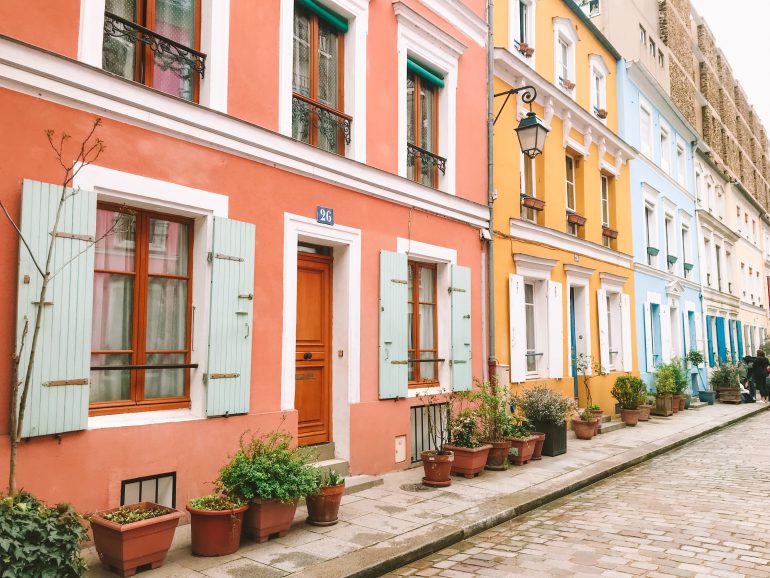
Travel Paris travel restrictions – Can I travel to Paris right now?
Many countries continue to have strict travel restrictions in place, and the possibility of international travel still remain limited. Paris has loosened travel restrictions for travelers across European Nations and a few other countries, but there are many restrictions in place within the city. Before you plan to visit Paris, here are the latest developments you ought to know.
Disclaimer: This blog is updated weekly to the best of our knowledge. For the latest travel advisories, we recommend checking the official government website .
In This Article
Travel Restrictions in Paris - An Overview
Paris travel protocols, who can visit paris now, quarantine rules in paris, tips for staying safe in paris, covid travel resources paris.
Travelers flying to Paris from countries outside of the EU and a few other countries like New Zealand, Rwanda, South Korea, Thailand, Tunisia, and Uruguay must present results of a negative virology COVID-19 test, like a PCR test, carried out less than 72 hours before the flight.
Travelers who are permitted to enter France from countries that are not exempt must quarantine upon arrival. Those with no symptoms must self-isolate for 14 days, and those with symptoms must quarantine for up to 30 days.
Transportation in Paris - Restrictions
- The RATP disinfects the buses, tramways, and metro and RER trains twice a day, with special attention to touch point areas such as doors, grab handles and vertical poles, and staircase or escalator handrails.
- Face masks are a must while traveling in any mode of public transport in Paris, along with social distancing of a minimum 2 meters at all points.
- Bus, metro and tramway doors open automatically at every single stop to avoid touch at door handles.
- Free hand sanitizer dispensers have been installed at stations to avoid the spread of the virus and enable frequent sanitization by travelers.
- Travelers can limit contact and reduce waiting time in queues by using the RATP mobile app to buy or top up tickets or travel cards.
Eating out in Paris - Restrictions
As of October 2020, Paris will shut all bars and restaurants are allowed to remain open only if strict hygiene rules are in place. Below are the list of restrictions in place at restaurants in Paris:
- Space of 1 meter between chairs of different tables must be maintained and only a maximum of six people at each table. This is to reduce the density of people in an enclosed space to limit passing of aerosols that carry the infection. Restaurants can also install protective screens as an added protection.
- All restaurant staff must wear masks in the dining area, at reception and in the kitchen.
- Customers are also required to wear a mask till their first course is served and put it back on when moving around the restaurant and in between courses
- Restaurant staff must keep details of all diners in a registry kept at the entrance.
- Online reservations are recommended to avoid queuing in front of the establishment.
- All restaurants will provide hand sanitising gel dispensers in easily accessible places and at least at the entrance to the restaurant (and ideally on each table).
- Customers are required to pay at the table rather than at the counter in order to avoid them moving around inside the restaurant. Contactless card payments are encouraged over cash payments.
- Cloakrooms for coats and personal belongings are temporarily closed.
- Customers are not allowed to have a drink while standing inside or outside the restaurant.
- Restaurants will avoid providing objects that can be touched by several customers (books, games, newspapers, salt shakers, etc.) For example, salt or pepper will be offered in single sachets.
Tourist Attractions that are now open in Paris
Here's a complete list of all the tourist landmarks and attractions that are now open in Paris.
As of October 2020, all non-European citizens are no longer able to enter the Schengen area.
- Citizens of the United Kingdom, Iceland, Norway, Switzerland, Liechtenstein, San Marin, Monaco, Andorra and Vatican
- Foreign citizens holding a French residence permit or a European residence permit returning home.
- People in charge of goods transportation.
- Health professionals mobilized in the fight against Covid-19.
All passengers traveling to Paris are requested to observe a a 14-day voluntary quarantine period to protect themselves and protect others.
For French citizens, the French State advises against traveling abroad (except Schengen area and authorized countries), in view of the travel restrictions in France and the measures taken by many countries at often very short notice (interruption of air links, ban on entry into the territory, compulsory isolation, etc.).
Sign up for our monthly newsletter
Your dose of travel fix - from hacks and deals to travel tips and everything in between, delivered monthly to your inbox
For those looking to enter Paris, two additional documents are required:
- An exempted movement certificate for Metropolitan France, to be presented to travel companies prior to departure as well as to border control authorities (travel by air, sea and land and rail).
- COVID-19 free declaration (included in the same document).
In lieu of on-arrival quarantine or isolation, travelers visiting France are encouraged to obtain a negative PCR test beforehand. Failure to do this will result in an on-site PCR test and may necessitate a 14-day quarantine to be undertaken at a location of their choice or special accommodations where appropriate.
- The risks of getting COVID-19 are higher in crowded and inadequately ventilated spaces where infected people spend long periods of time together in close proximity. Make sure to maintain a minimum of 2 metres (6 feet) from others at all points.
- Always carry a sanitizer with you and sanitize often.
- Masks are a must, but gloves are optional.
- Avoid public transportation if you can and travel in your own vehicle.
- Avoid greeting people by shaking their hands or hugging or kissing them.
- Outdoor gatherings are safer than indoor ones, so opt for beaches and parks instead of malls and indoor spaces for recreational activities
- If you're planning to visit a landmark or tourist attraction, make sure to check for tickets in advance and book a slot
- A lot of establishments have closed due to the pandemic. It is worth checking over call before heading out there.
- If you have a fever, cough and difficulty breathing, seek medical attention immediately. Call by telephone first, if you can and follow the directions of your local health authority.
- Stay home and self-isolate even with minor symptoms such as cough, headache, mild fever, until you recover.
- France Government website for Coronavirus updates
- CDC COVID Travel Resource for France
- WHO COVID Travel Resource for France
Brexit: travel rules between the UK and France
Inspiration

Reading time: 0 min Published on 11 January 2023, updated on 23 April 2024
On 1 January 2021 Brexit came into effect, re-establishing the borders between the UK and France. Here's the information you need to know before planning trips between the two countries.
Please consult our dedicated Covid-19 article for the latest updates on travel between the UK and France.
Following a transition period, Brexit came into effect on 1 January 2021 and the UK left the European Union. Free movement no longer applies between the UK and France, and migration controls have been re-established to and from the UK.
Travel arrangements
For British travellers to France:
Since 1 January 2021, British nationals have been subject to more in-depth checks when travelling. They are encouraged to allow additional time for border control and use the queue labelled 'Ressortissant de pays tiers' rather than 'EU / EEA / CH'.
British nationals who are not resident in an EU Member State and who wish to travel to France for a short stay (a maximum of 90 days in a 180-day period), or who are in transit to another Member State or to the Schengen area, do not require a visa.
Travellers need to:
- present their passport with at least six months' validity, which will be stamped upon entering and leaving the Schengen area. The maximum duration of a short stay cannot exceed 90 days within a period of 180 days;
- be able to prove that they have sufficient funds to meet their needs during their stay. With some exceptions, the minimum required in France is calculated as 65 euros per day. Examples of proof include cash or a bank statement;
- obtain travel insurance covering all medical, hospital and death expenses that could be incurred during their stay in France, including repatriation costs for medical reasons. Current EHIC cards will still be valid until their expiry date.
The supporting documents used to verify compliance with the entry conditions are listed in Annex I of the Schengen Borders Code, accessible here .
Further information on travel arrangements for British nationals to France is available on the French government website here and the UK government website here .
For international tourists wishing to visit both France and the UK on the same trip:
EU, EEA and Swiss citizens can travel to the UK visa-free for holidays or short stays. A passport valid for the duration of the stay is required to enter UK territory. Until 1 October 2021, it is also possible to travel with a valid national ID card.
For nationals from outside the EU, a visa may be required to stay in the UK. Further information is available on the UK government website here .
Travellers from the UK to France are subject to customs control to comply with deductibles for purchases made in the UK, in quantity for alcohol and tobacco, and in value for other goods. The level of these exemptions is specified on the French Directorate General of Customs and Excise website here .
Purchases made in France may be eligible for tax relief - check here . PABLO machines, which automate this process, are available in ports, airports and train stations serving the UK.
Further information on customs procedures for UK travellers to France is available on the French government website here and the UK government website here .
Download the Brexit guide for travellers (French only)
Driving licences
British nationals travelling to France for a short stay can drive under their UK driving licence. An international driving licence is not required.
Travelling with pets
It is no longer possible to enter an EU territory with a European pet passport issued in the UK. British nationals travelling to France with dogs or cats must comply with the following health conditions defined by the regulation of 12 June 2013: - ensure that pets are identifiable by way of a microchip or clearly legible tattoo made before 3 July 2011; - ensure that pets have been vaccinated against rabies and that the vaccine is still valid; - ensure that each pet has a health certificate issued by a registered UK vet. The certificate must be accompanied by proof of vaccination against rabies as well as a document attesting to the pet's ID. Certificates are valid for a period of 10 days from the date of issue and must be presented during border checks during this period. They remain valid in EU territories and Northern Ireland for a period of four months.
EU or Northern Irish nationals returning from a temporary stay in the UK and transporting dogs or cats to France must be in possession of a European pet passport. The passport must certify a valid anti-rabies vaccination and must be presented at border control.
On arrival in France, travellers with pets will need to enter through a designated travellers’ point of entry (TPE).

By Redaction France.fr
The magazine of the destination unravels an unexpected France that revisits tradition and cultivates creativity. A France far beyond what you can imagine…
Coronavirus Info: the situation in France

Holidays at Galeries Lafayette

Air France, the best and most comfortable way to get to France

French Wine Tasting with Duclot La Cave

Gift vouchers for your shopping at Galeries Lafayette

The Christmas Windows Display and Characters

A Fairy Tale 1, 2, 3 Christmas!

8 Luxurious Boutiques in Paris

- Share full article
Advertisement
Supported by
Automatic Refunds and No More Hidden Fees: D.O.T. Sets New Rules for Airlines
The Transportation Department issued new requirements on refunds when flights are canceled or delayed and on revealing “junk” fees before booking. Here’s what passengers can expect.

By Christine Chung
The Transportation Department on Wednesday announced new rules taking aim at two of the most difficult and annoying issues in air travel: obtaining refunds and encountering surprise fees late in the booking process.
“Passengers deserve to know upfront what costs they are facing and should get their money back when an airline owes them — without having to ask,” said U.S. Transportation Secretary Pete Buttigieg in a statement, adding that the changes would not only save passengers “time and money,” but also prevent headaches.
The department’s new rules, Mr. Buttigieg said, will hold airlines to clear and consistent standards when they cancel, delay or substantially change flights, and require automatic refunds to be issued within weeks. They will also require them to reveal all fees before a ticket is purchased.
Airlines for America , a trade group representing the country’s largest air carriers, said in a statement that its airlines “abide by and frequently exceed” D.O.T. consumer protection regulations.
Passenger advocates welcomed the new steps.
Tomasz Pawliszyn, the chief executive of AirHelp, a Berlin-based company that assists passengers with airline claims, called it a “massive step forward and huge improvement in consumer rights and protection” that brings the United States closer to global standards in passenger rights.
Here’s what we know about the D.O.T.’s new rules, which will begin to go into effect in October.
There’s now one definition for a “significant” delay.
Until now, airlines have been allowed to set their own definition for a “significant” delay and compensation has varied by carrier . Now, according to the D.O.T., there will be one standard: when departure or arrival is delayed by three hours for domestic flights and six hours for international flights.
Passengers will get prompt refunds for cancellations or significant changes for flights and delayed bags, for any reason.
When things go wrong, getting compensation from an airline has often required establishing a cumbersome paper trail or spending untold hours on the phone. Under the new rules, refunds will be automatic, without passengers having to request them. Refunds will be made in full, excepting the value of any transportation already used. Airlines and ticket agents must provide refunds in the original form of payment, whether by cash, credit card or airline miles. Refunds are due within seven days for credit card purchases and within 20 days for other payments.
Passengers with other flight disruptions, such as being downgraded to a lower service class, are also entitled to refunds.
The list of significant changes for which passengers can get their money back also includes: departure or arrival from an airport different from the one booked; connections at different airports or flights on planes that are less accessible to a person with a disability; an increase in the number of scheduled connections. Also, passengers who pay for services like Wi-Fi or seat selection that are then unavailable will be refunded any fees.
Airlines must give travel vouchers or credits to ticketed passengers unable to fly because of government restrictions or a doctor’s orders.
The vouchers or credits will be transferable and can be used for at least five years after the date they were issued.
Fees for checked baggage and modifying a reservation must be disclosed upfront.
Airlines and ticket agents are now required to display any extra fees for things like checking bags or seat selection clearly and individually before a ticket purchase. They will also need to outline the airline’s policies on baggage, cancellations and changing flights before a customer purchases a ticket.
The rules, which apply to all flights on domestic airlines and flights to and from the United States operated by foreign airlines, have varying start dates.
For example, automatic refunds must be instituted by the airlines within six months. But carriers have a year before they’re required to issue travel vouchers and credits for passengers advised by a medical professional not to fly.
Follow New York Times Travel on Instagram and sign up for our weekly Travel Dispatch newsletter to get expert tips on traveling smarter and inspiration for your next vacation. Dreaming up a future getaway or just armchair traveling? Check out our 52 Places to Go in 2024 .
Christine Chung is a Times reporter covering airlines and consumer travel. More about Christine Chung
Open Up Your World
Considering a trip, or just some armchair traveling here are some ideas..
52 Places: Why do we travel? For food, culture, adventure, natural beauty? Our 2024 list has all those elements, and more .
Mumbai: Spend 36 hours in this fast-changing Indian city by exploring ancient caves, catching a concert in a former textile mill and feasting on mangoes.
Kyoto: The Japanese city’s dry gardens offer spots for quiet contemplation in an increasingly overtouristed destination.
Iceland: The country markets itself as a destination to see the northern lights. But they can be elusive, as one writer recently found .
Texas: Canoeing the Rio Grande near Big Bend National Park can be magical. But as the river dries, it’s getting harder to find where a boat will actually float .
New Schengen Visa Rules for Indian Visitors: Key Questions Answered
Peden Doma Bhutia , Skift
April 23rd, 2024 at 5:39 AM EDT
Destinations value Indian travelers, but lengthy visa processing times lasting months act as significant deterrents. The adoption of these new regulations by European authorities reflects a proactive effort to tackle these concerns, aiming to boost tourism flow.
Peden Doma Bhutia
The European Commission has introduced a new visa “cascade” regime for Indian nationals applying for Schengen visas in India. This regime looks to offer longer-term, multi-entry Schengen visas, based on the applicant’s travel history.
Indian travel agents had been complaining of Schengen visa delays as a major challenge to the summer travel rush from India.
- How does one qualify for the longer duration visas?
The European Commission can issue a two-year multiple-entry visa after a traveler “has obtained and lawfully used two visas within the previous three years.” This demonstrates a positive travel history and compliance with previous visa regulations.
Subsequently, after granting the two-year visa, authorities may issue a five-year visa if the passport has has adequate validity remaining.
- What benefits do holders of these extended visas enjoy?
During the validity period of these visas, holders can enjoy travel rights equivalent to visa-free nationals within the Schengen area, allowing for short stays of up to 90 days within a 180-day period.
- Which countries are part of the Schengen area?
The Schengen area comprises 29 European countries, including 25 European Union member states: Belgium, Bulgaria, Croatia, Czech Republic, Denmark, Germany, Estonia, Greece, Spain, France, Italy, Latvia, Lithuania, Luxembourg, Hungary, Malta, Netherlands, Austria, Poland, Portugal, Romania, Slovenia, Slovakia, Finland, and Sweden. Additionally, Iceland, Liechtenstein, Norway, and Switzerland are also part of the Schengen area.
- Are there any restrictions or conditions to these visas?
Schengen visas do not grant the right to work within the Schengen area and are for short stays only. Additionally, the visas are not purpose-bound, providing flexibility for travel within the specified period.
Industry Take
Skift also spoke to players in the Indian outbound travel industry to understand what has changed in the new Schengen visa rules.
- How is this different from the earlier visas that Schengen countries offered? Don’t they already offer multi-entry visas with longer duration to Indians?
Mahendra Vakharia, managing director of Pathfinders Holidays, said there was no standard policy of Schengen states for issuing these long-term visas earlier. Switzerland, France, Netherlands, Italy and Spain usually issued long-term visa, but it was all subjective. “With this new policy it should be a standard rule now,” Vakharia said.
- Travelers mainly complain of longer processing times, has that changed?
Here too, there is no standard processing time as it varies from country to country, according to Vakharia. “France and Spain have been processing visas within four days, and then there’s Croatia, which takes 60 days,” he said.
Processing time will not change as of now, it will take time for the visa rules to be enforced, said an industry source, while highlighting that the visa would be especially useful for corporate travelers.
What Promoted The Move?
Speaking on the possible motivations, Vakharia acknowledged various reasons, including administrative capacity constraints at embassies to cater to the huge inflow of applications.
“As there is an overwhelming demand from Indian travelers, the process of securing visa appointments has posed significant challenges , especially for travelers residing in cities lacking VFS Global centers,” he said.
The European Commission said in an statement that the decision reflects the EU-India Common Agenda on Migration and Mobility, aimed at fostering comprehensive cooperation on migration policy. Facilitating people-to-people contacts is a key aspect of this agenda, acknowledging India’s importance as an EU partner.
The decision also reflects a realization of the strong economic benefits derived through the spending power of Indian tourists. As Vakharia aptly puts it, “Why let go of the Golden Indian Goodie Bag?”
Skift India Report
The Skift India Report is your go-to newsletter for all news related to travel, tourism, airlines, and hospitality in India.
Have a confidential tip for Skift? Get in touch
Tags: asia monthly , europe , european commission , European summer travel , european union , india , india outbound , schengen , visa , visas
Photo credit: Park Guell in Spain. Unlike many Schengen countries, Spain has been processing visas within four days for Indian travelers. Mehmet Turgut Kirkgoz / Pexels
- Election 2024
- Entertainment
- Newsletters
- Photography
- Personal Finance
- AP Investigations
- AP Buyline Personal Finance
- AP Buyline Shopping
- Press Releases
- Israel-Hamas War
- Russia-Ukraine War
- Global elections
- Asia Pacific
- Latin America
- Middle East
- Election Results
- Delegate Tracker
- AP & Elections
- Auto Racing
- 2024 Paris Olympic Games
- Movie reviews
- Book reviews
- Personal finance
- Financial Markets
- Business Highlights
- Financial wellness
- Artificial Intelligence
- Social Media
Airlines will now be required to give automatic cash refunds for canceled and delayed flights
FILE - Passenger drop off their baggage at United Airlines in C Terminal at George Bush Intercontinental Airport, Thursday, Dec. 21, 2023, in Houston. The Biden administration issued final rules Wednesday, April 24, 2024, to require airlines to automatically issue cash refunds for things like delayed flights and to better disclose fees for baggage or canceling a reservation. (Brett Coomer/Houston Chronicle via AP, File)
- Copy Link copied
The Biden administration issued final rules Wednesday to require airlines to automatically issue cash refunds for things like delayed flights and to better disclose fees for baggage or canceling a reservation.
The Transportation Department said airlines will be required to provide automatic cash refunds within a few days for canceled flights and “significant” delays.
Under current regulations, airlines decide how long a delay must last before triggering refunds. The administration is removing that wiggle room by defining a significant delay as lasting at least three hours for domestic flights and six hours for international ones.
Airlines still will be allowed to offer another flight or a travel credit instead, but consumers can reject the offer.
The rule will also apply to refunds of checked-bag fees if the bag isn’t delivered within 12 hours for domestic flights or 15 to 30 hours for international flights. And it will apply to fees for things such as seat selection or an internet connection if the airline fails to provide the service.
Complaints about refunds skyrocketed during the COVID-19 pandemic, as airlines canceled flights and, even when they didn’t, many people didn’t feel safe sharing a plane cabin with other passengers.
Airlines for America, a trade group for large U.S. carriers, noted that refund complaints to the Transportation Department have fallen sharply since mid-2020. A spokesperson for the group said airlines “offer a range of options — including fully refundable fares — to increase accessibility to air travel and to help customers make ticket selections that best fit their needs.”
The group said the 11 largest U.S. airlines issued $43 billion in customer refunds from 2020 through 2023.
The Transportation Department issued a separate rule requiring airlines and ticket agents to disclose upfront what they charge for checked and carry-on bags and canceling or changing a reservation. On airline websites, the fees must be shown the first time customers see a price and schedule.
The rule will also oblige airlines to tell passengers they have a guaranteed seat they are not required to pay extra for, although it does not bar airlines from charging people to choose specific seats. Many airlines now charge extra for certain spots, including exit-row seats and those near the front of the cabin.
The agency said the rule will save consumers more than $500 million a year.
Airlines for America said its members “offer transparency and vast choice to consumers” from their first search.
The new rules will take effect over the next two years. They are part of a broad administration attack on what President Joe Biden calls “junk fees.” Last week, Transportation Secretary Pete Buttigieg announced that his department will let state officials in 15 states help enforce federal airline consumer protection laws .
Airlines will now be required to give automatic refunds for canceled and delayed flights

- Show more sharing options
- Copy Link URL Copied!
The Biden administration issued final rules last week to require airlines to automatically issue cash refunds for things such as delayed flights and to better disclose fees for baggage or canceling a reservation.
The Transportation Department said airlines will be required to provide automatic cash refunds within a few days for canceled flights and “significant” delays.
Under current regulations, airlines decide how long a delay must last before triggering refunds. The administration is removing that wiggle room by defining a significant delay as lasting at least three hours for domestic flights and six hours for international ones.
Airlines still will be allowed to offer another flight or a travel credit instead, but consumers can reject the offer.
The rule will also apply to refunds of checked-bag fees if the bag isn’t delivered within 12 hours for domestic flights or 15 to 30 hours for international flights. And it will apply to fees for things such as seat selection or an internet connection if the airline fails to provide the service.
Complaints about refunds skyrocketed during the COVID-19 pandemic, as airlines canceled flights and, even when they didn’t, many people didn’t feel safe sharing a plane cabin with other passengers.
Airlines for America, a trade group for large U.S. carriers, noted that refund complaints to the Transportation Department have fallen sharply since mid-2020. A spokesperson for the group said airlines “offer a range of options — including fully refundable fares — to increase accessibility to air travel and to help customers make ticket selections that best fit their needs.”
The group said the 11 largest U.S. airlines issued $43 billion in customer refunds from 2020 through 2023.
The Transportation Department issued a separate rule requiring airlines and ticket agents to disclose up front what they charge for checked and carry-on bags and canceling or changing a reservation. On airline websites, the fees must be shown the first time customers see a price and schedule.
The rule will also oblige airlines to tell passengers they have a guaranteed seat they are not required to pay extra for, although it does not bar airlines from charging people to choose specific seats. Many airlines now charge extra for certain spots, including exit-row seats and those near the front of the cabin.
The agency said the rule will save consumers more than $500 million a year.
Airlines for America said its members “offer transparency and vast choice to consumers” from their first search.
The new rules will take effect over the next two years. They are part of a broad administration attack on what President Biden calls “junk fees.” Transportation Secretary Pete Buttigieg announced this month that his department will let state officials in 15 states help enforce federal airline consumer protection laws .
Koenig writes for the Associated Press.
More to Read

Airlines will be required to automatically refund passengers for major flight changes under DOT rule
April 26, 2024
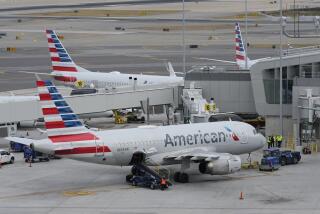
American Airlines is raising bag fees and changing how customers earn frequent-flier points
Feb. 20, 2024

Abcarian: Should fat people get an extra airline seat for free? Southwest Airlines thinks they should
Dec. 20, 2023
More From the Los Angeles Times

Feds say he masterminded an epic California water heist. Some farmers say he’s their Robin Hood
April 28, 2024

Money Talk with Liz Weston: Managing mortgage debt in retirement

Company Town
Paramount Global CEO Bob Bakish expected to leave the company
April 27, 2024

U.S. probes whether Tesla Autopilot recall did enough to make sure drivers pay attention
Gaza protest in Paris sees tense standoff with Israel supporters
- Medium Text
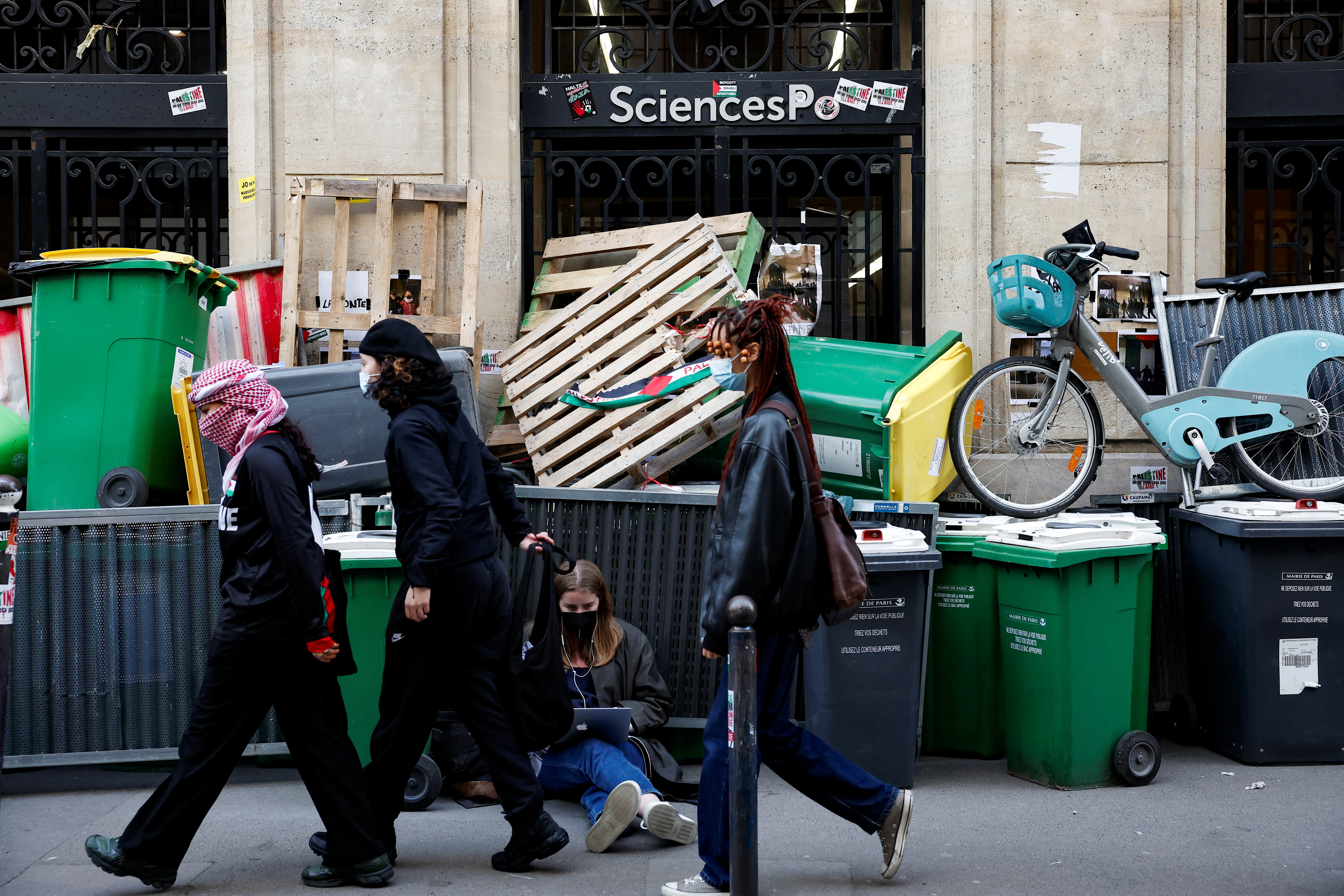
Sign up here.
Reporting by Lucien Libert; Additional reporting by Inti Landauro, Sudip Kar-Gupta and Zhifan Liu; Writing by Ingrid Melander, Editing by William Maclean
Our Standards: The Thomson Reuters Trust Principles. New Tab , opens new tab
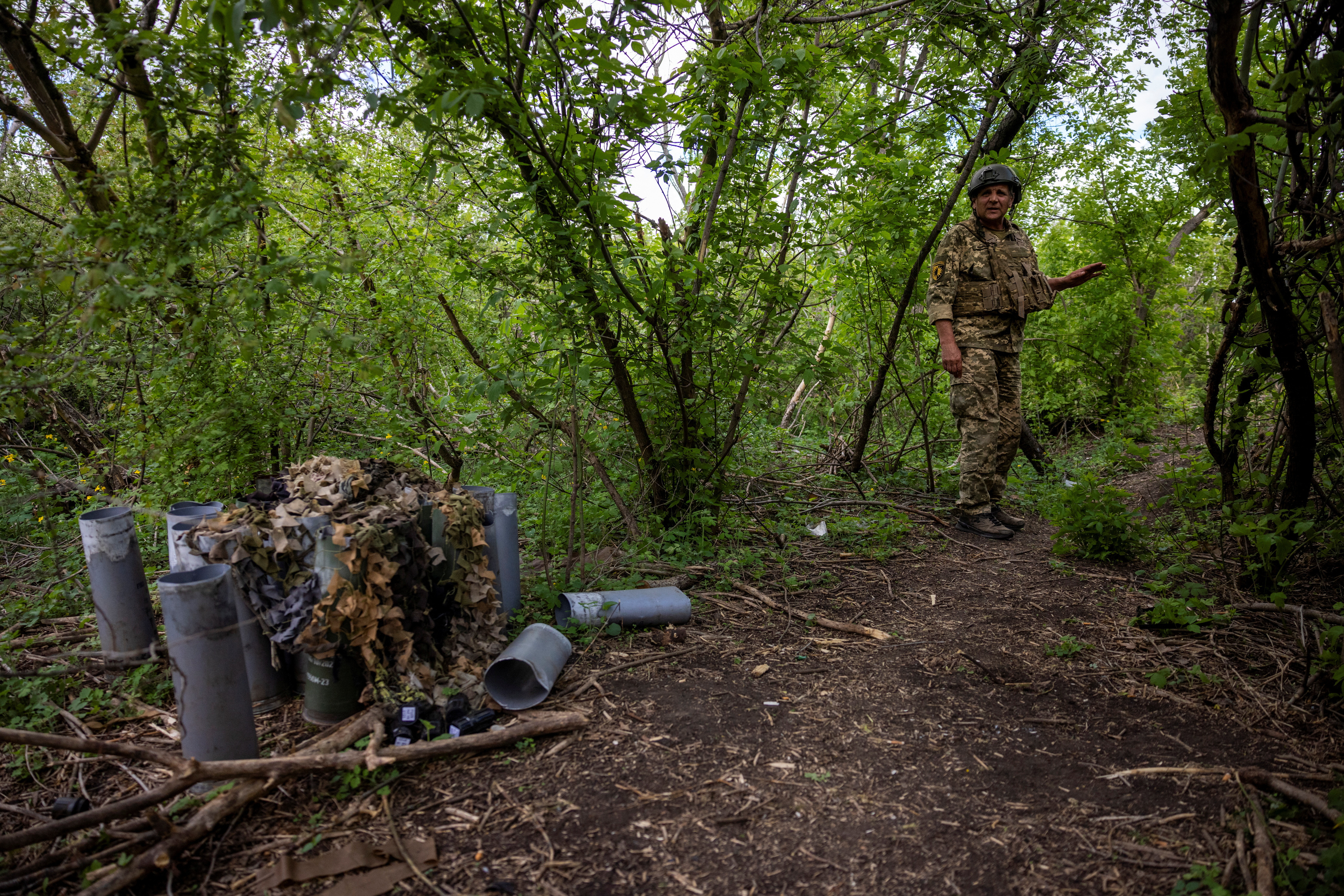
World Chevron
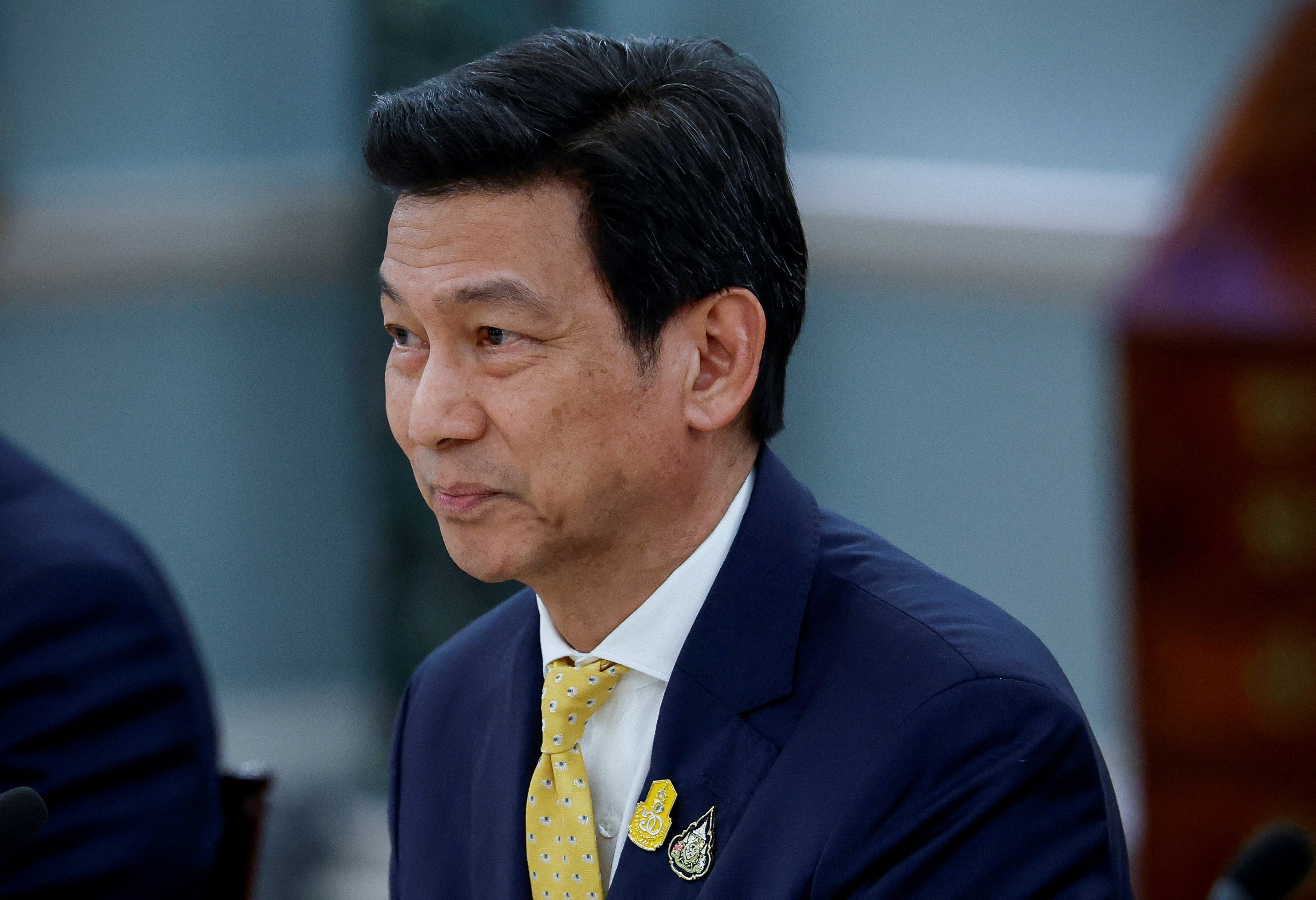
Thai foreign minister quits after cabinet reshuffle
Thai Foreign Minister Parnpree Bahiddha-Nukara has resigned, the government said on Sunday, after being removed from the post of deputy prime minister in a cabinet reshuffle, at a time when the Southeast Asian country seeks to help resolve a conflict in Myanmar.


IMAGES
VIDEO
COMMENTS
Yes, France is open to American travelers, regardless of vaccination status. As of August 2022, France removed all COVID entry requirements for any traveler from any country. Testing, proof of vaccination, proof of recovery, proof of a compelling reason for travel, and sworn declaration about Covid contact and symptoms are no longer required.
When in France, please carry a photocopy of your passport separately from your passport. The copy will facilitate issuance of a replacement ($75 fee for adults, $85 for children). The American Embassy in Paris is at 2, avenue Gabriel, tel. 01 43 12 22 22. The Passport Section is nearby at 4, avenue Gabriel (open 9a.m.-noon, Monday- Friday).
Call us in Washington, D.C. at 1-888-407-4747 (toll-free in the United States and Canada) or 1-202-501-4444 (from all other countries) from 8:00 a.m. to 8:00 p.m., Eastern Standard Time, Monday through Friday (except U.S. federal holidays). See the State Department's travel website for the Worldwide Caution and Travel Advisories.
Your Covid-19 questions answered. French people who are living abroad, travelling or returning from abroad, as well as visitors from abroad, will find answers below to frequently asked questions on COVID-19 measures. This FAQ supplements the information on the Conseils aux voyageurs (Travel advice, in French only) section.
French officials have modified their entry rules based on COVID-19 developments. Consult the U.S. Embassy and French Ministry for the most up-to-date information. Both the U.S. Department of State and the Centers for Disease Control and Prevention have issued Level 4 travel warnings for France, advising Americans to avoid travel to the country.
A travel writer's ultimate travel guide to Paris, France. Dan Koday. ... → Here are the latest rules for US visitors to Paris, France, plus tips on the best time of year to visit.
6. Get familiar with cafe culture etiquette. The best places to experience Paris and its people are at the cafes. Take a moment to rest on a terrasse - cafe tables on the street - to people-watch while planning the next part of your day. Upon arrival, simply choose a table and sit; servers will come and attend to you.
In light of the latest developments in the pandemic, the port health control system has been discontinued, pursuant to the law terminating the emergency measures instituted to combat the COVID-19 outbreak. Accordingly, the rules previously applied to travellers to France no longer apply effective from 1 August 2022: Travellers are now exempt ...
Who can go. As of August 1, there are no Covid-19 related travel restrictions for France. This means travelers are no longer required to present proof of vaccination, complete a sworn statement ...
This page covers COVID-19 related travel restrictions only. For other travel restrictions, please check the guidance from ... Find flights to France. Find stays in France. Explore more countries on travel restrictions map Find out the entry rules for each country. Let's go. Destinations you can travel to now Popular destinations open to most ...
Entry requirements. This advice reflects the UK government's understanding of current rules for people travelling on a full 'British citizen' passport from the UK, for the most common types ...
Peaceful demonstrations and strikes in Paris and other cities throughout France occur regularly and can disrupt transportation. On rare occasions, demonstrations have included violence and property damage and police have responded with water cannons and tear gas. Read the country information page for additional information on travel to France.
Warnings and insurance. Still current at: 25 April 2024. Updated: 24 April 2024. Latest update: Updated advice on disruption to flights across France on Thursday 25 April 2024. The Foreign ...
The validity period for Covid-19 tests is short: usually a few days before departure or arrival depending on the country. Visit TravelDoc to find out when to get tested before you travel. For more information on all domestic flights within France and flights to/from Corsica, please visit our FAQ on the health pass in France.
Jenny Kane/AP, FILE. Americans eyed upcoming travel to European destinations slightly differently due to news of a requirement that was set to start in 2024 for U.S. passport holders. But now, EU ...
The most important word any Paris traveler needs is "bonjour," Emily counsels. No matter which other French is tantamount to French manners. "Any interaction with anyone—be it your bus driver, your waiter, or a shopkeeper—should always begin with 'bonjour.' 'Bonjour' doesn't just mean hello in the French language: it primes the other person for a conversation or a request.
Travel during daylight hours only, especially in rural areas. If you choose to drive a vehicle in France, learn the local traffic laws and have the proper paperwork. Get any driving permits and insurance you may need. Get an International Driving Permit (IDP). Carry the IDP and a US-issued driver's license at all times.
4. Buy skip-the-line tickets in advance to avoid wasting time in queues. Louvre museum queues. One of the most useful tips when visiting Paris is to buy skip-the-line entry tickets to attractions in advance. Paris is one of the most visited cities in Europe, so you can expect long queues at its popular attractions.
The Olympic Games will take place in Paris from July 26 to August 11, followed by the Paralympic Games from August 28 to September 8, 2024. ... Other travel documents. Different entry rules may apply when travelling with a temporary passport or an emergency travel document. Before you leave, check with the closest foreign representative for ...
10 Common Travel Mistakes to Avoid in Paris, According to a Local. ... although a few other steadfast rules remain. Here are 10 travel mistakes to avoid on your next trip to Paris. ...
As of October 2020, Paris will shut all bars and restaurants are allowed to remain open only if strict hygiene rules are in place. Below are the list of restrictions in place at restaurants in Paris: Space of 1 meter between chairs of different tables must be maintained and only a maximum of six people at each table.
If you carry medication with you when you travel, the quantity carried must not exceed a personal use corresponding either to the duration of treatment provided for by the medical prescription, or, in the absence of a prescription, to a duration of treatment of three months. If the duration of treatment exceeds 3 months, you must present the ...
For international tourists wishing to visit both France and the UK on the same trip: EU, EEA and Swiss citizens can travel to the UK visa-free for holidays or short stays. A passport valid for the duration of the stay is required to enter UK territory. Until 1 October 2021, it is also possible to travel with a valid national ID card.
The Transportation Department on Wednesday announced new rules taking aim at two of the most difficult and annoying issues in air travel: obtaining refunds and encountering surprise fees late in ...
During the validity period of these visas, holders can enjoy travel rights equivalent to visa-free nationals within the Schengen area, allowing for short stays of up to 90 days within a 180-day ...
The Biden administration issued final rules Wednesday to require airlines to automatically issue cash refunds for things like delayed flights and to better disclose fees for baggage or canceling a reservation.. The Transportation Department said airlines will be required to provide automatic cash refunds within a few days for canceled flights and "significant" delays.
The Paris Metro, bus, tram and RER trains will double in price - but this won't affect locals who already have travel passes or people who have bought the 'Paris 2024' pass in advance.
The Biden Administration proposed its change to the refund rules in 2022 after a surge in complaints about refunds when the coronavirus brought air travel to a standstill.
The Biden administration is setting new rules on airline fees and refunds. Airlines still will be allowed to offer another flight or a travel credit instead, but consumers can reject the offer.
Tensions flared in front of Paris' prestigious Sciences Po university over the war in Gaza on Friday as pro-Israeli protesters came to challenge pro-Palestinian students occupying the building.